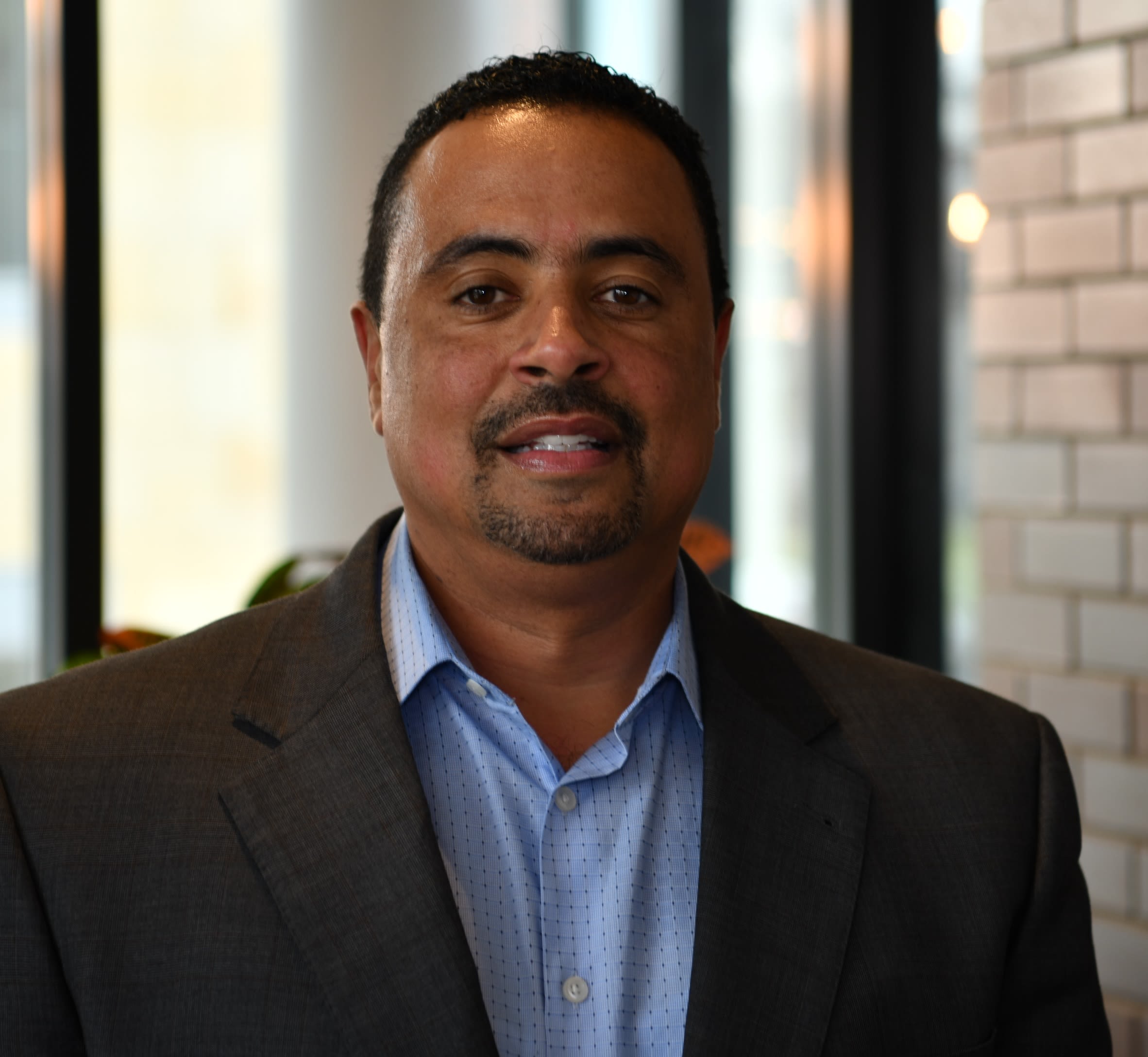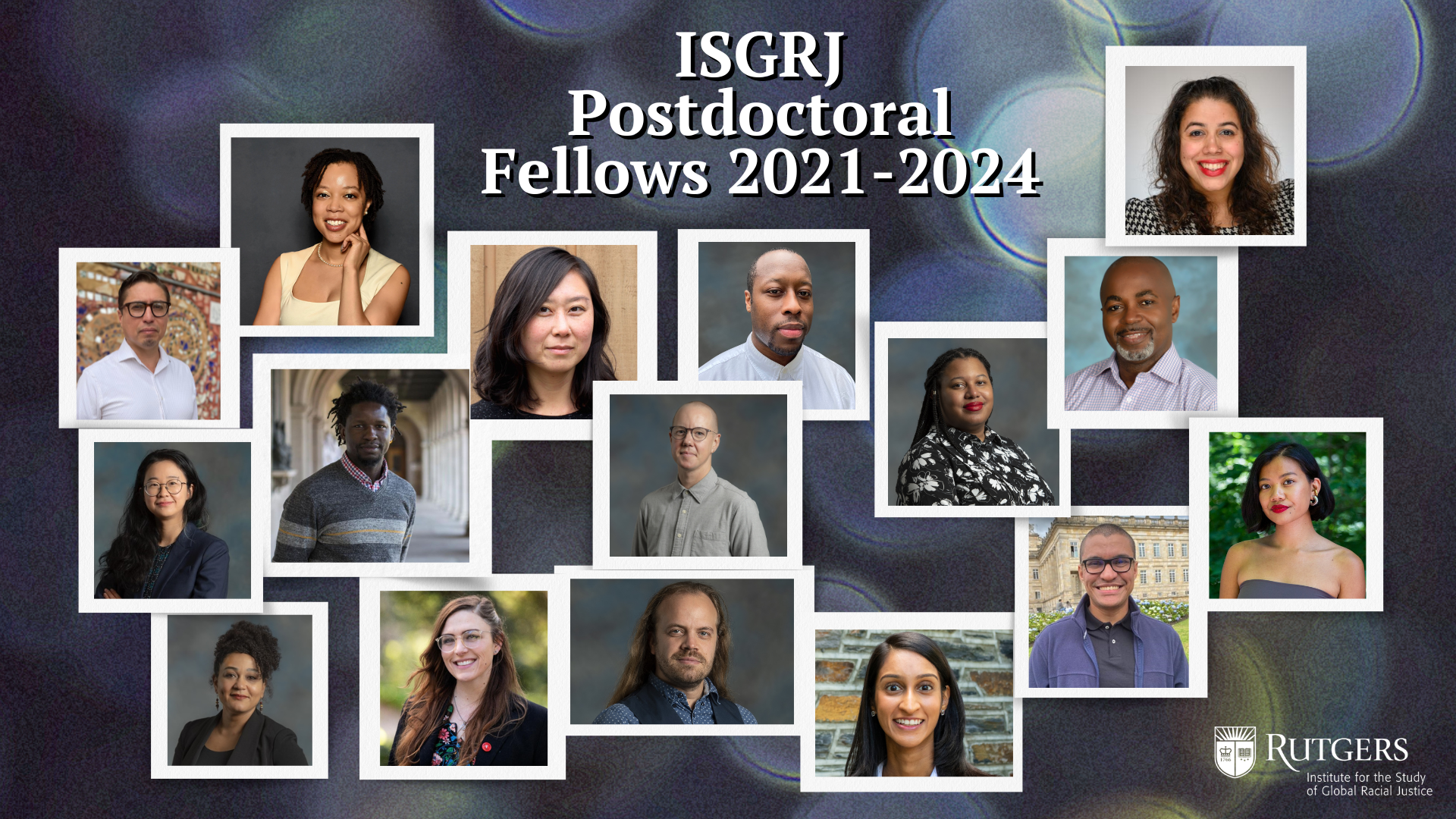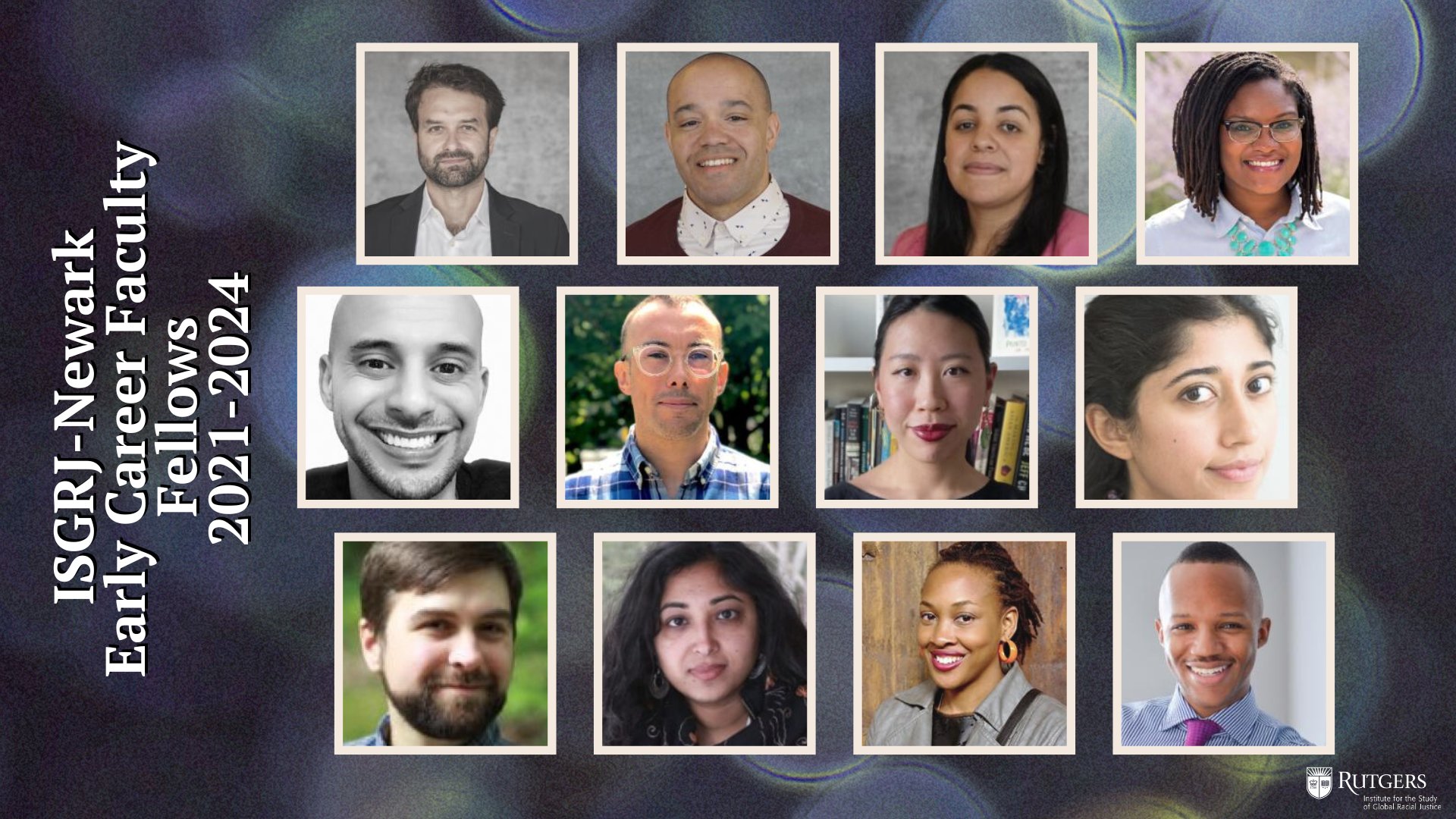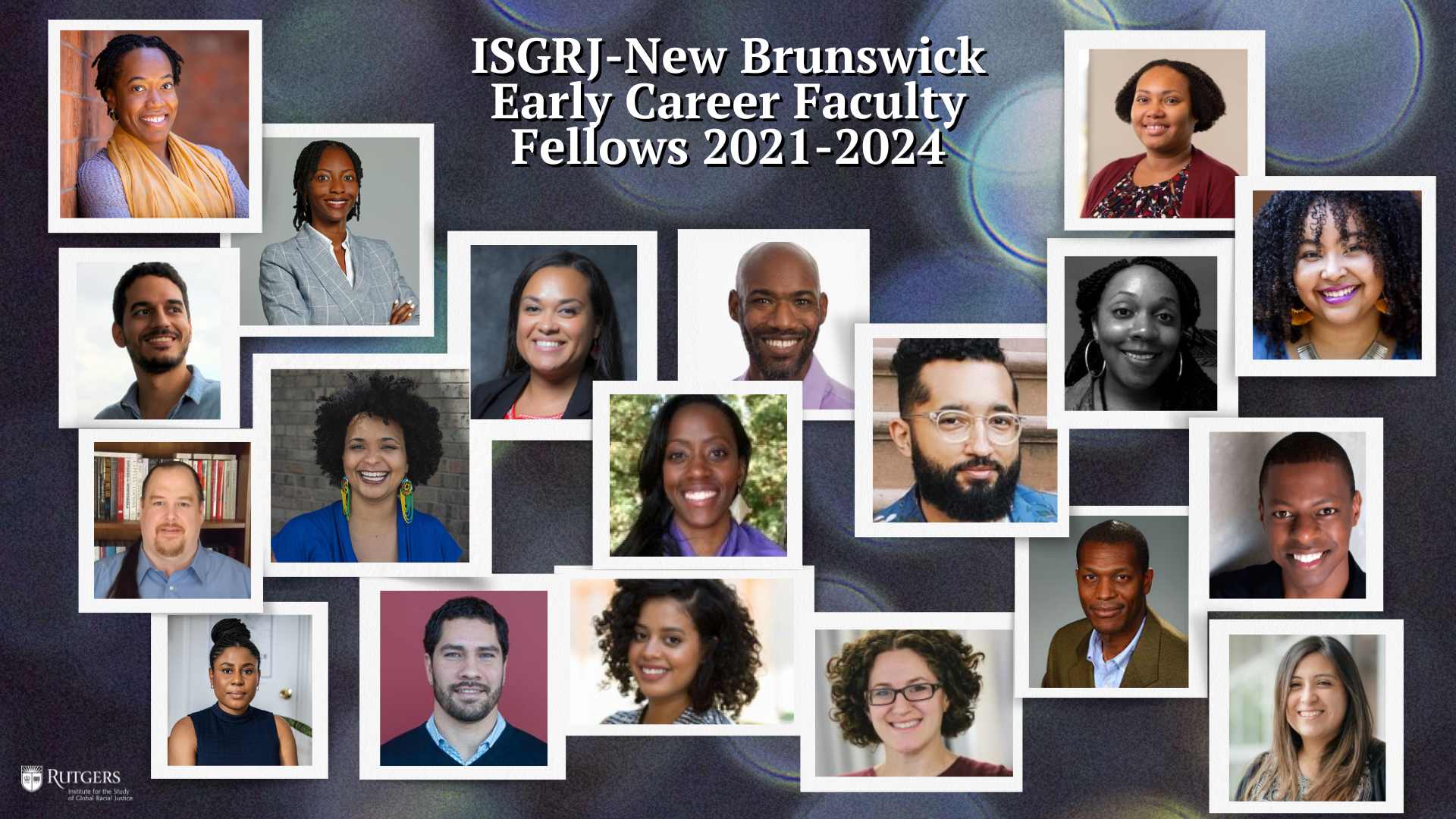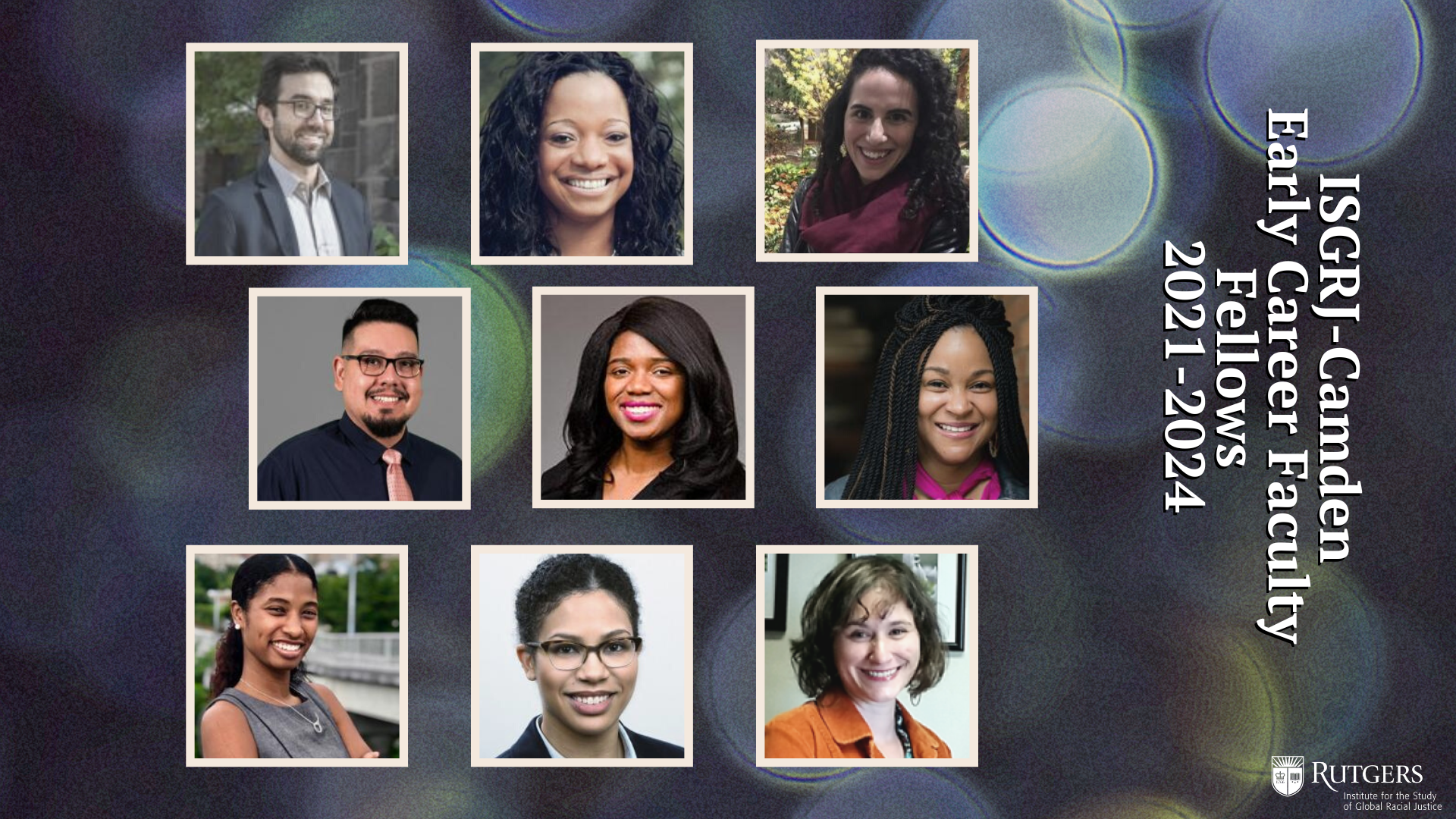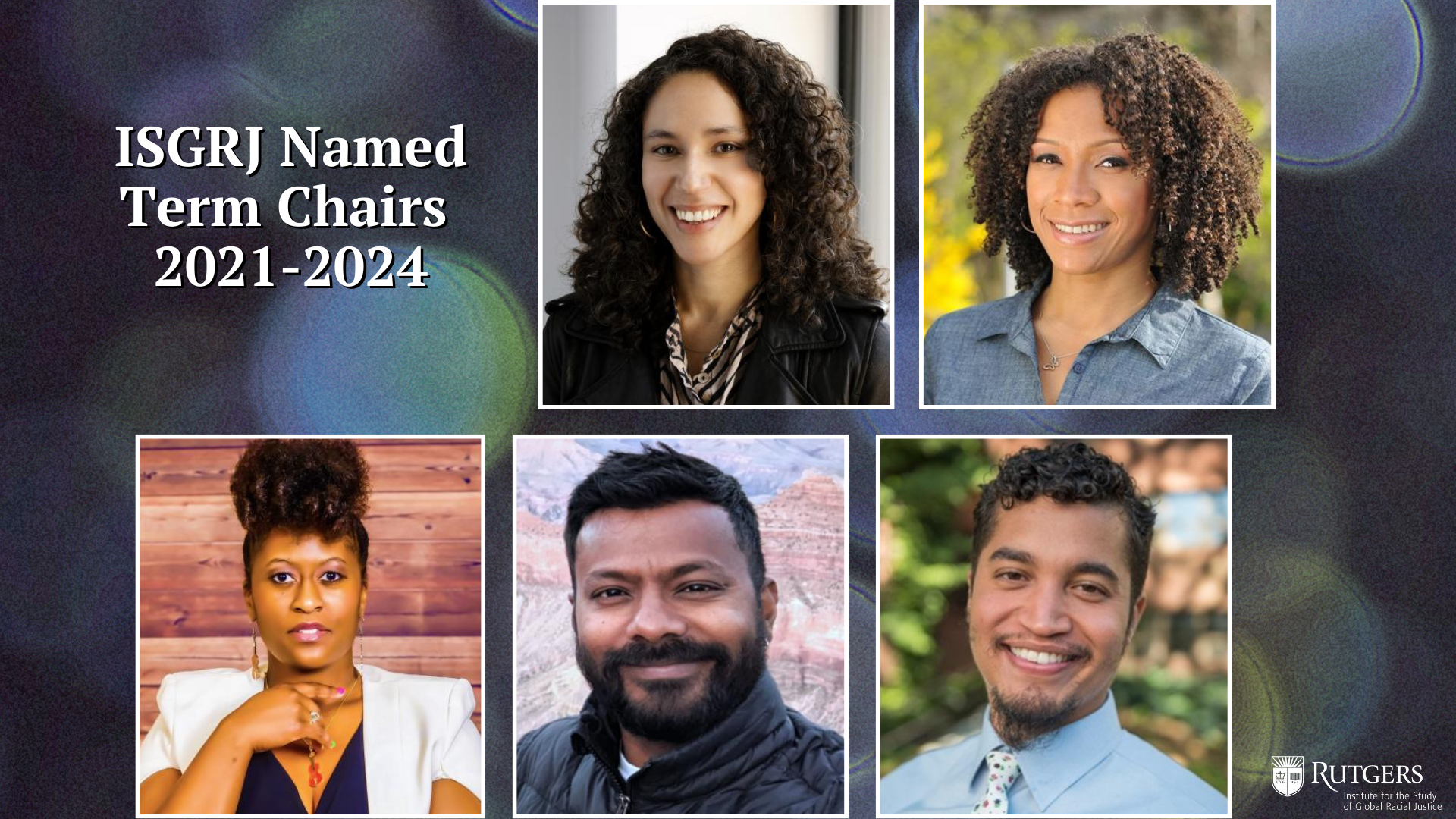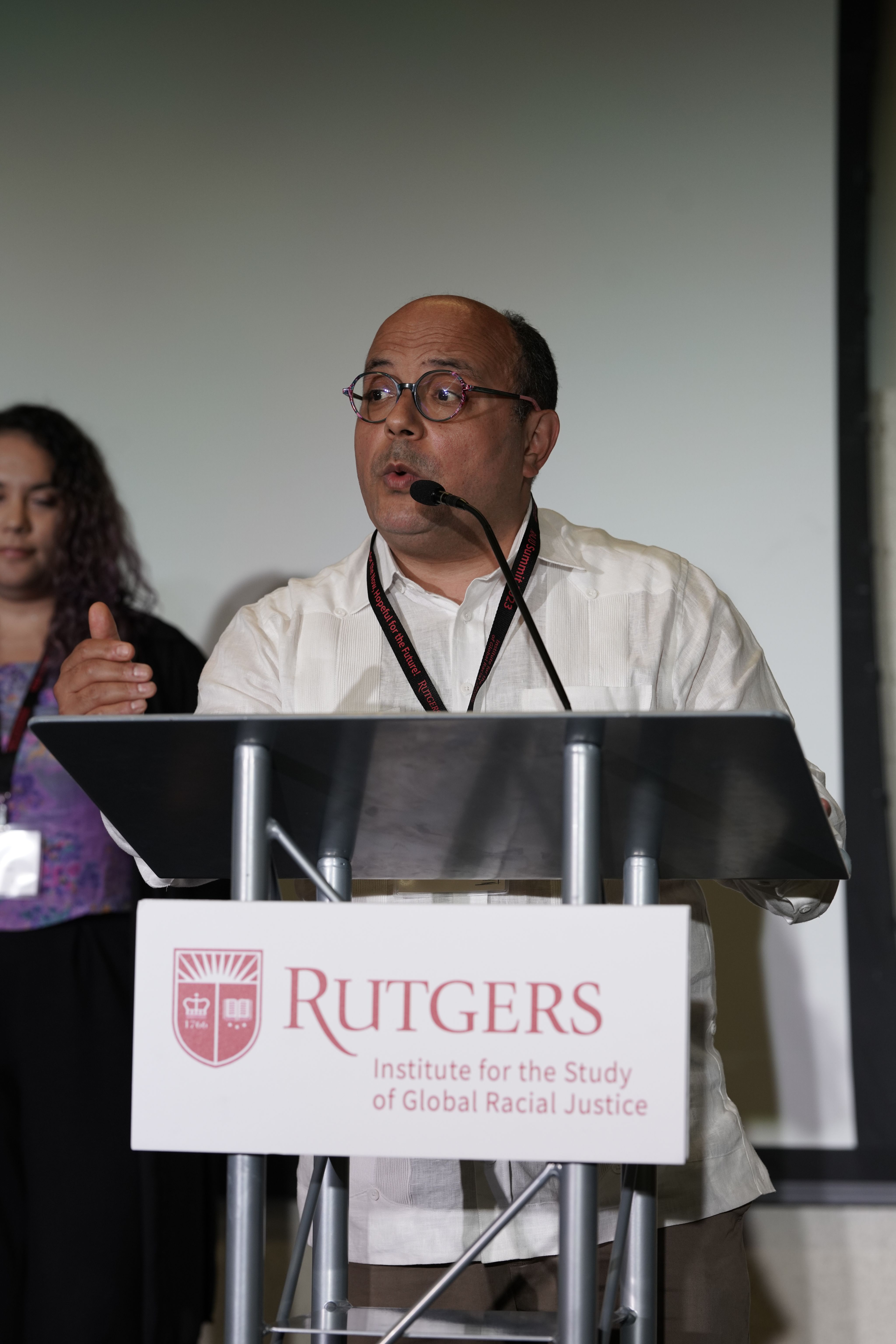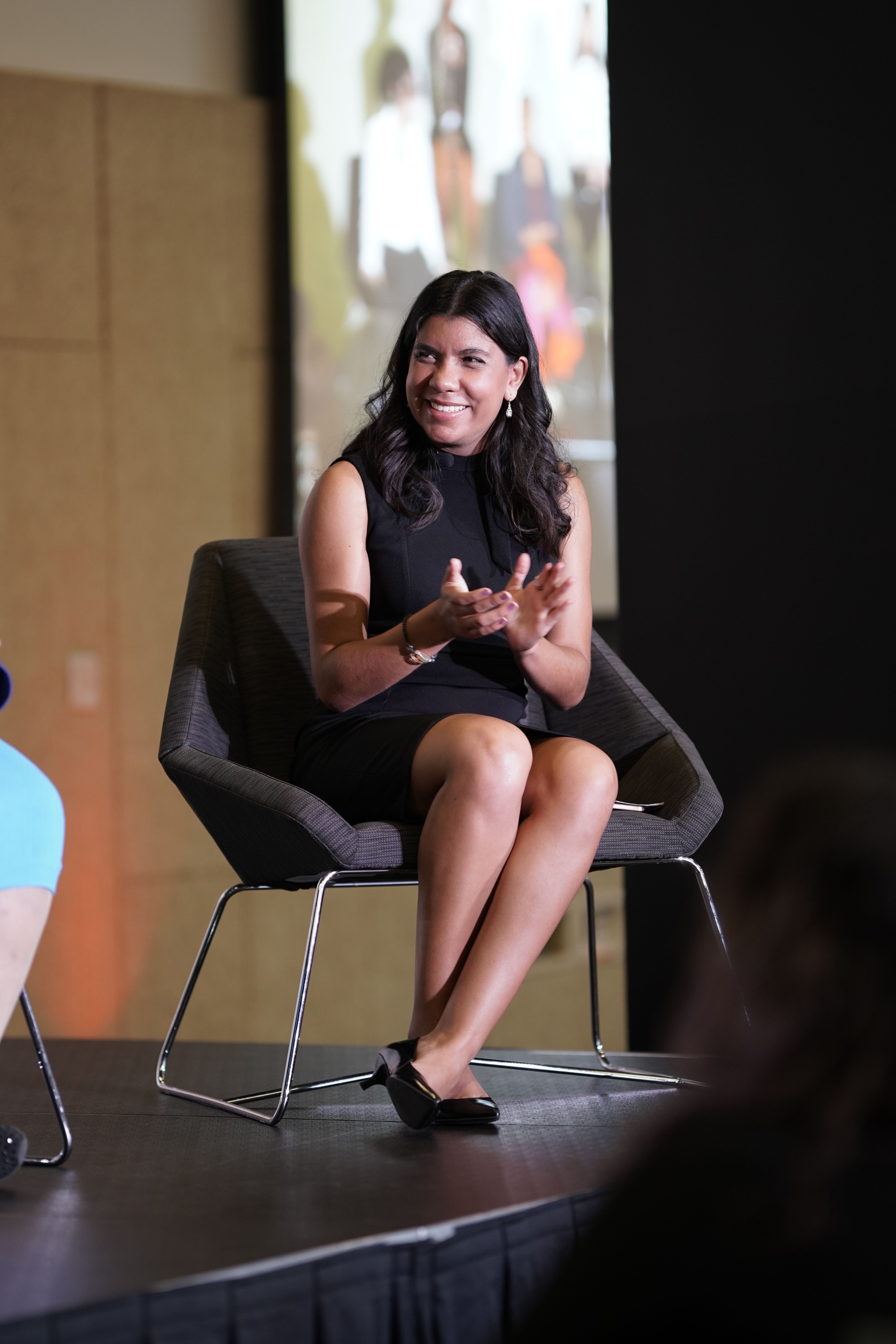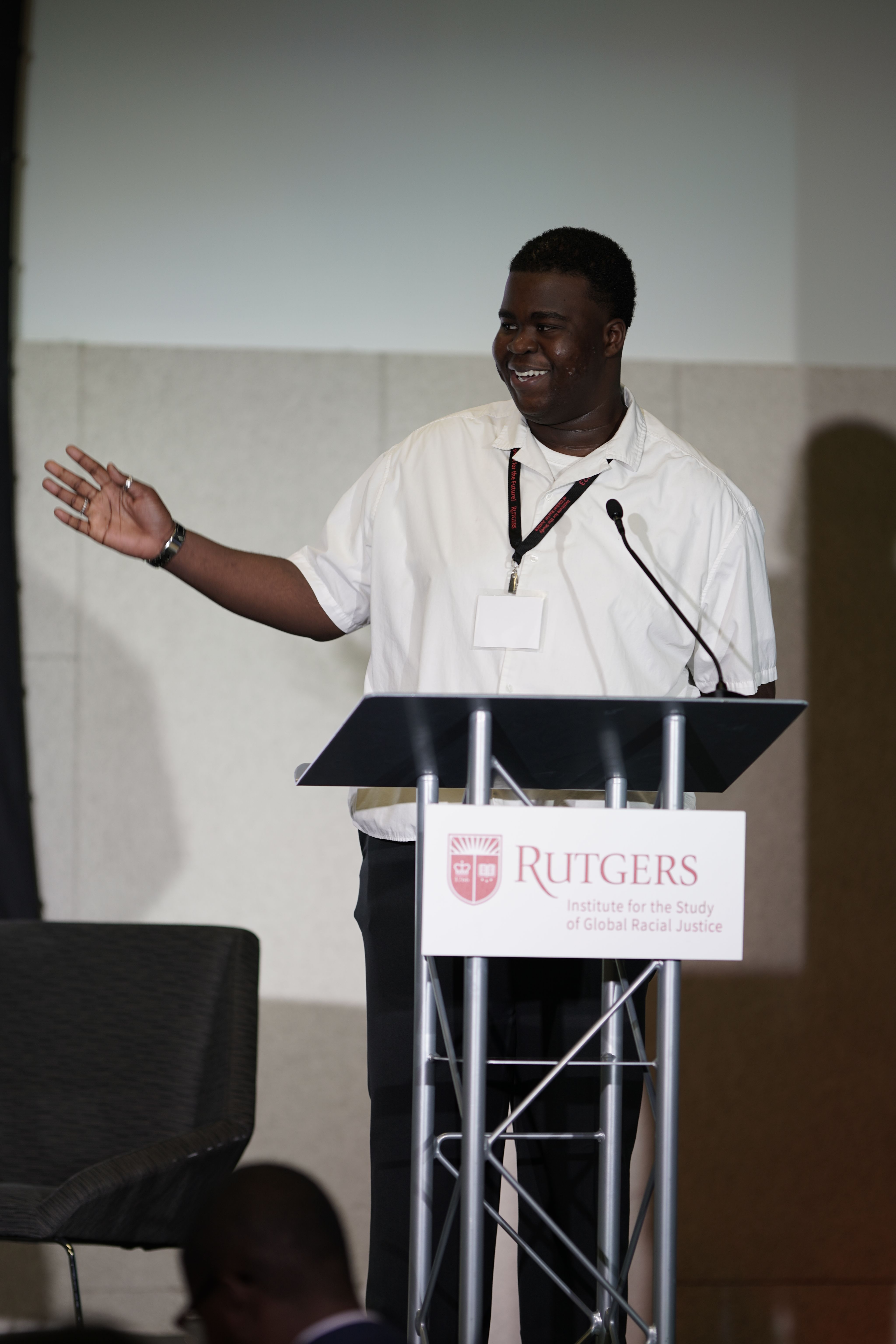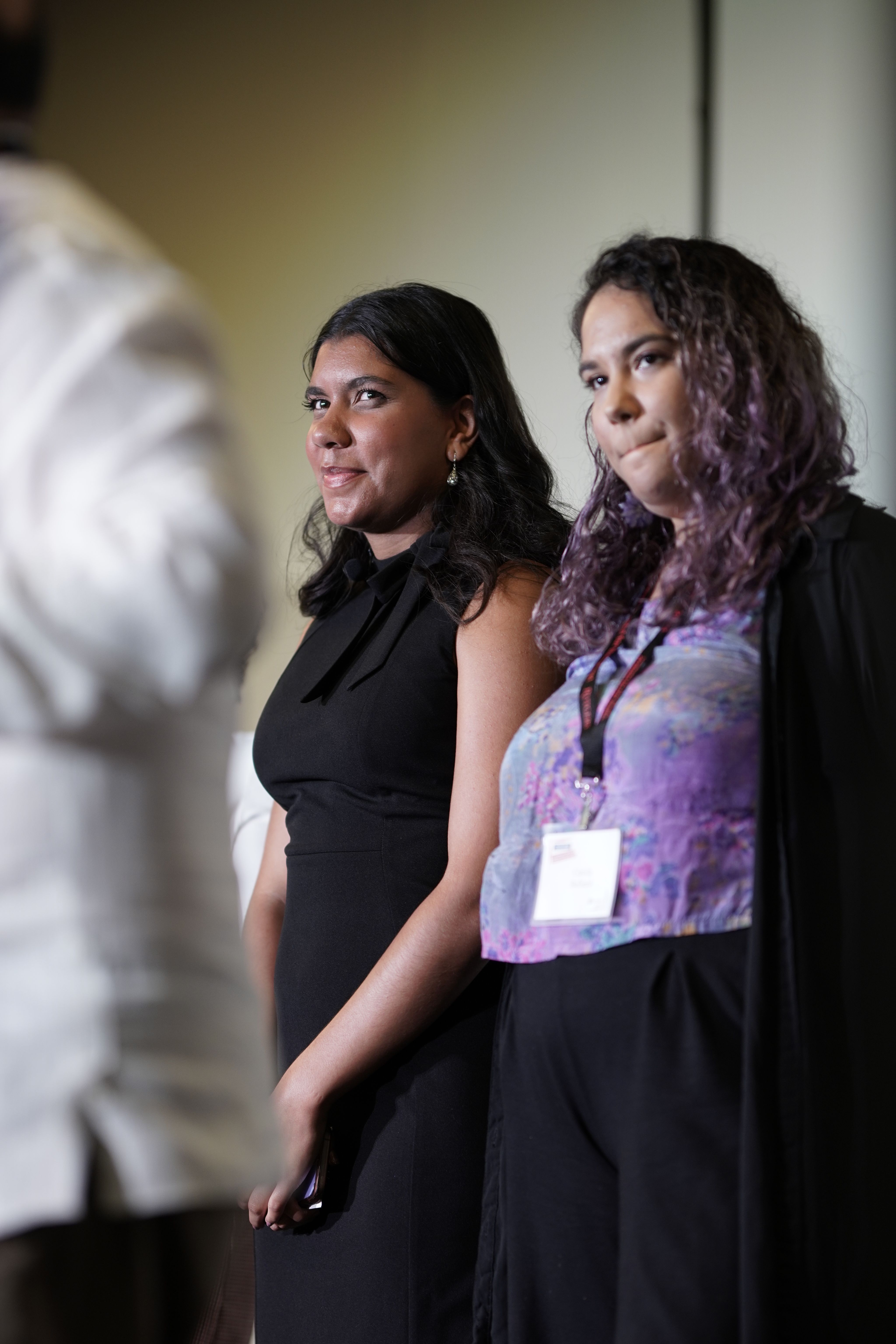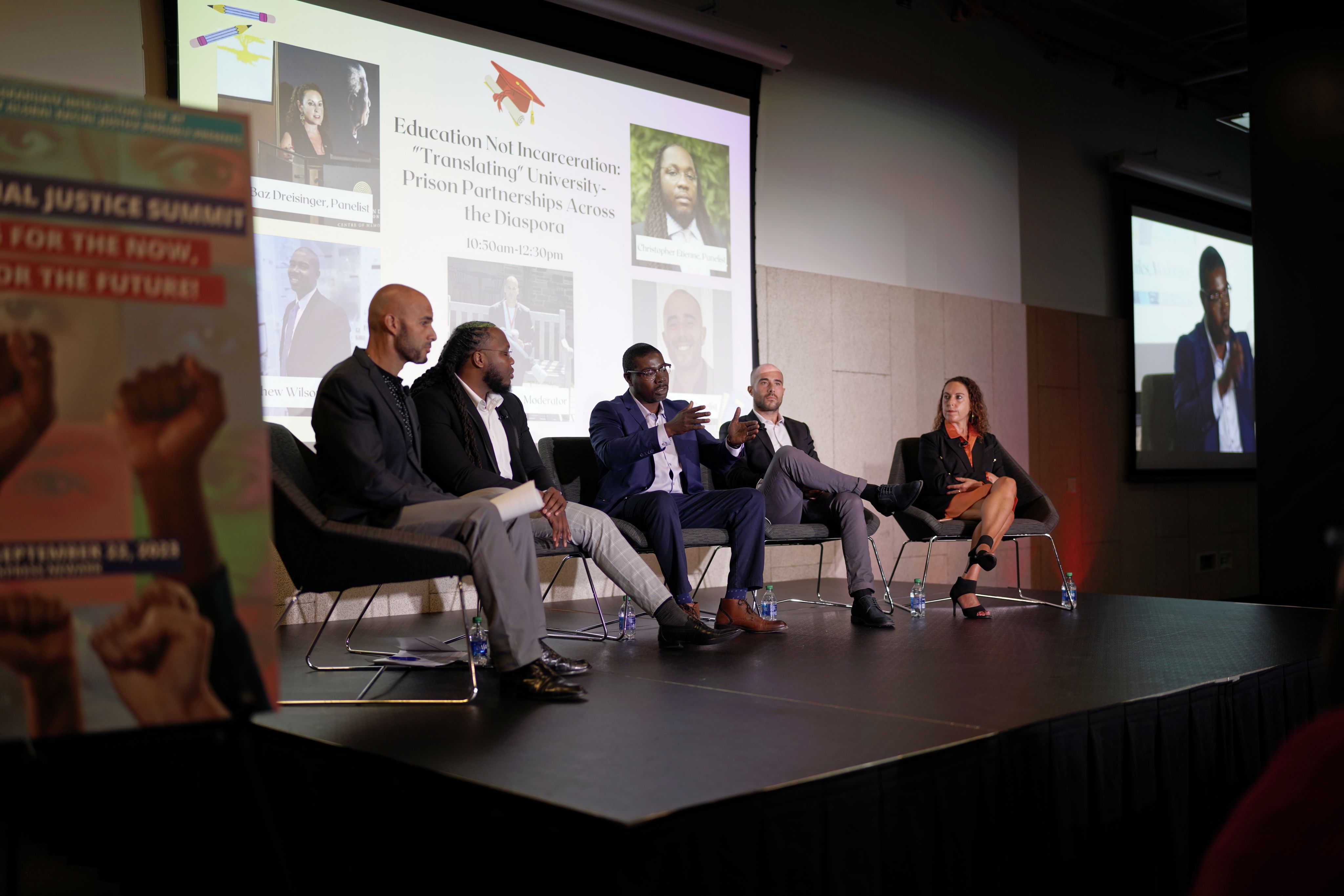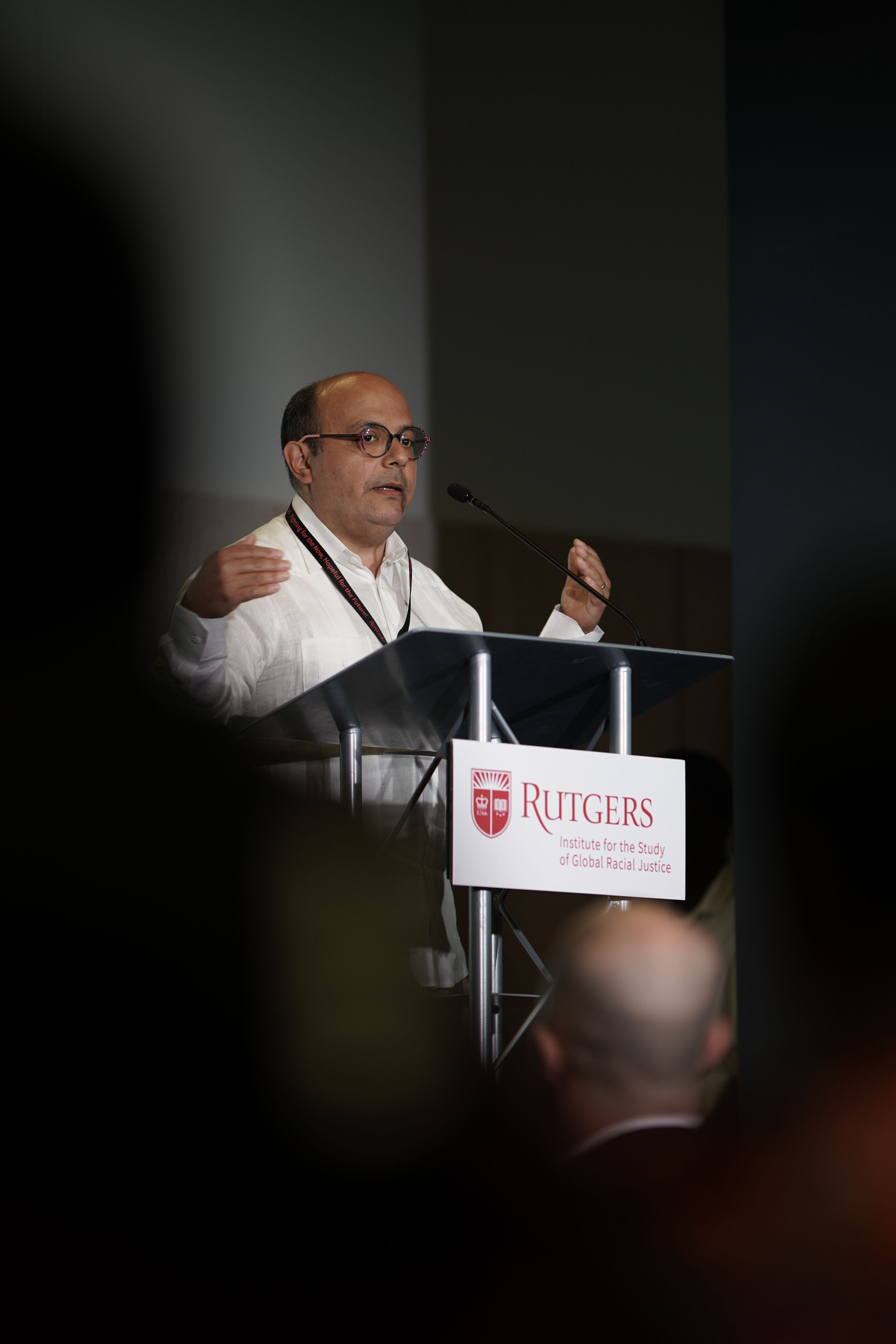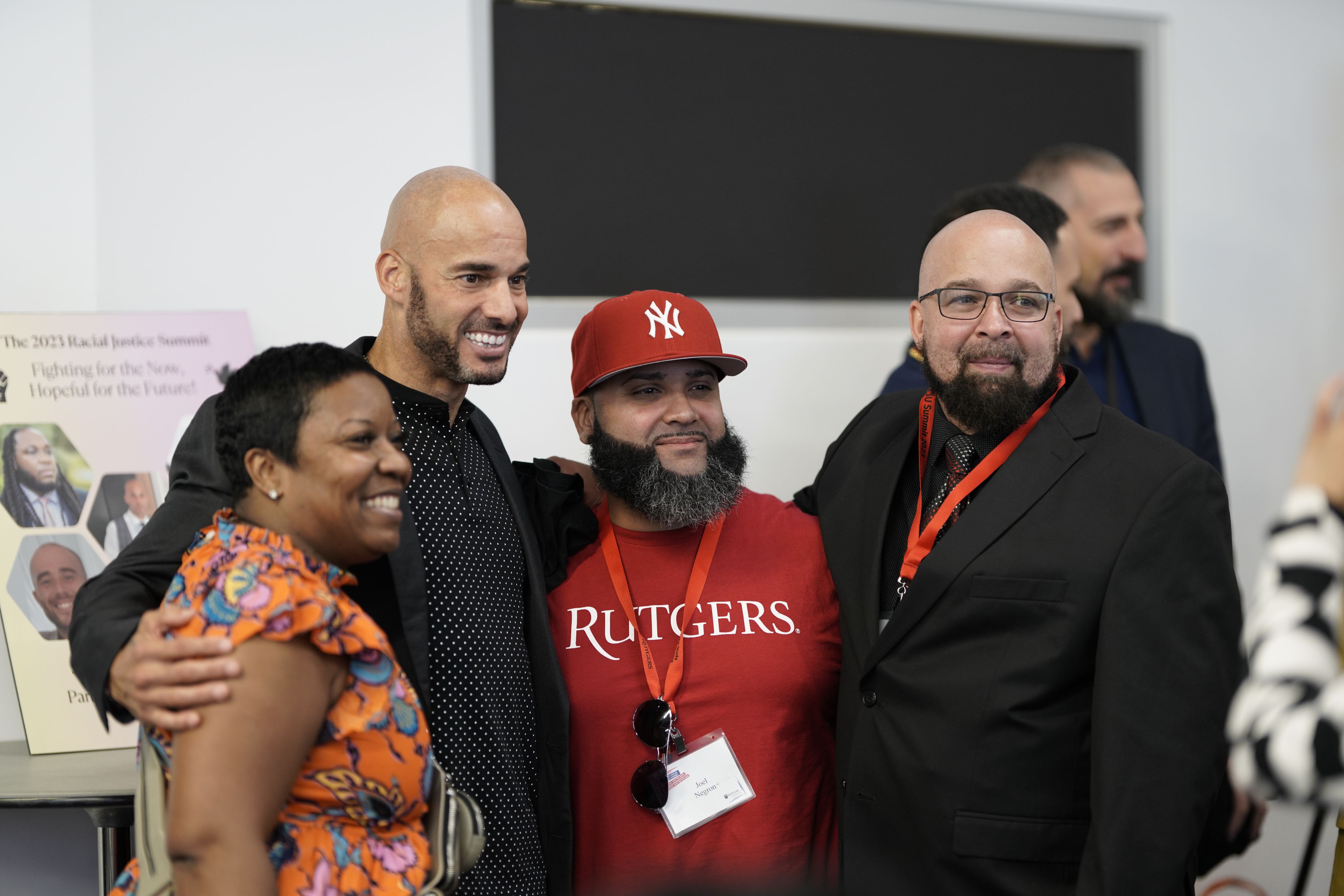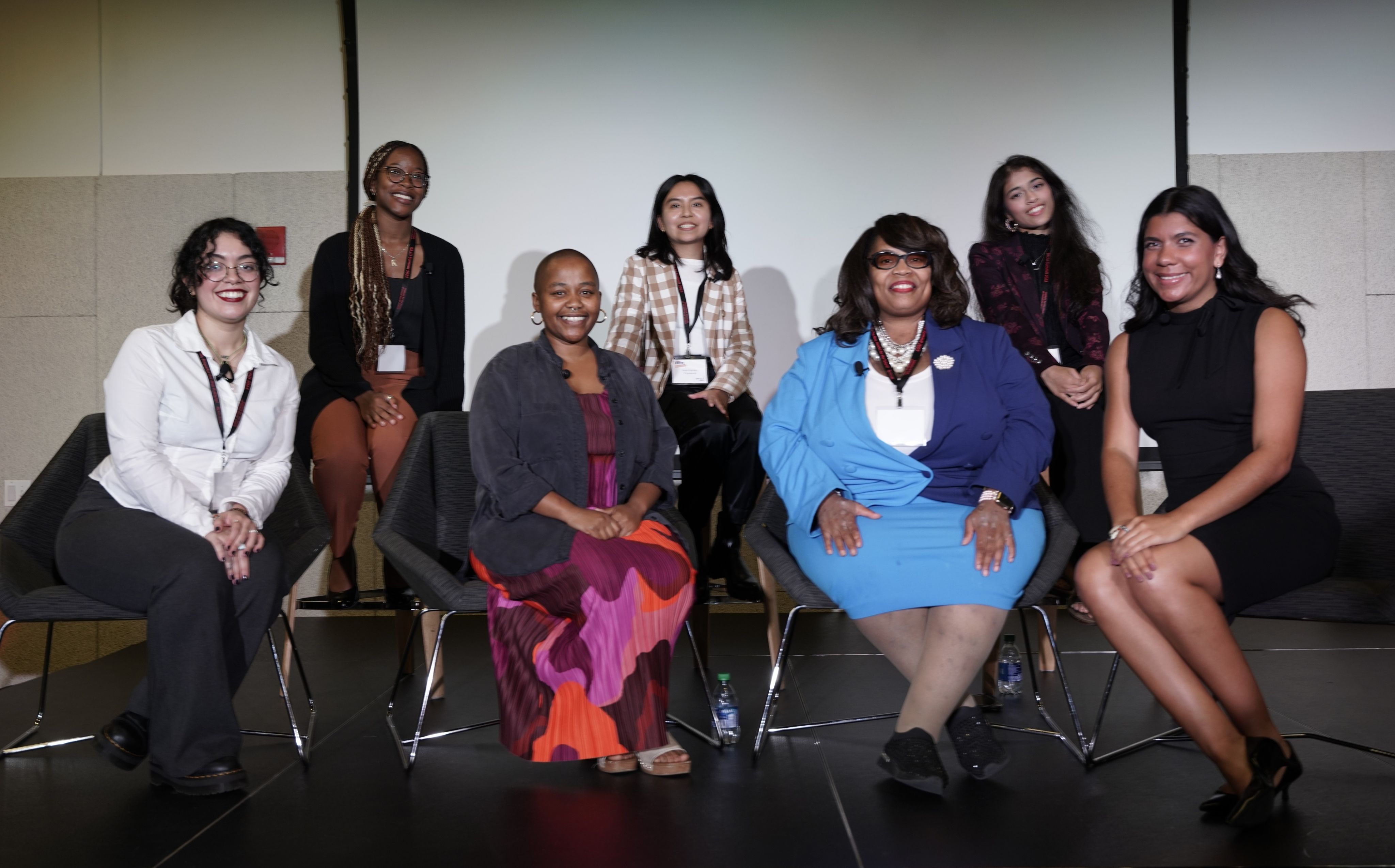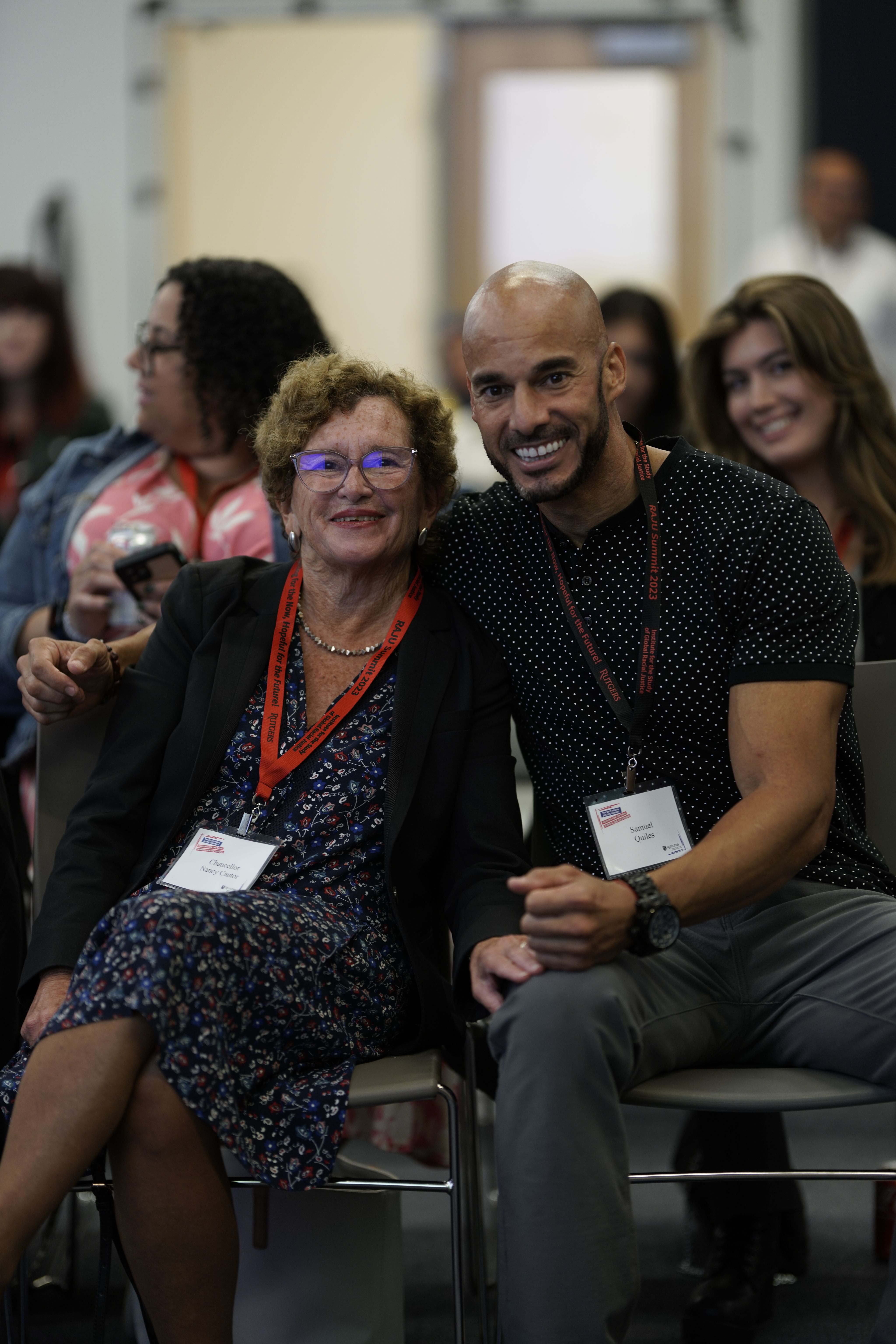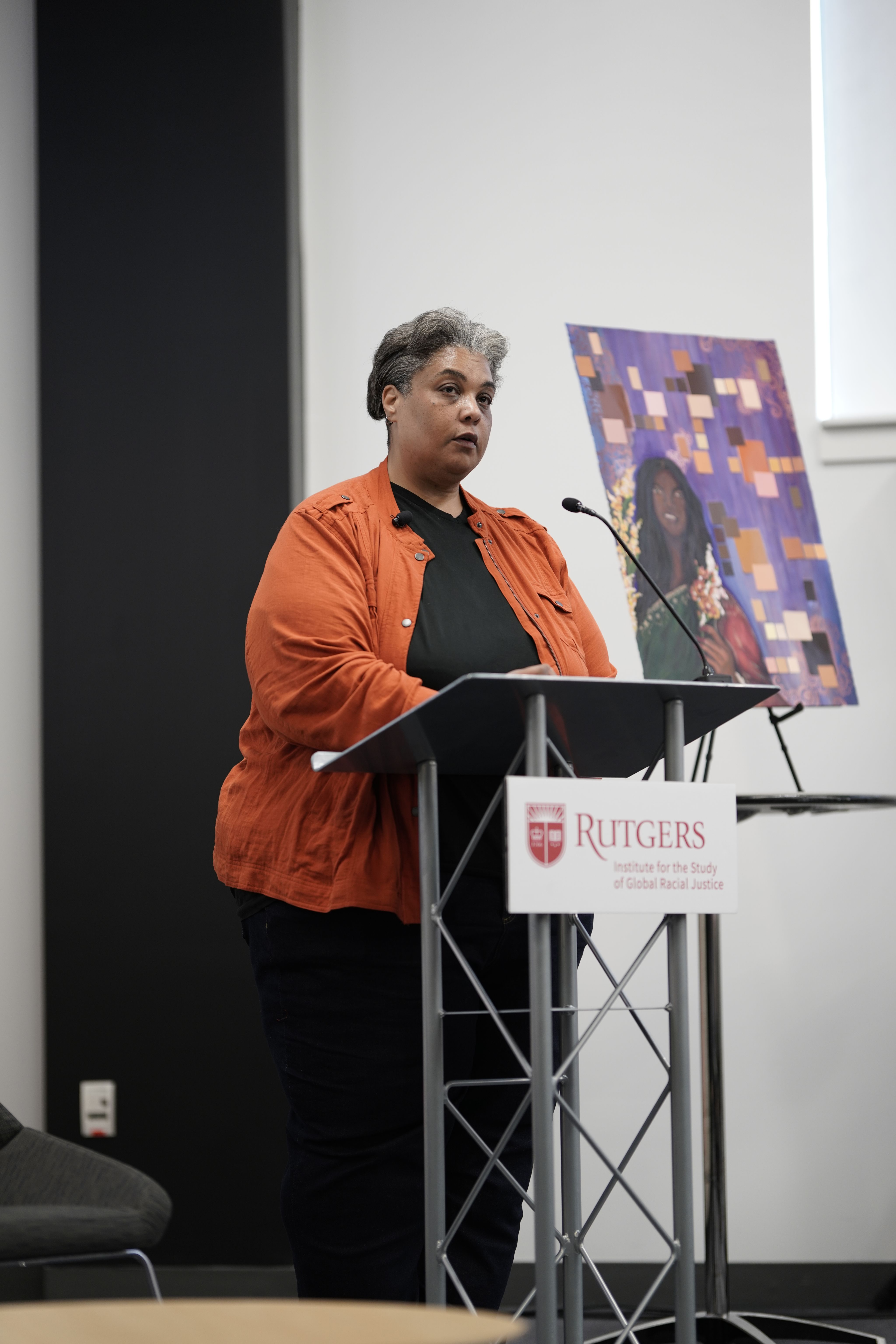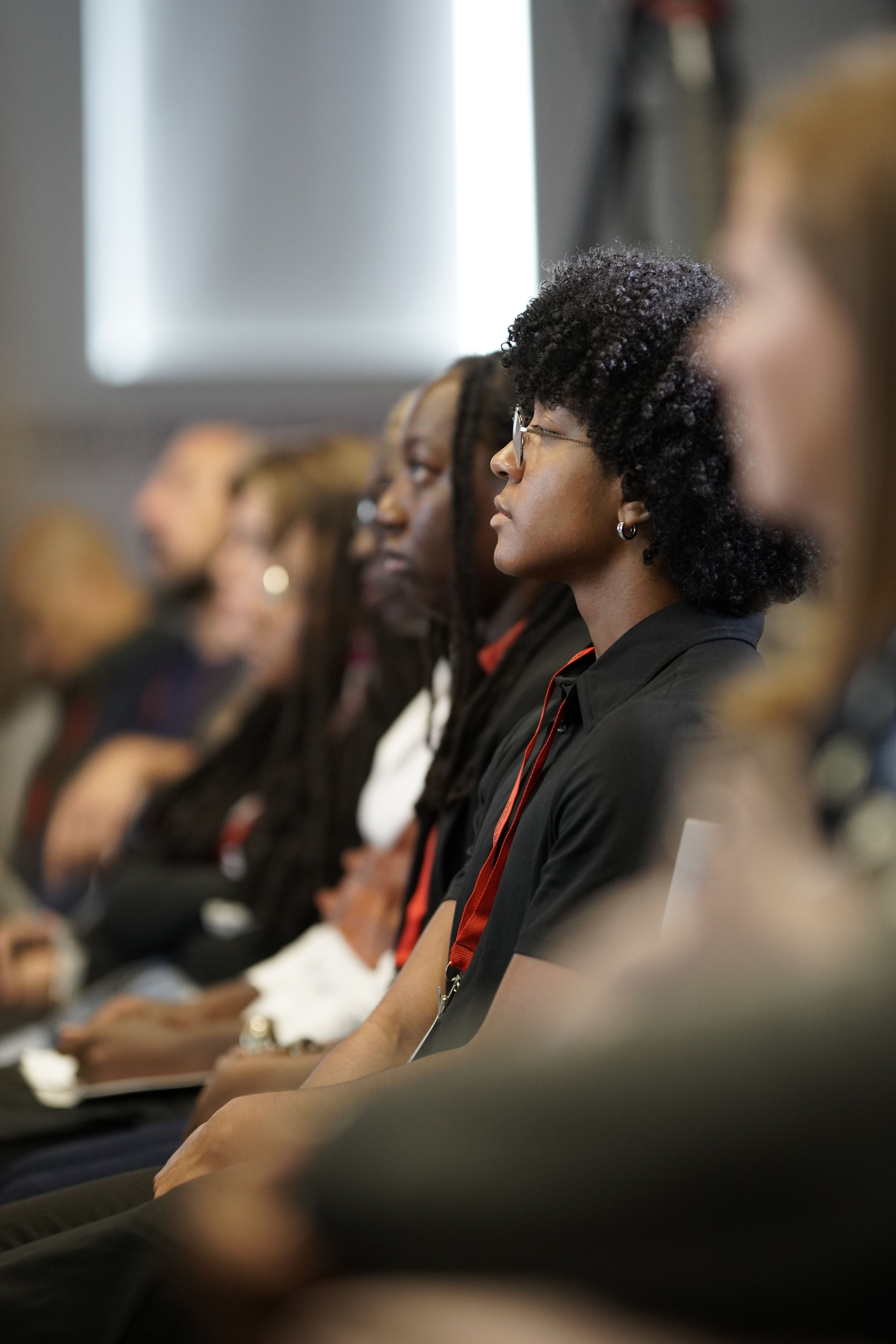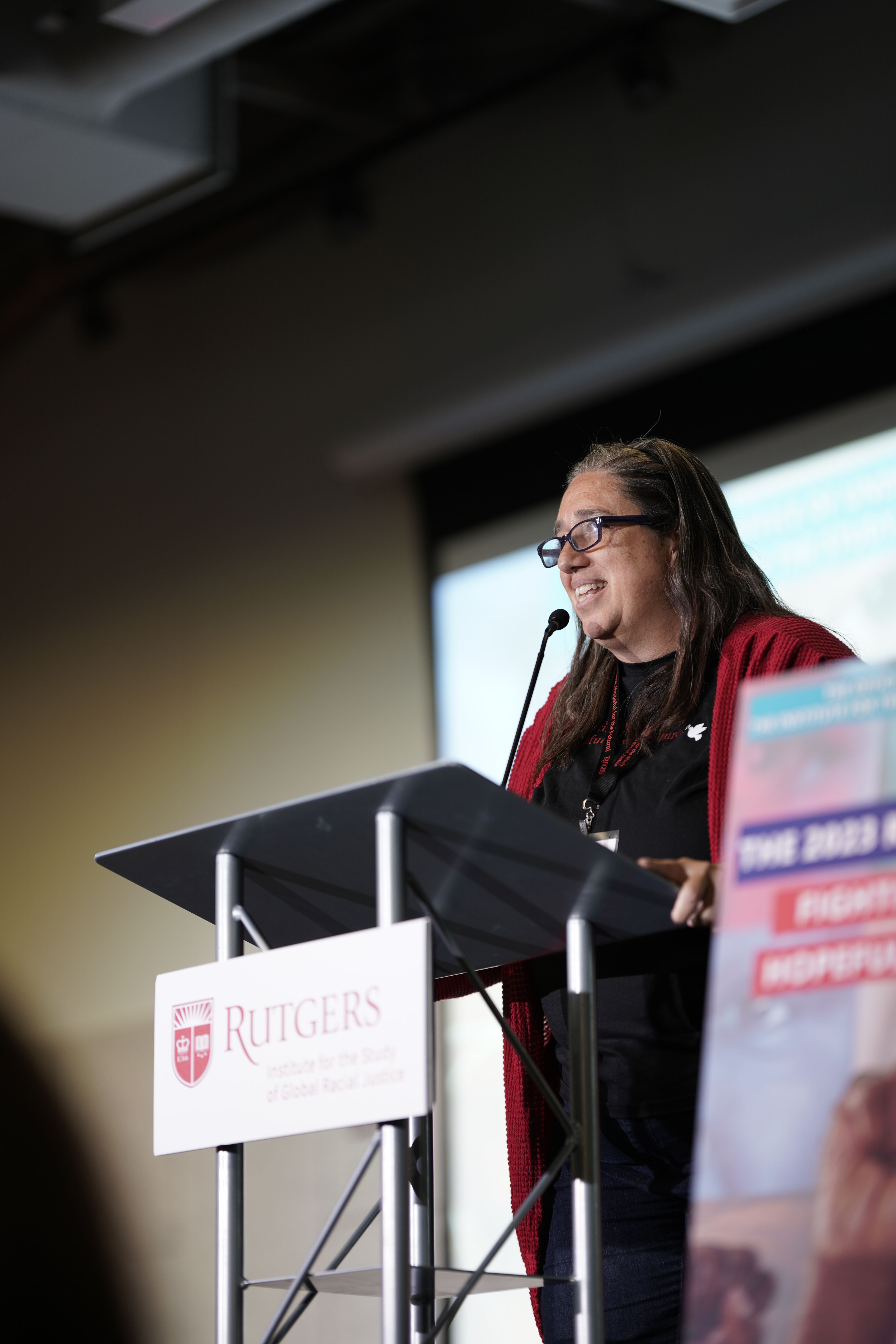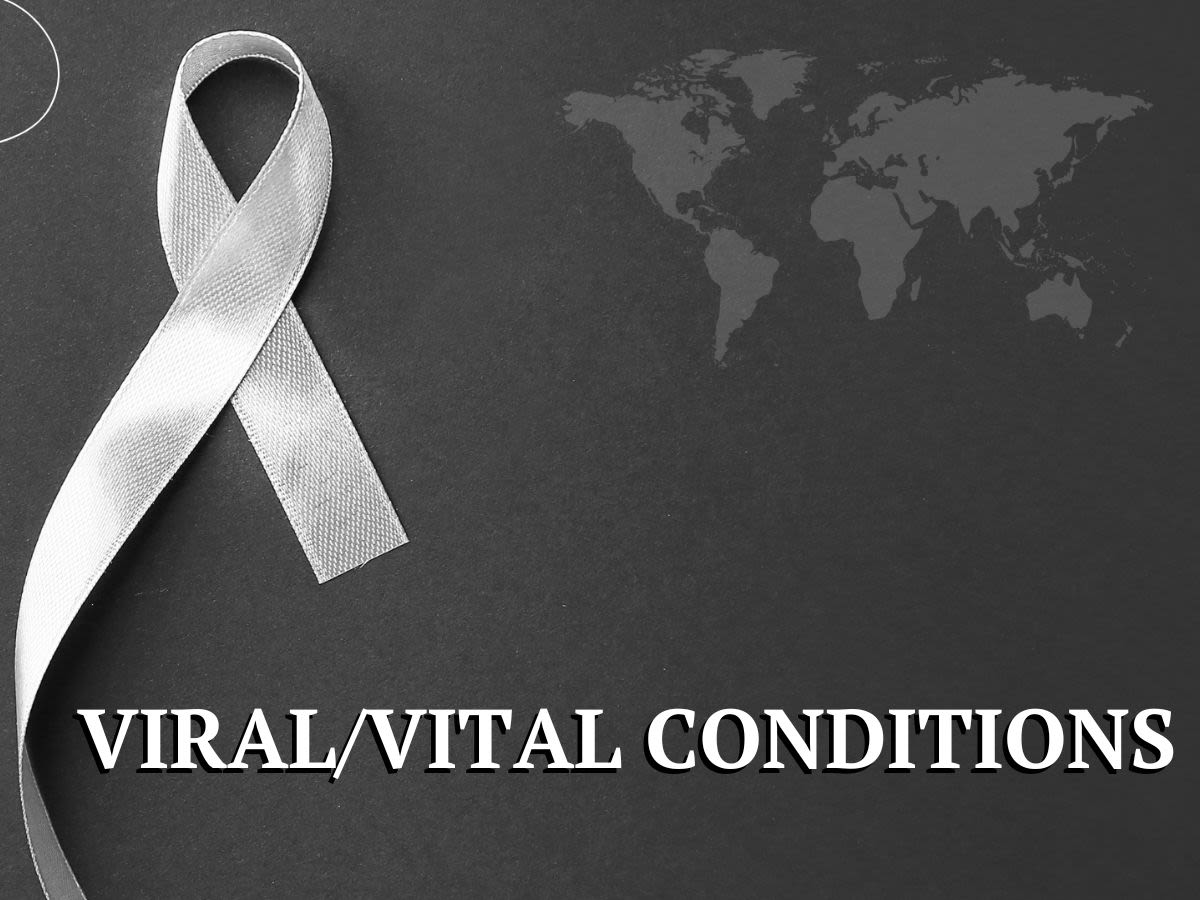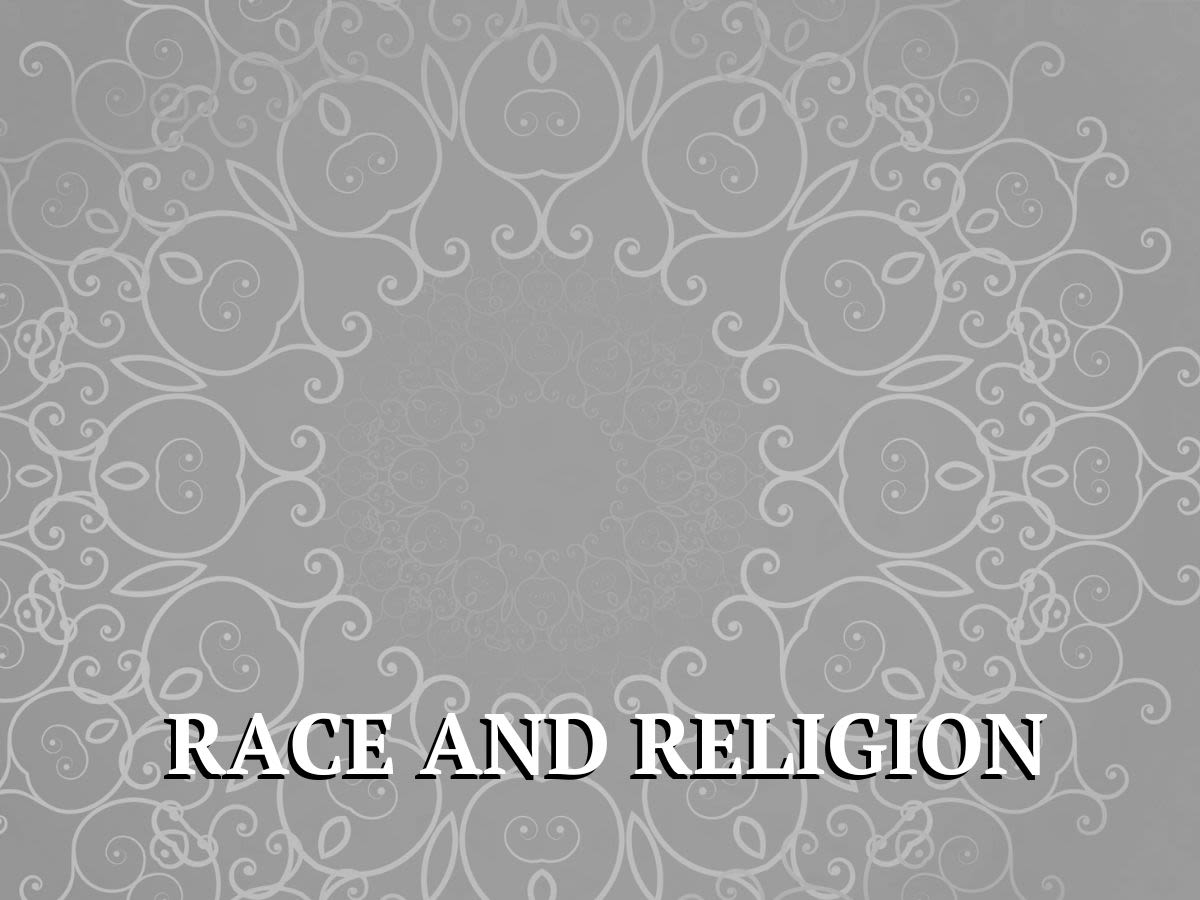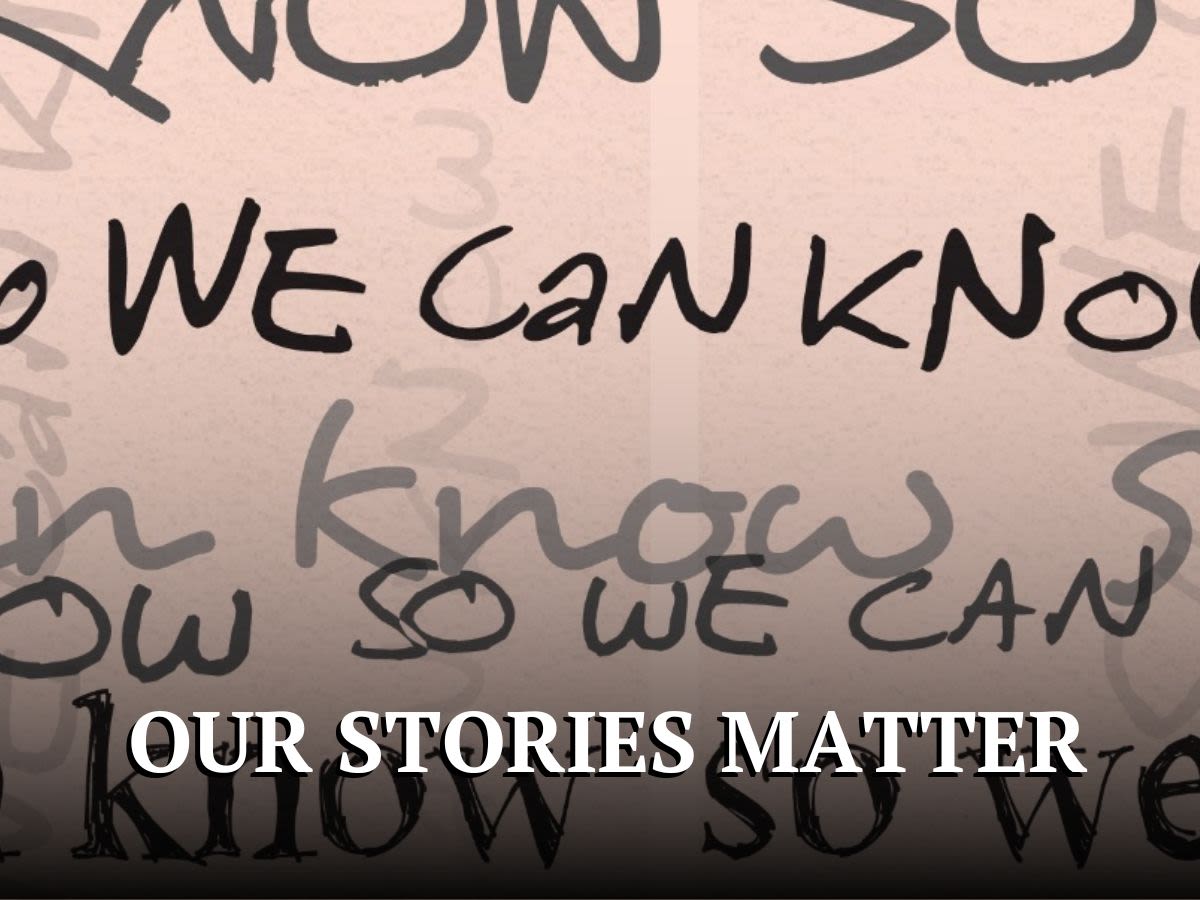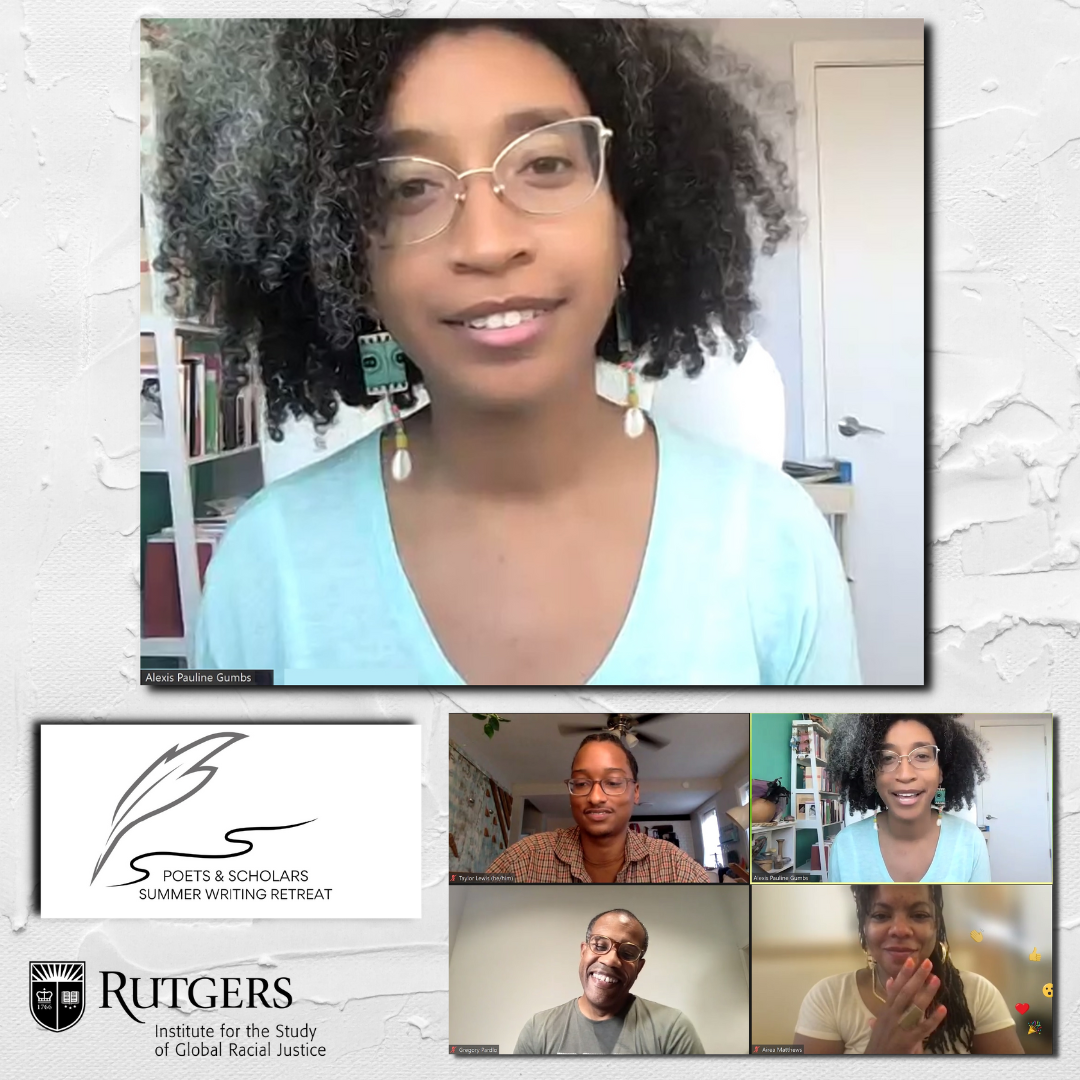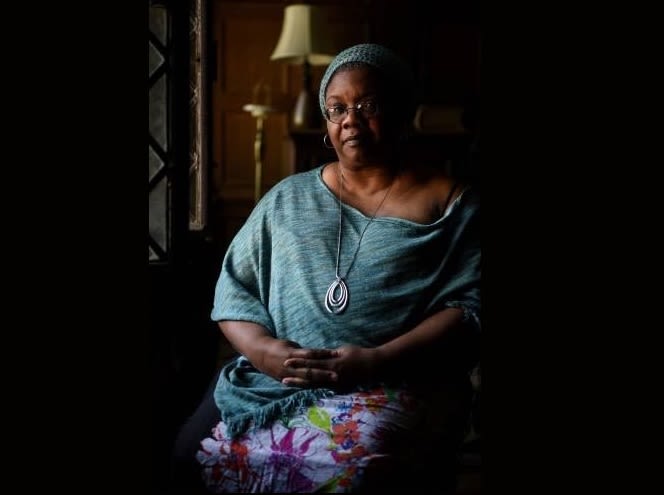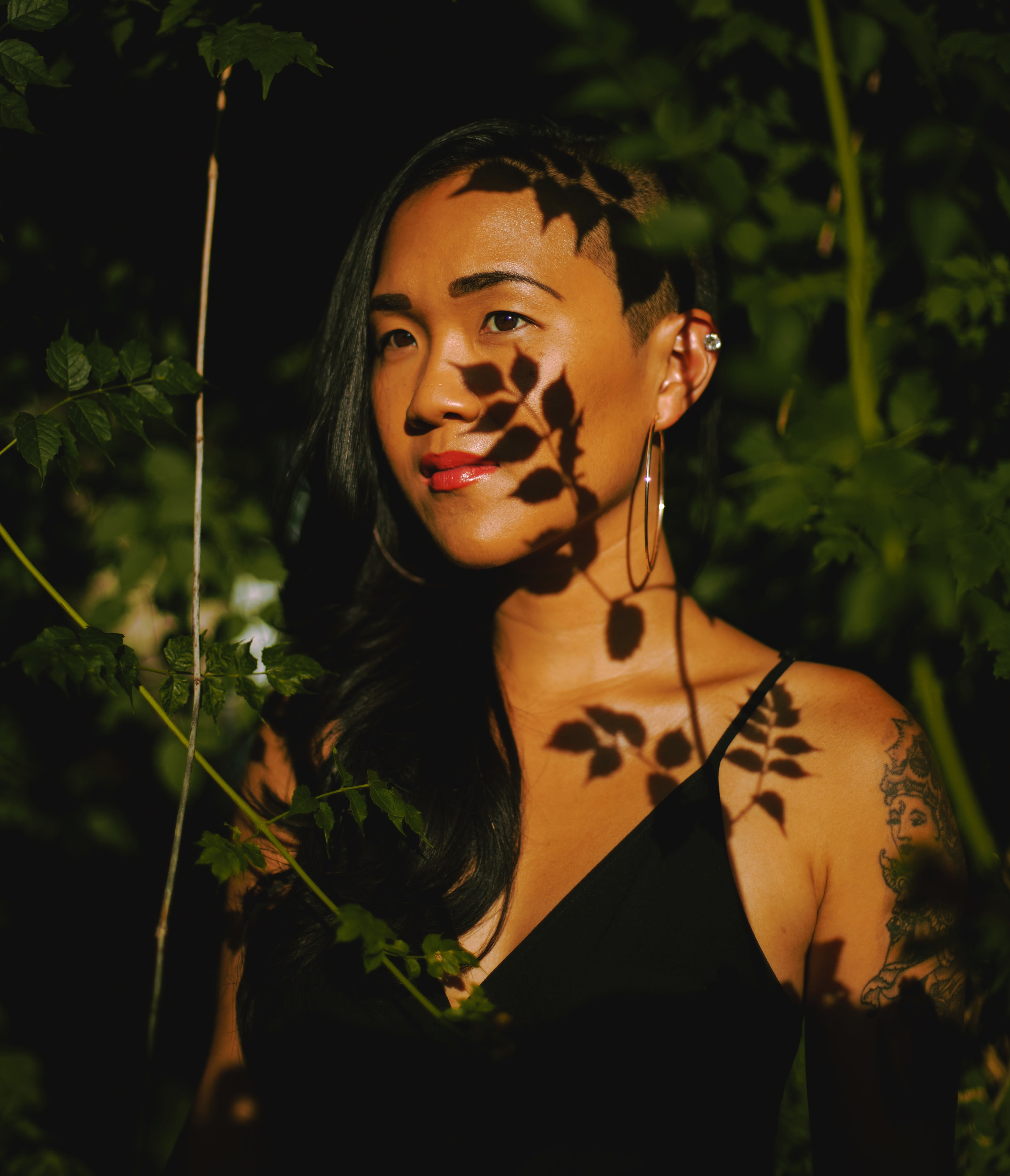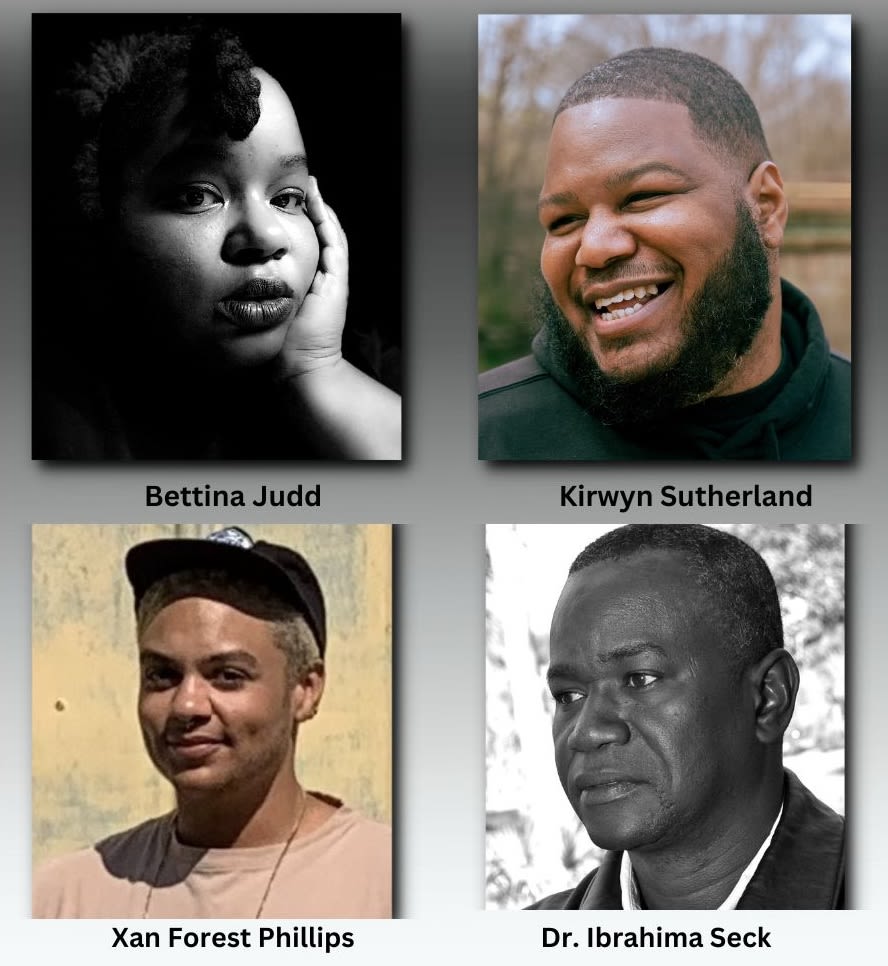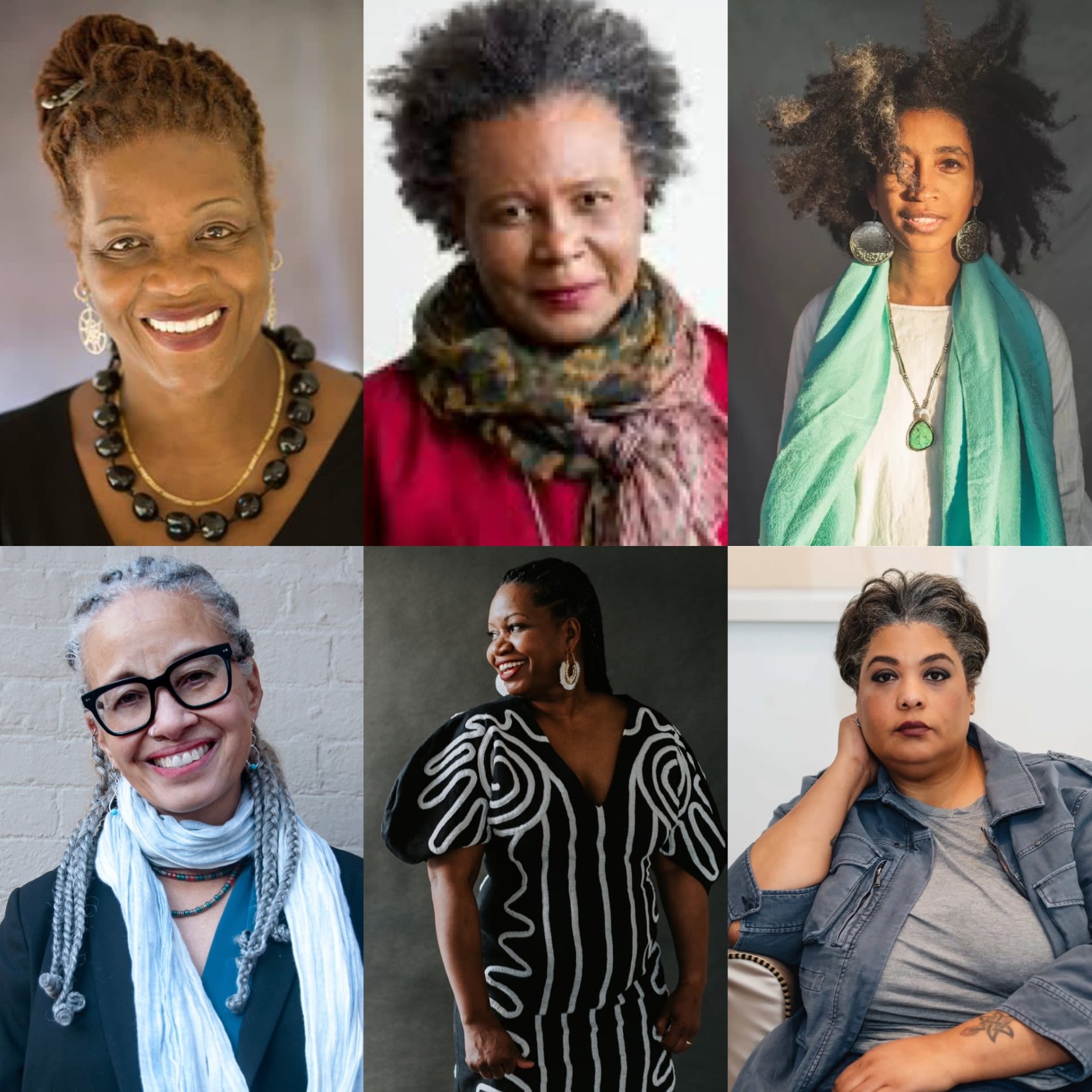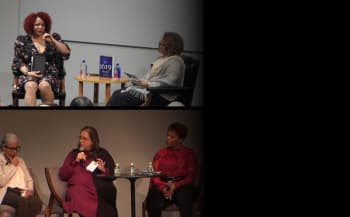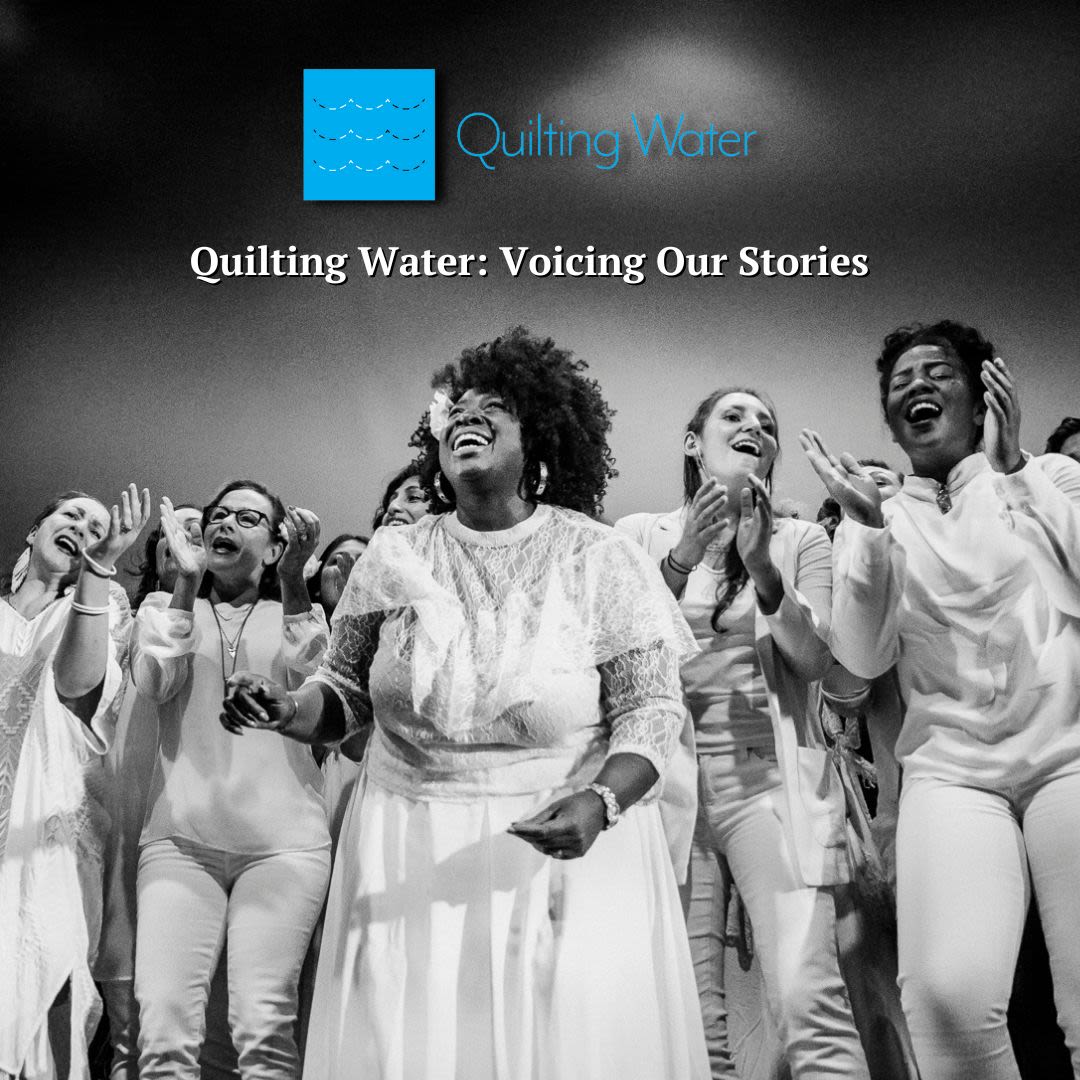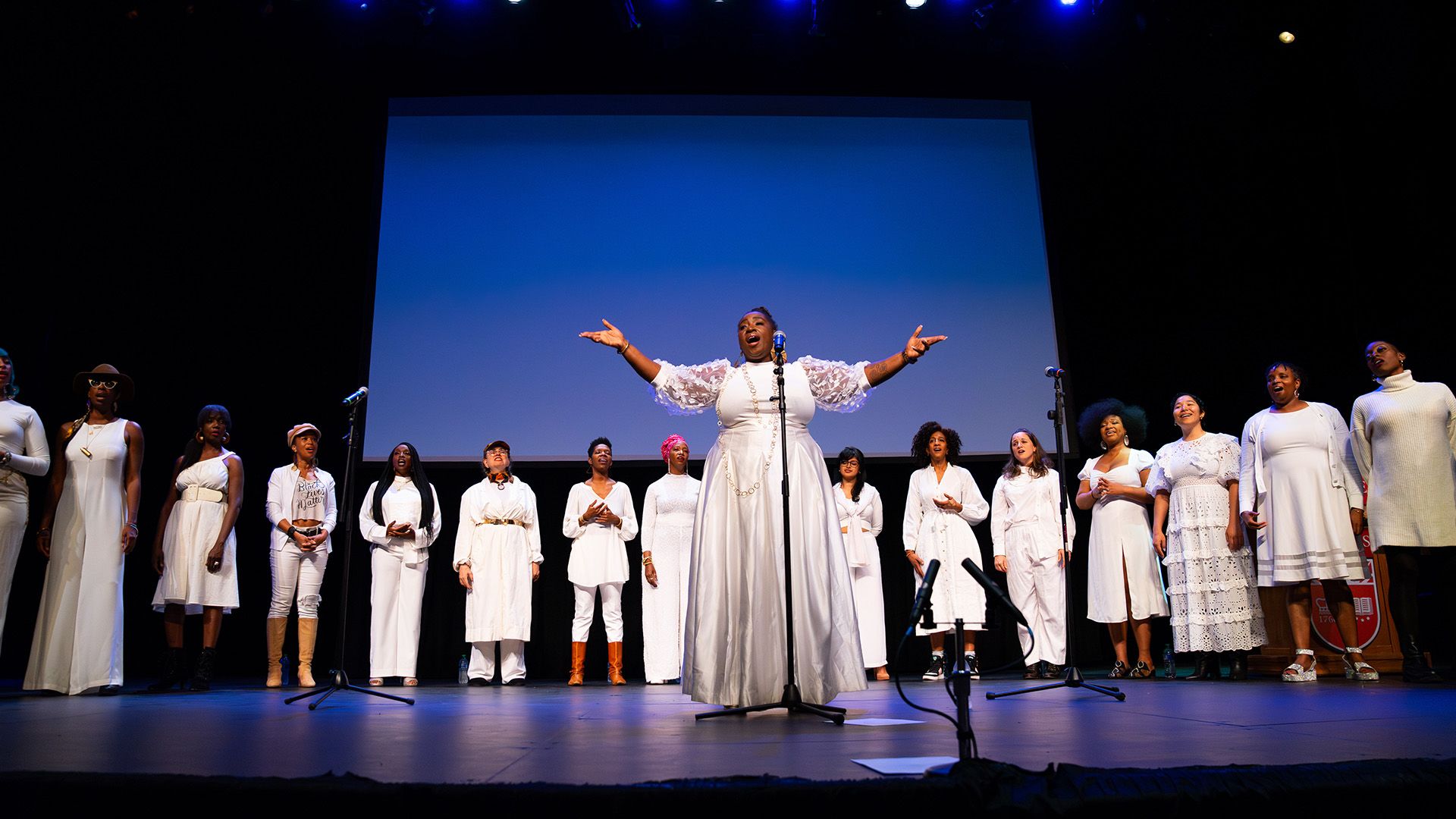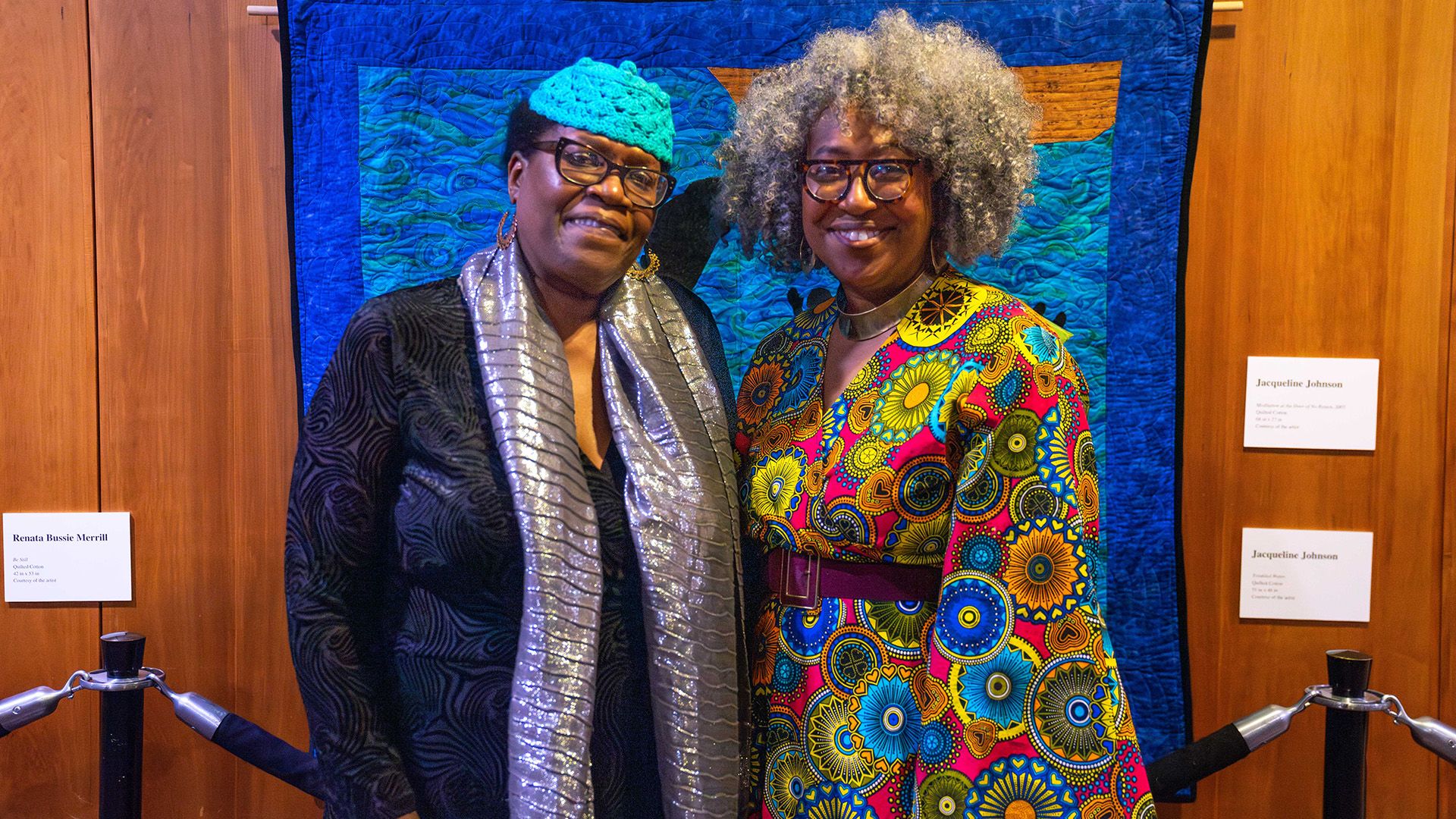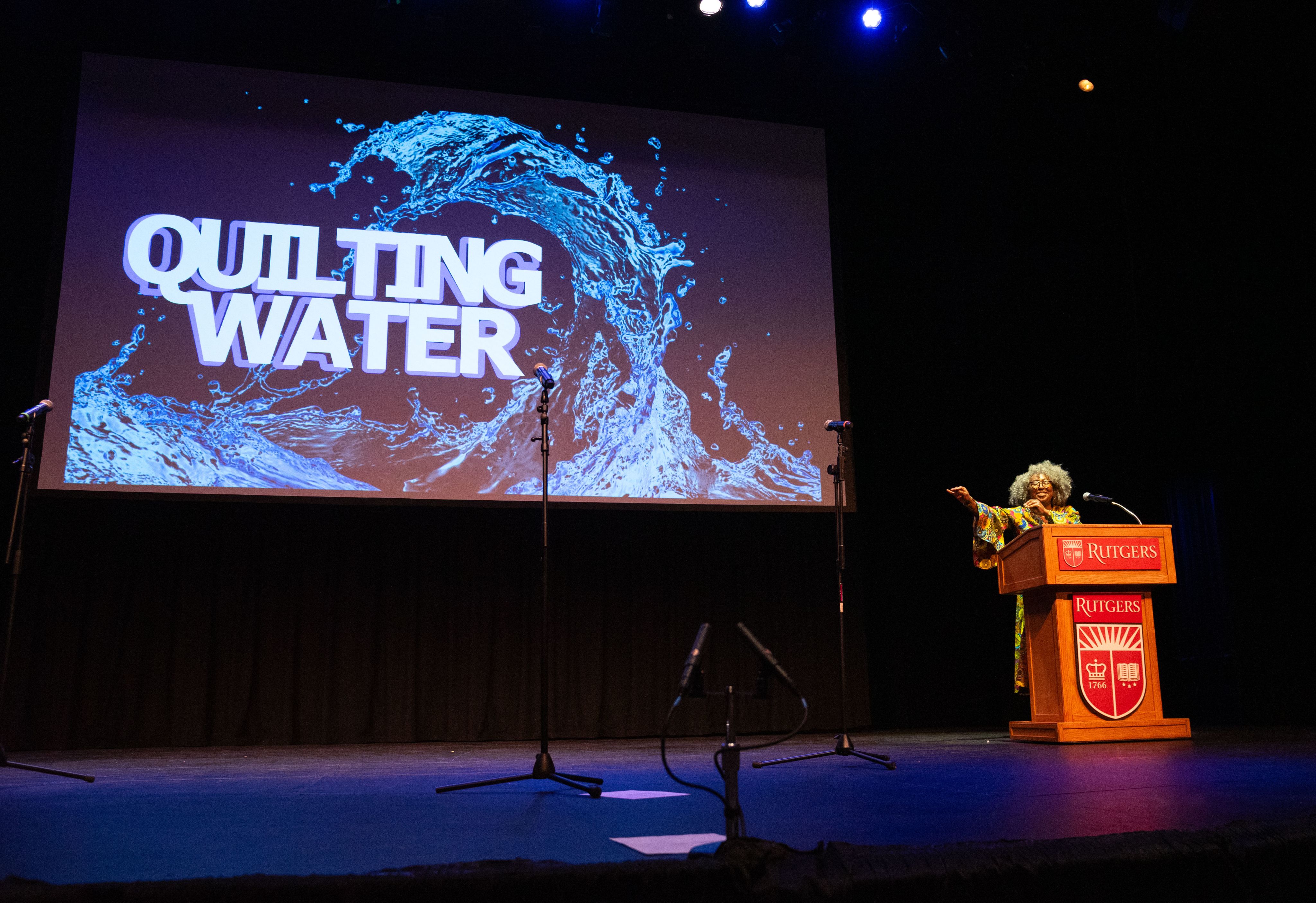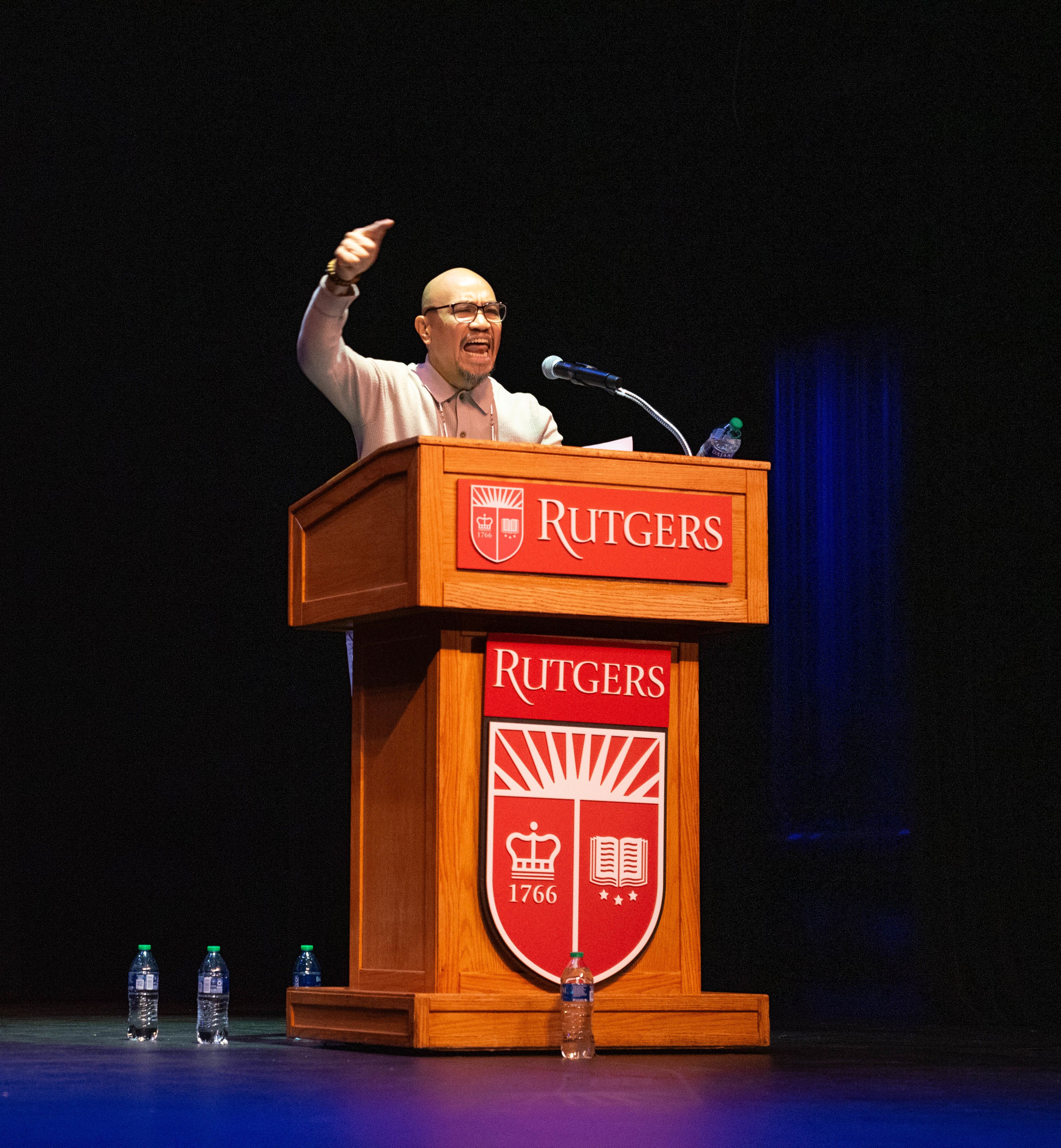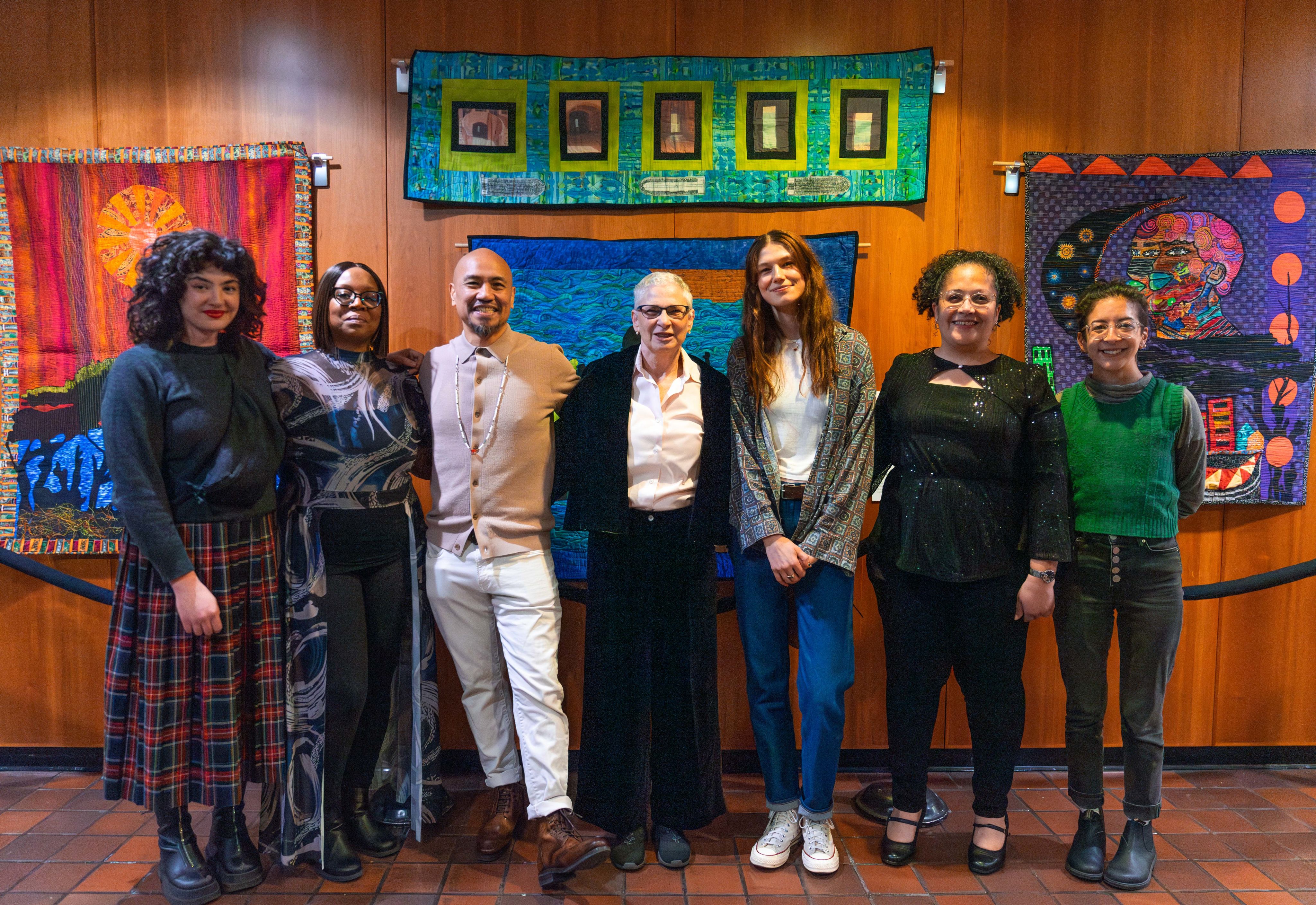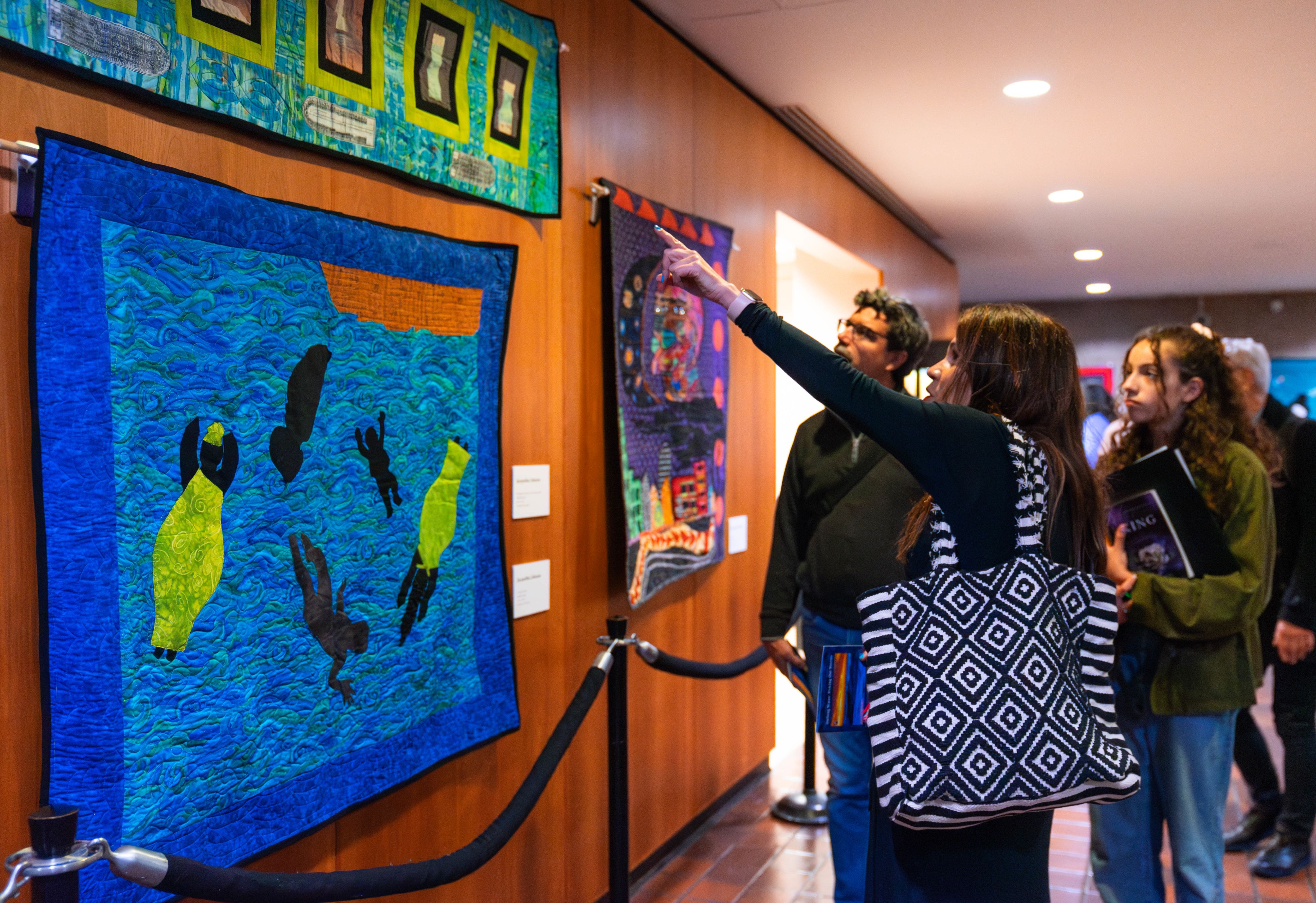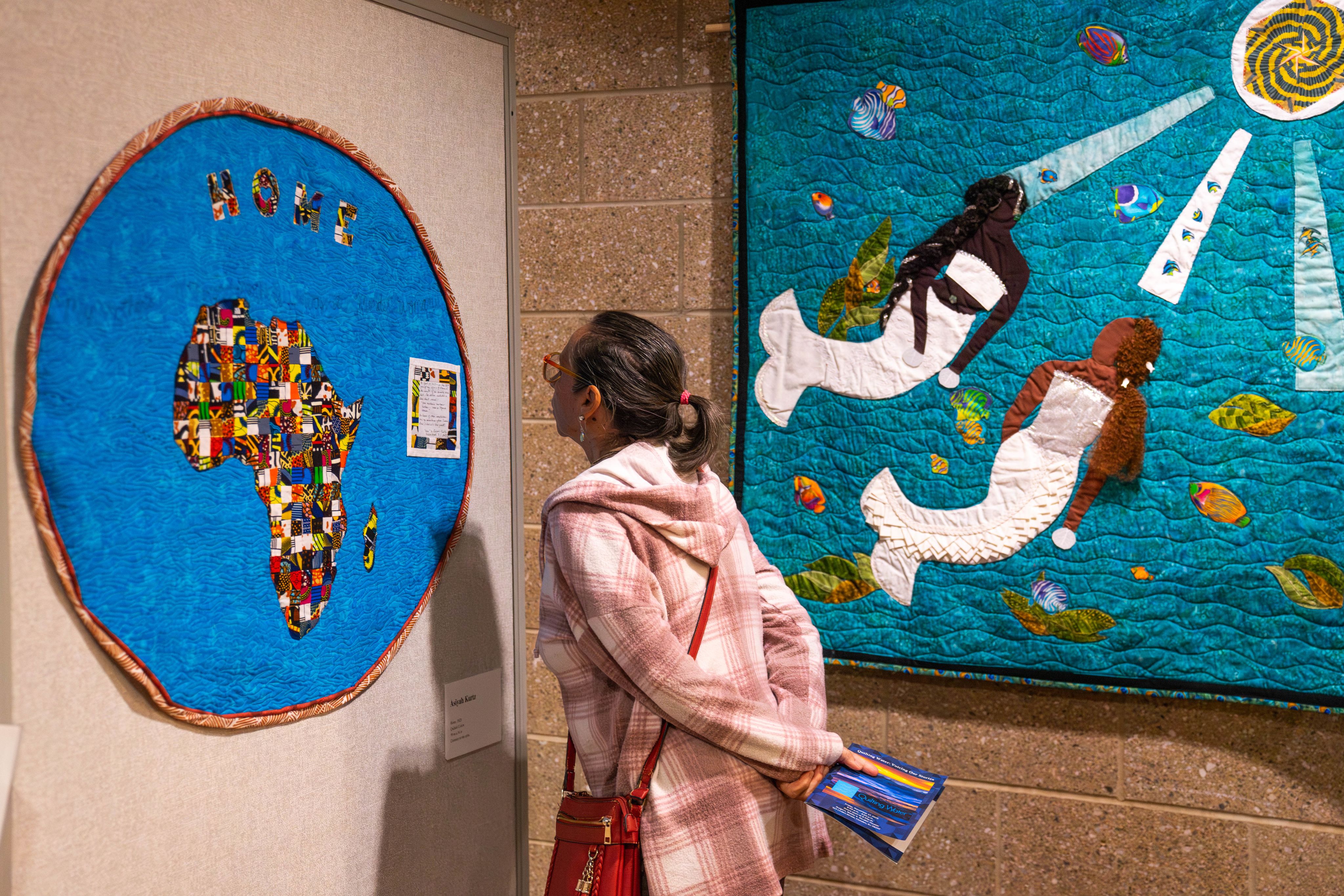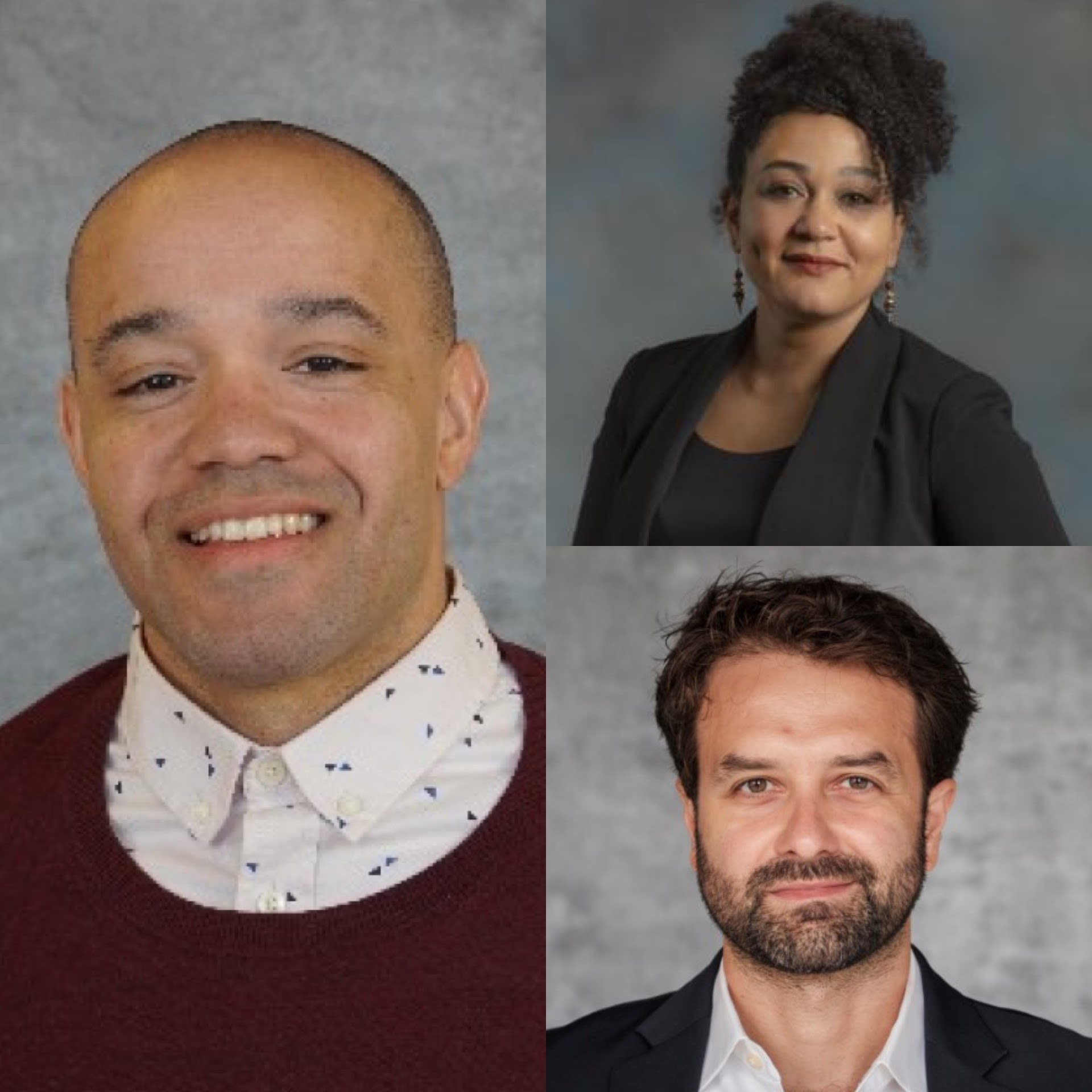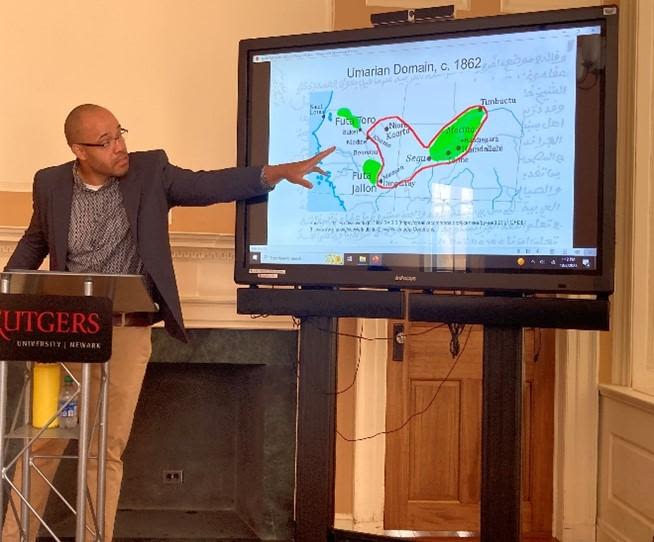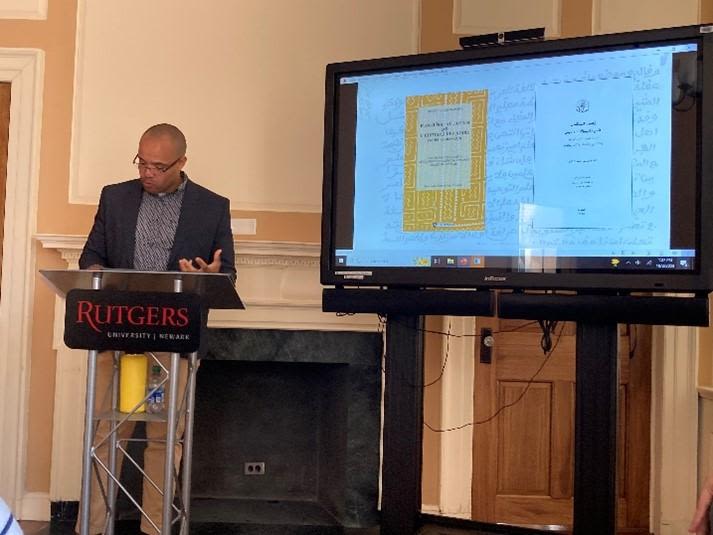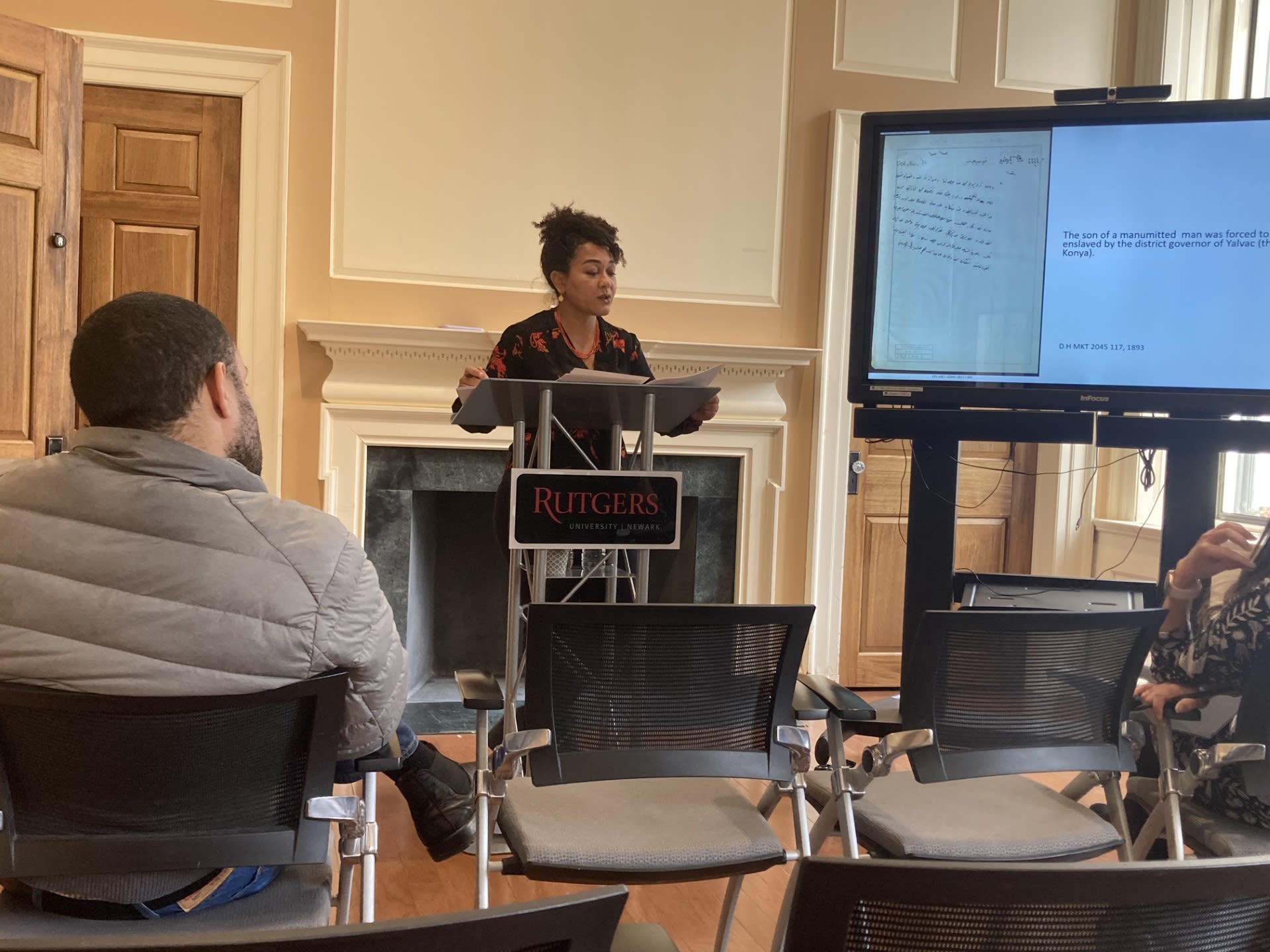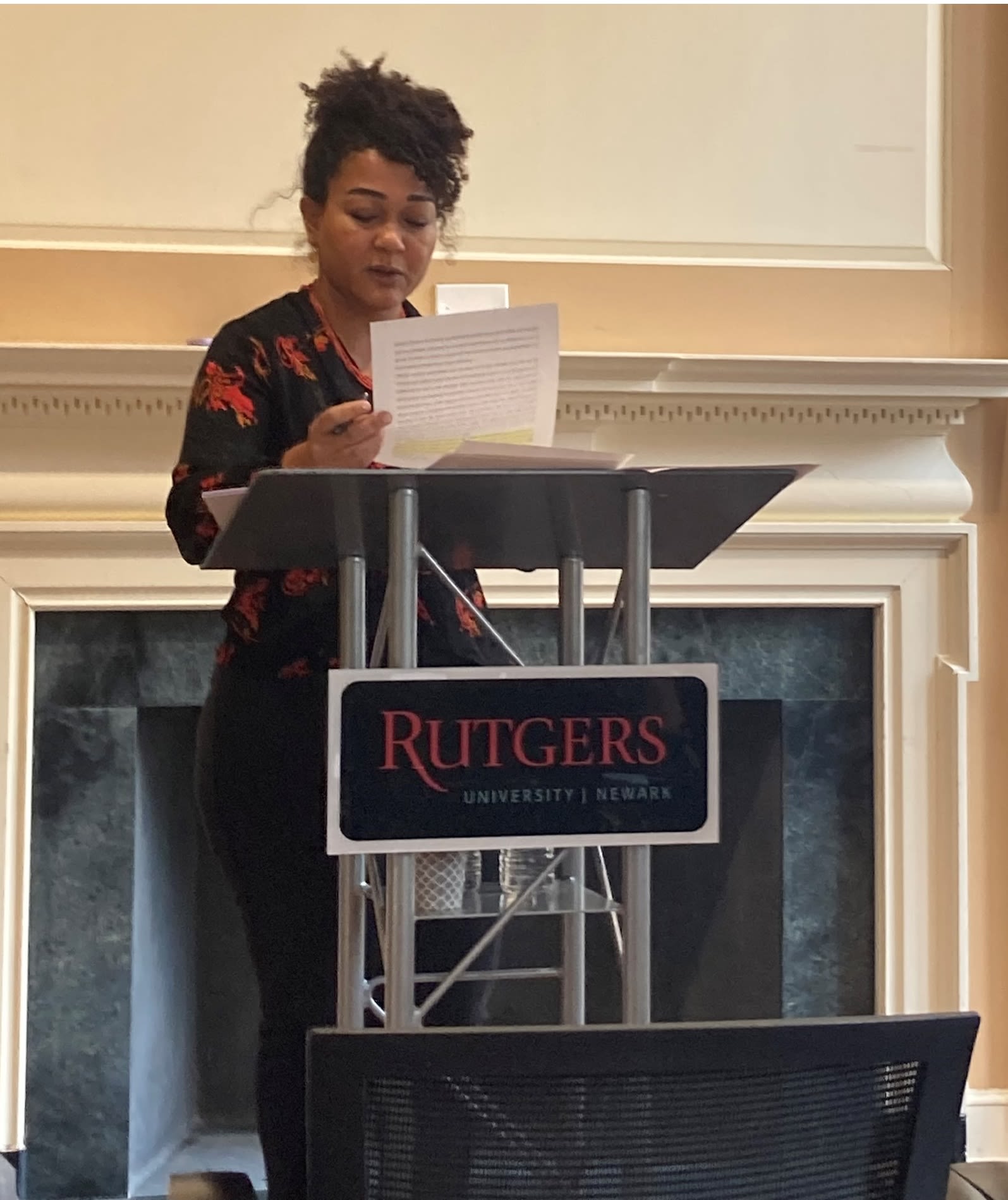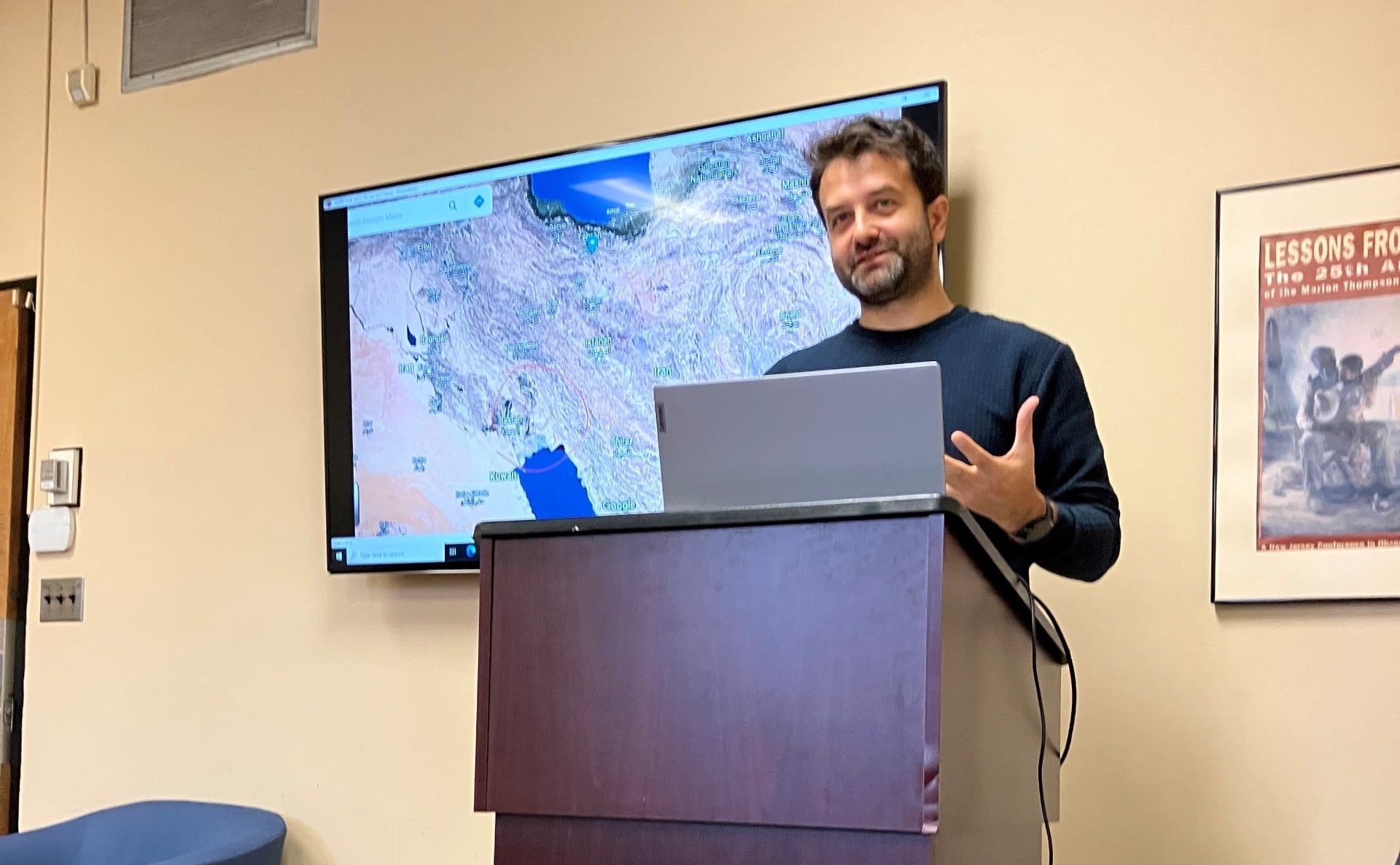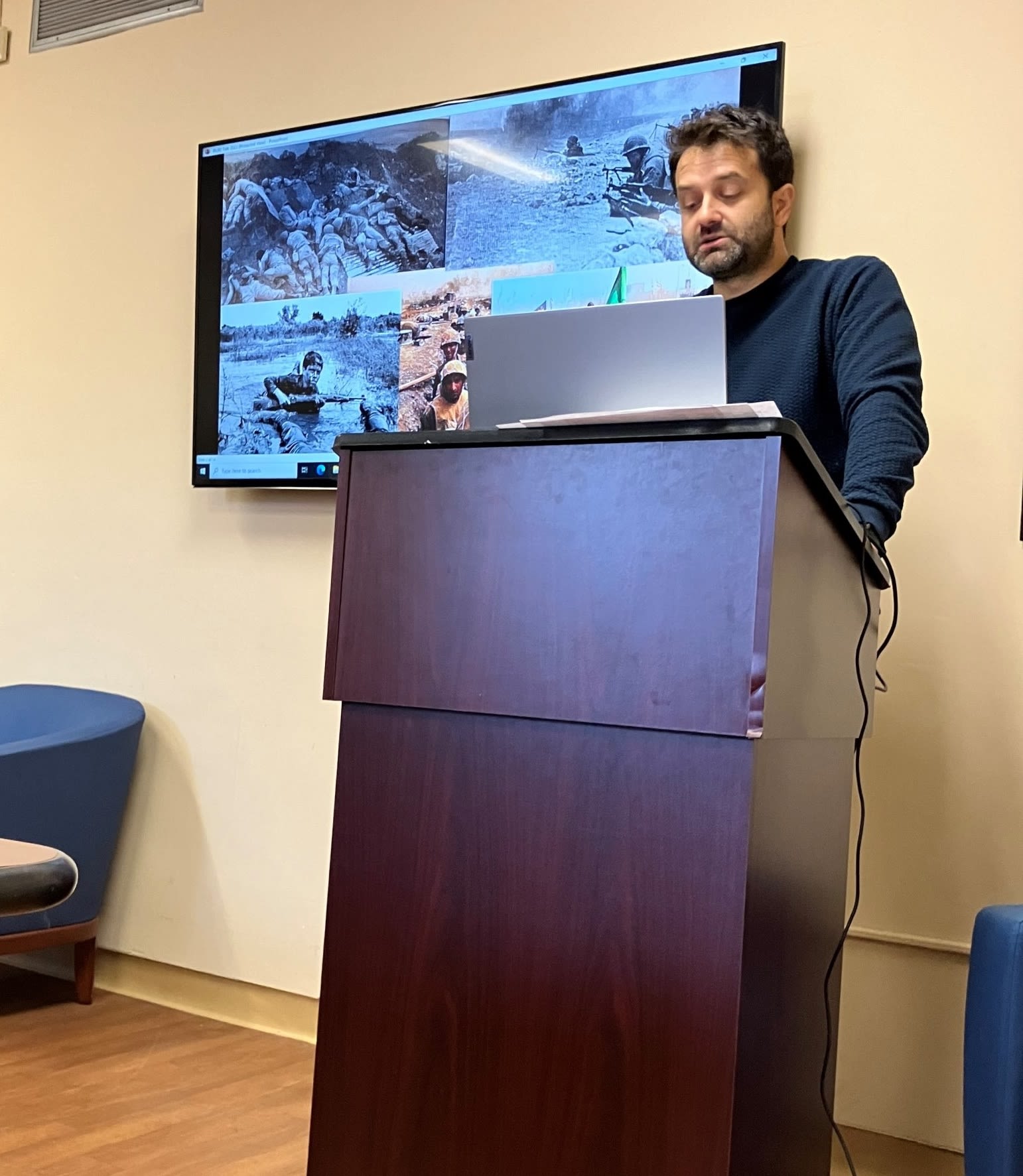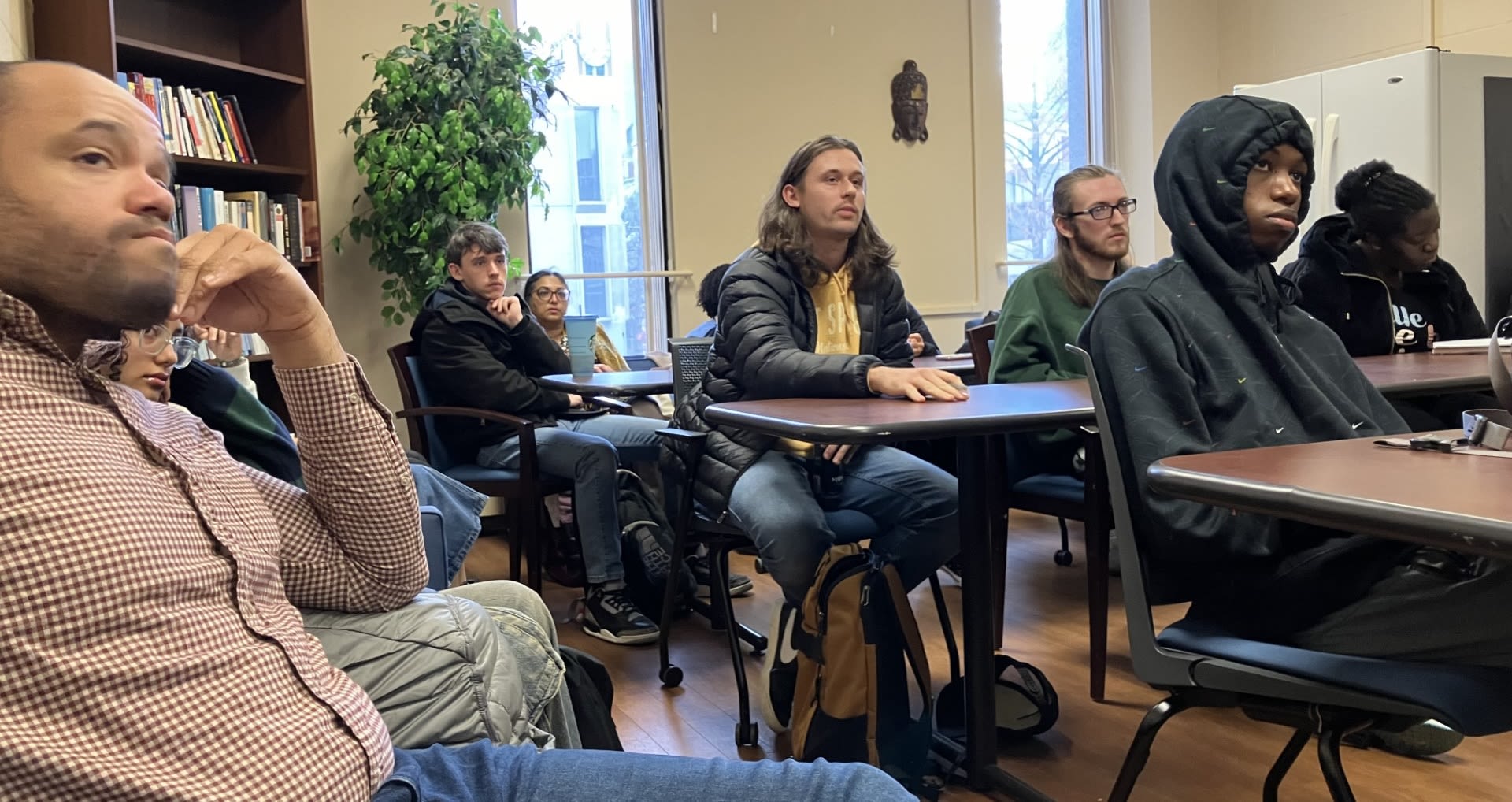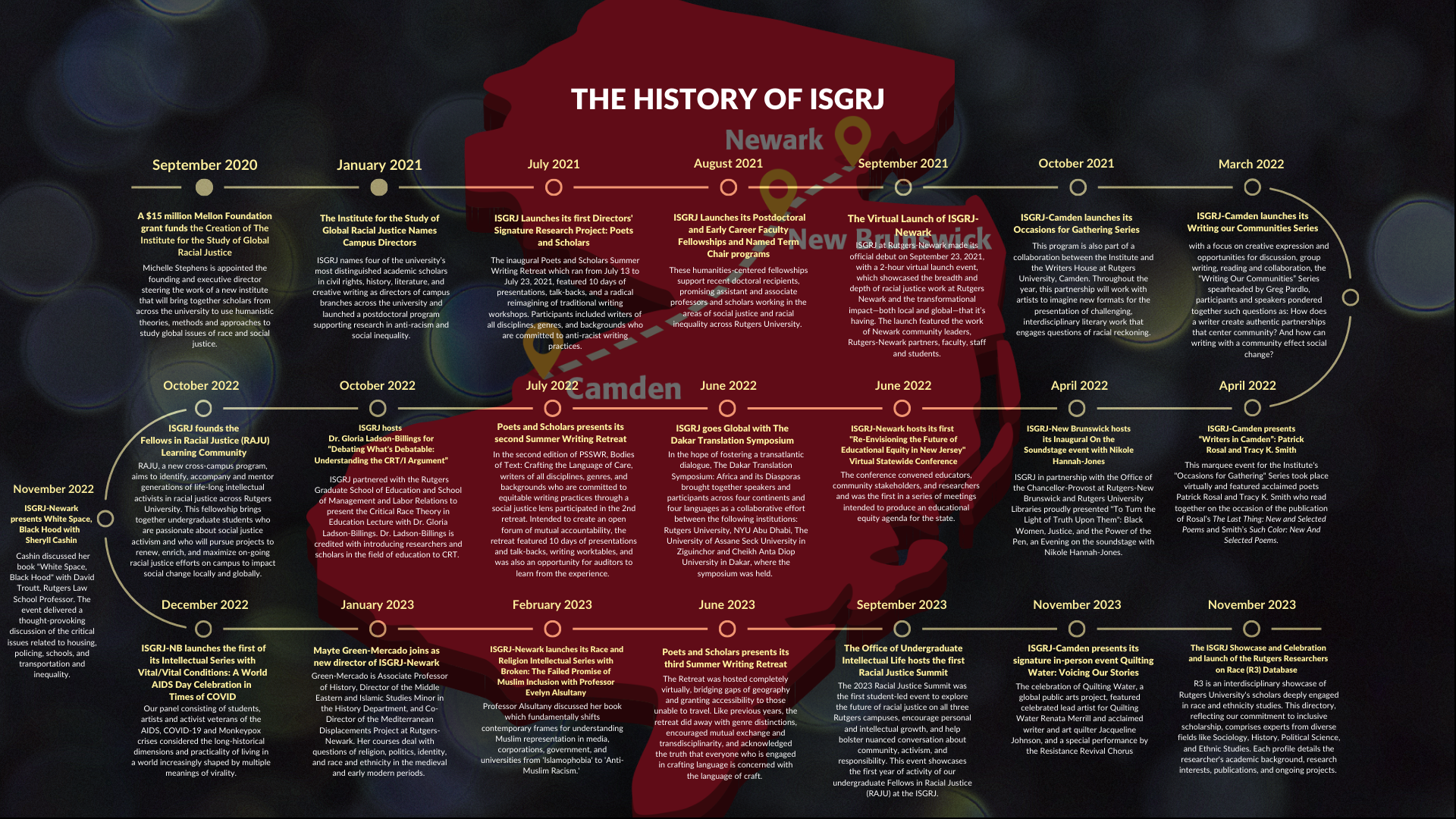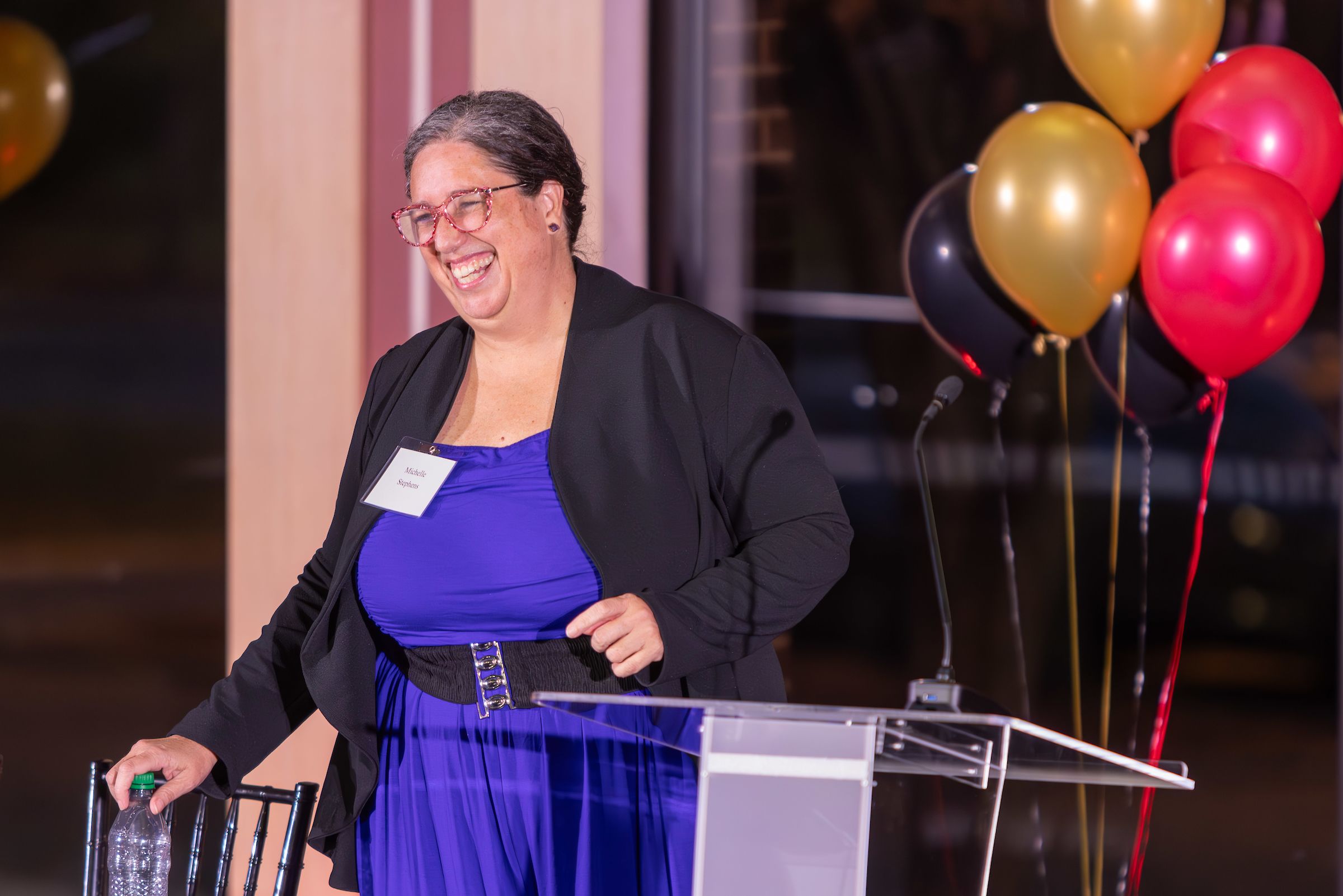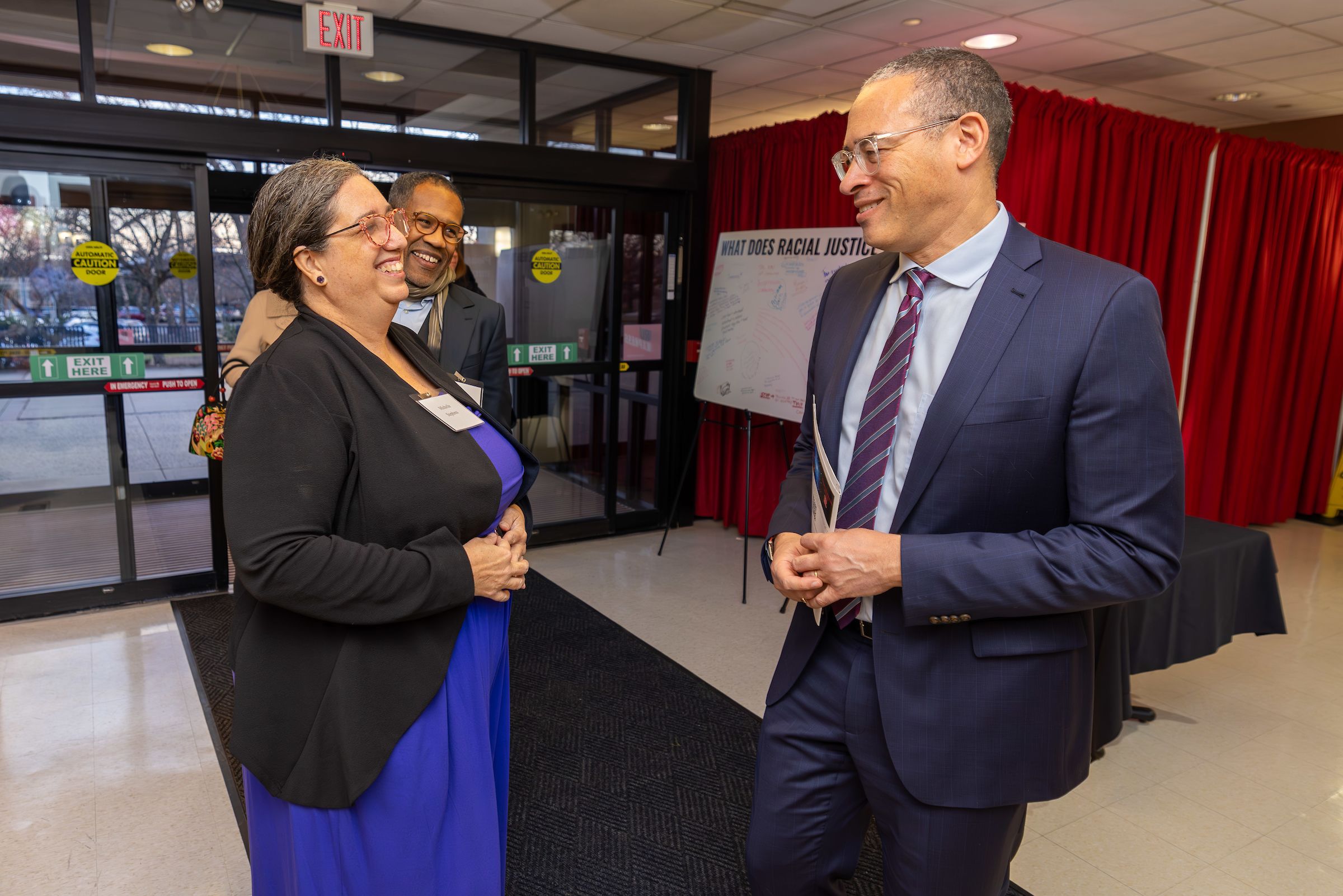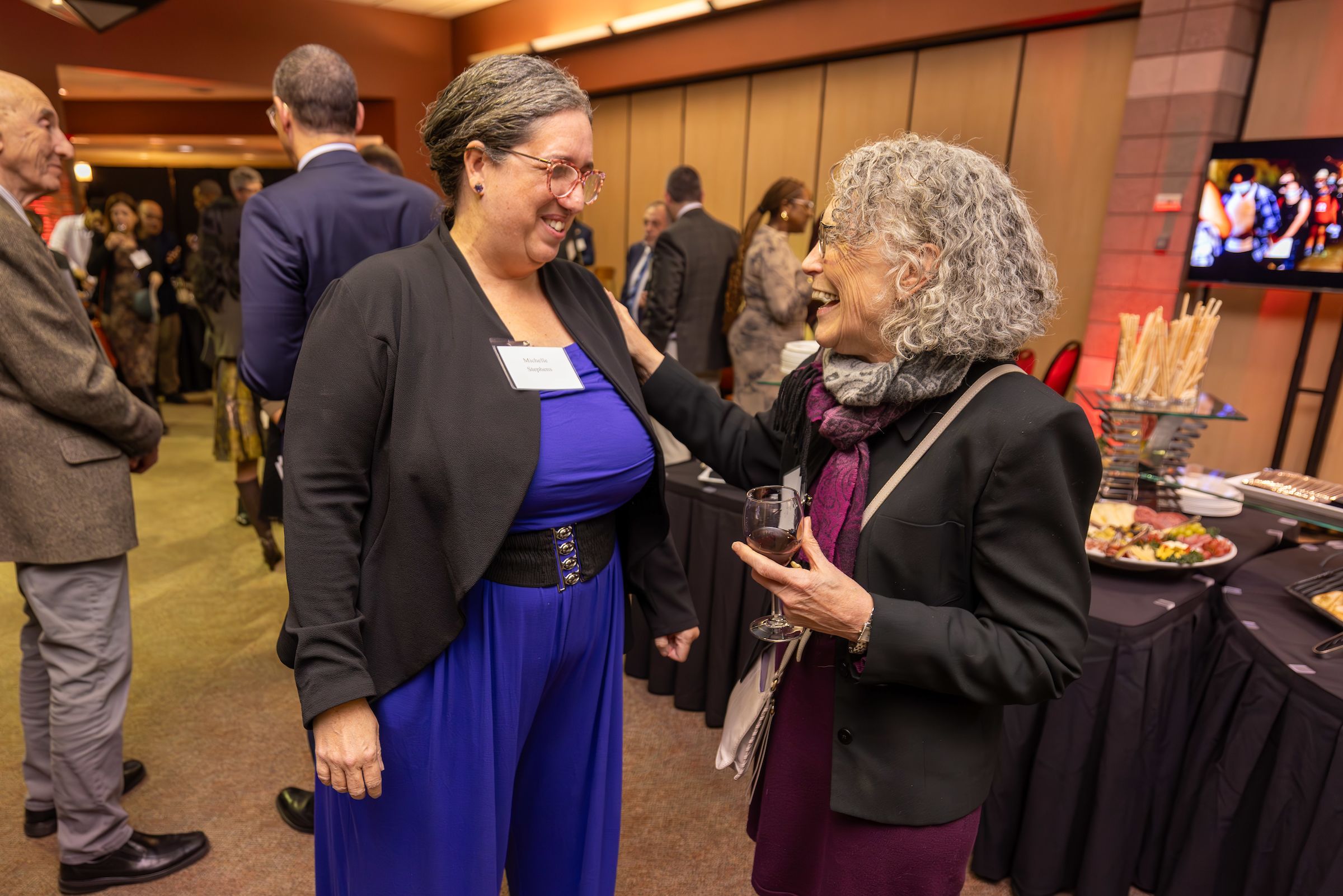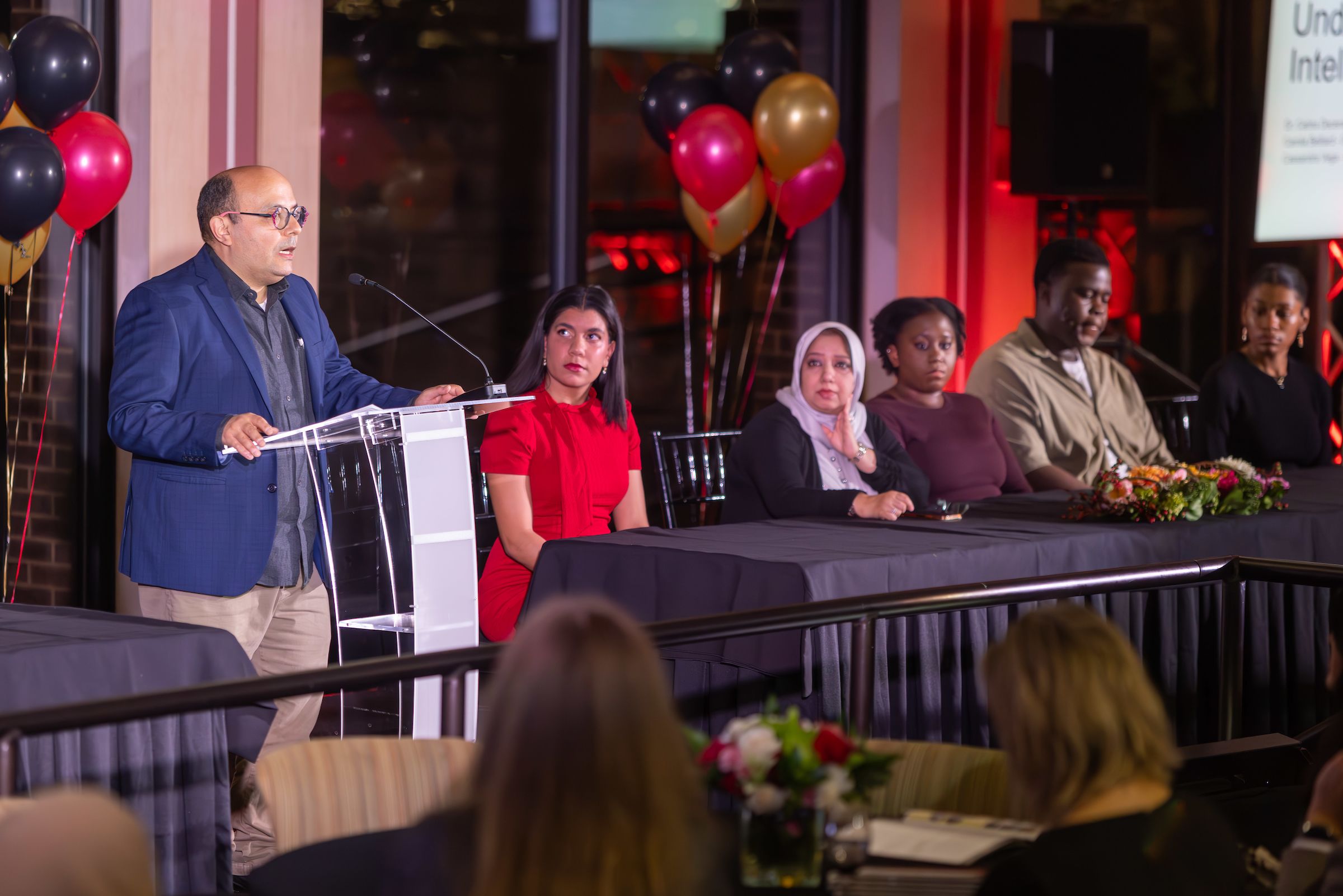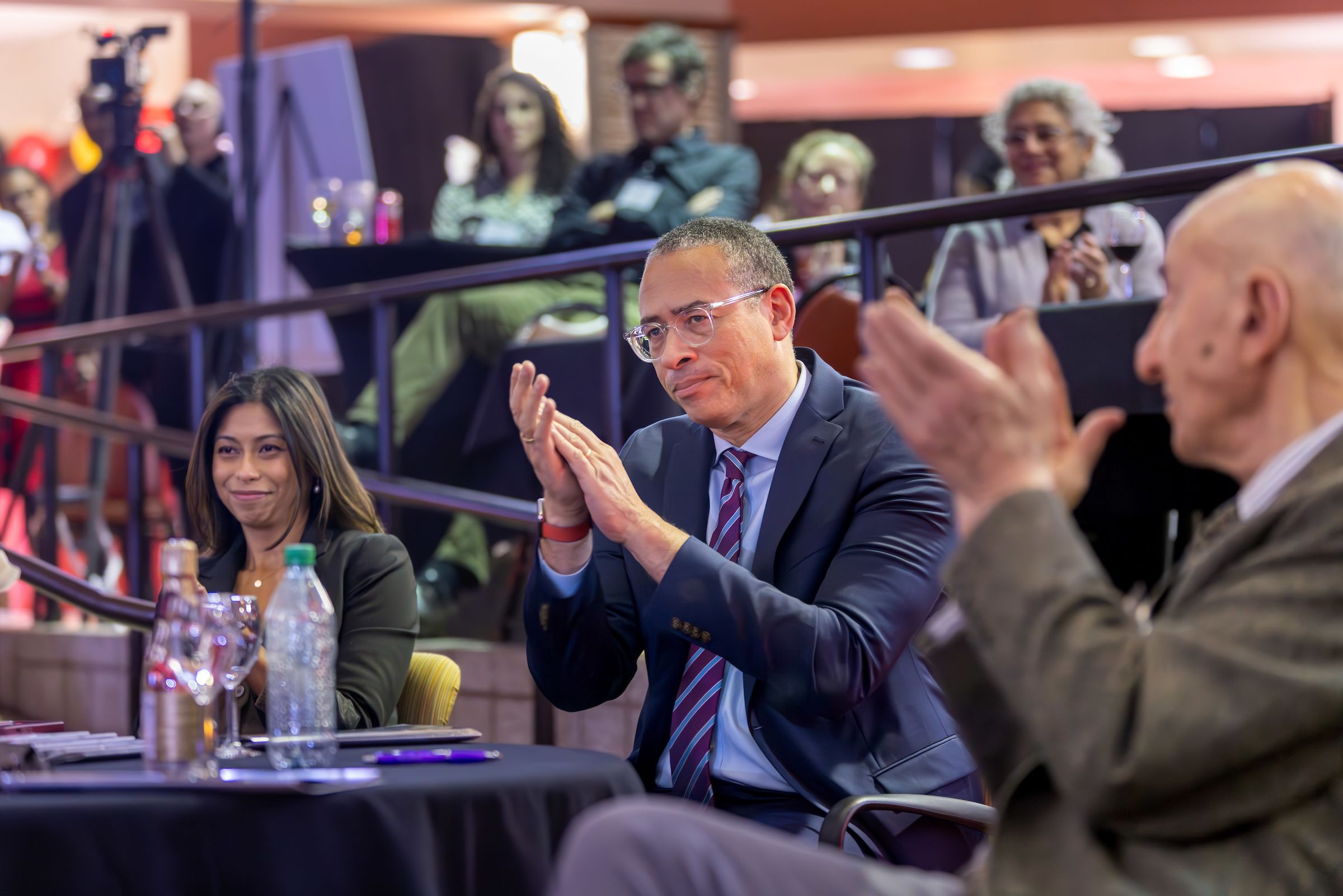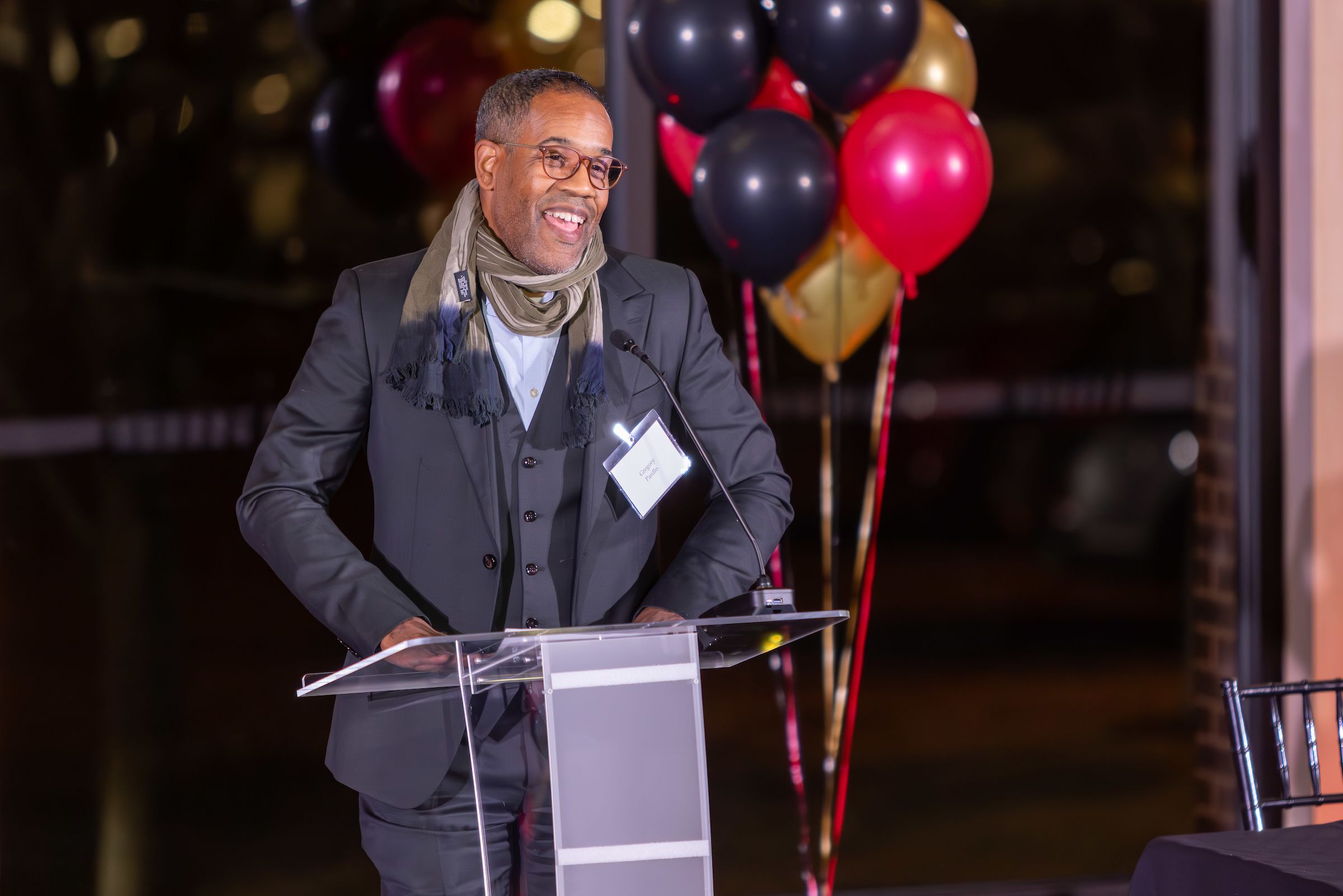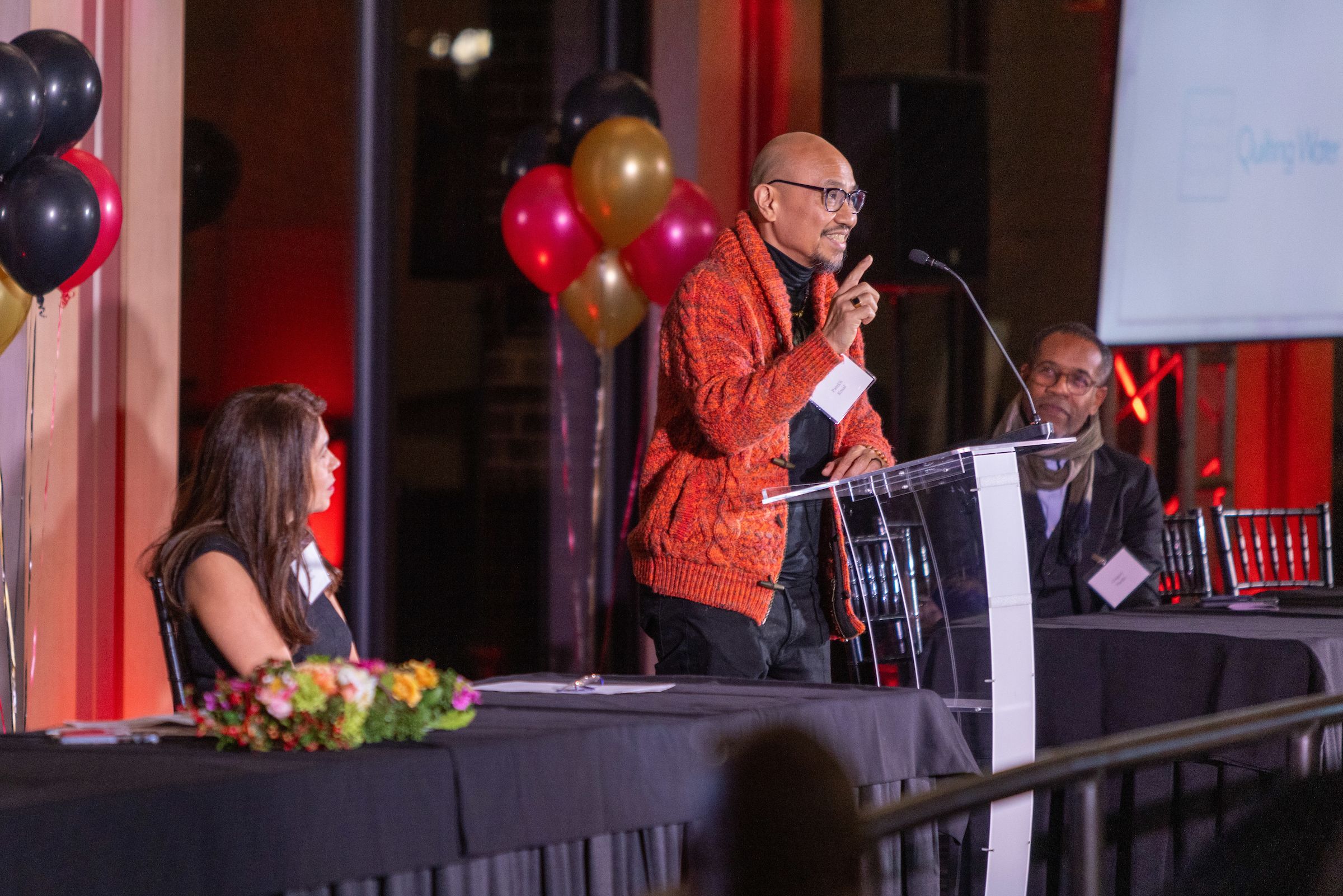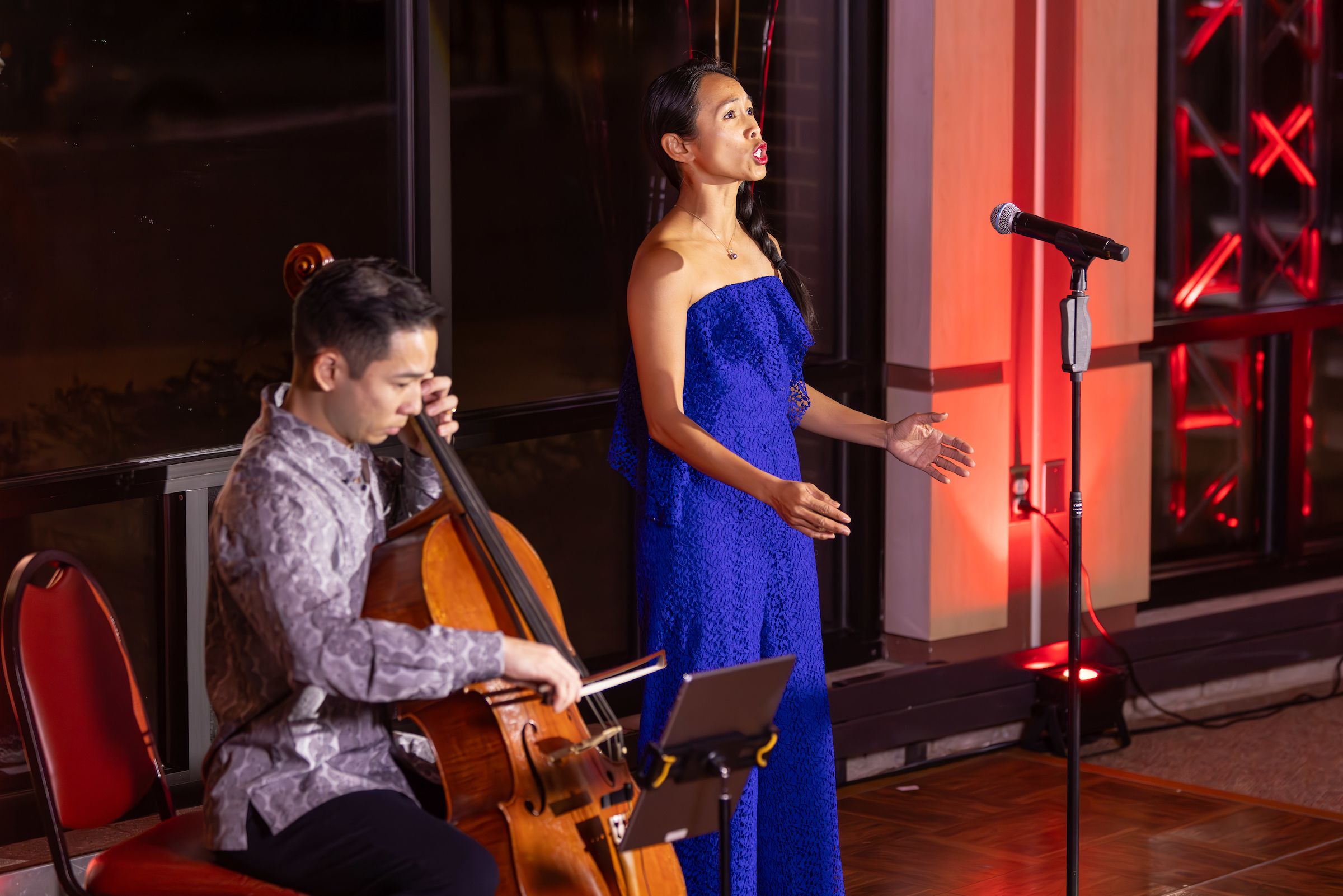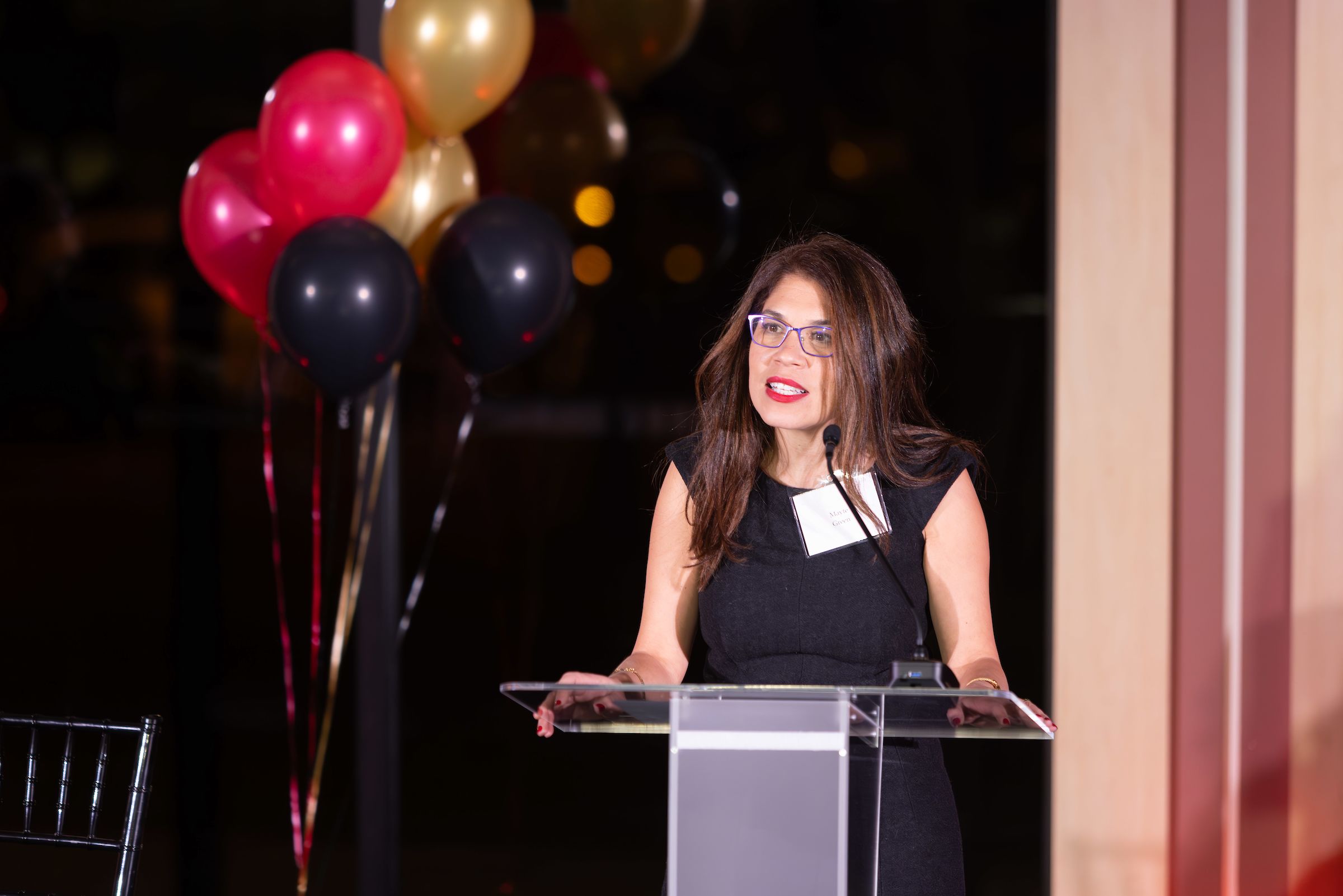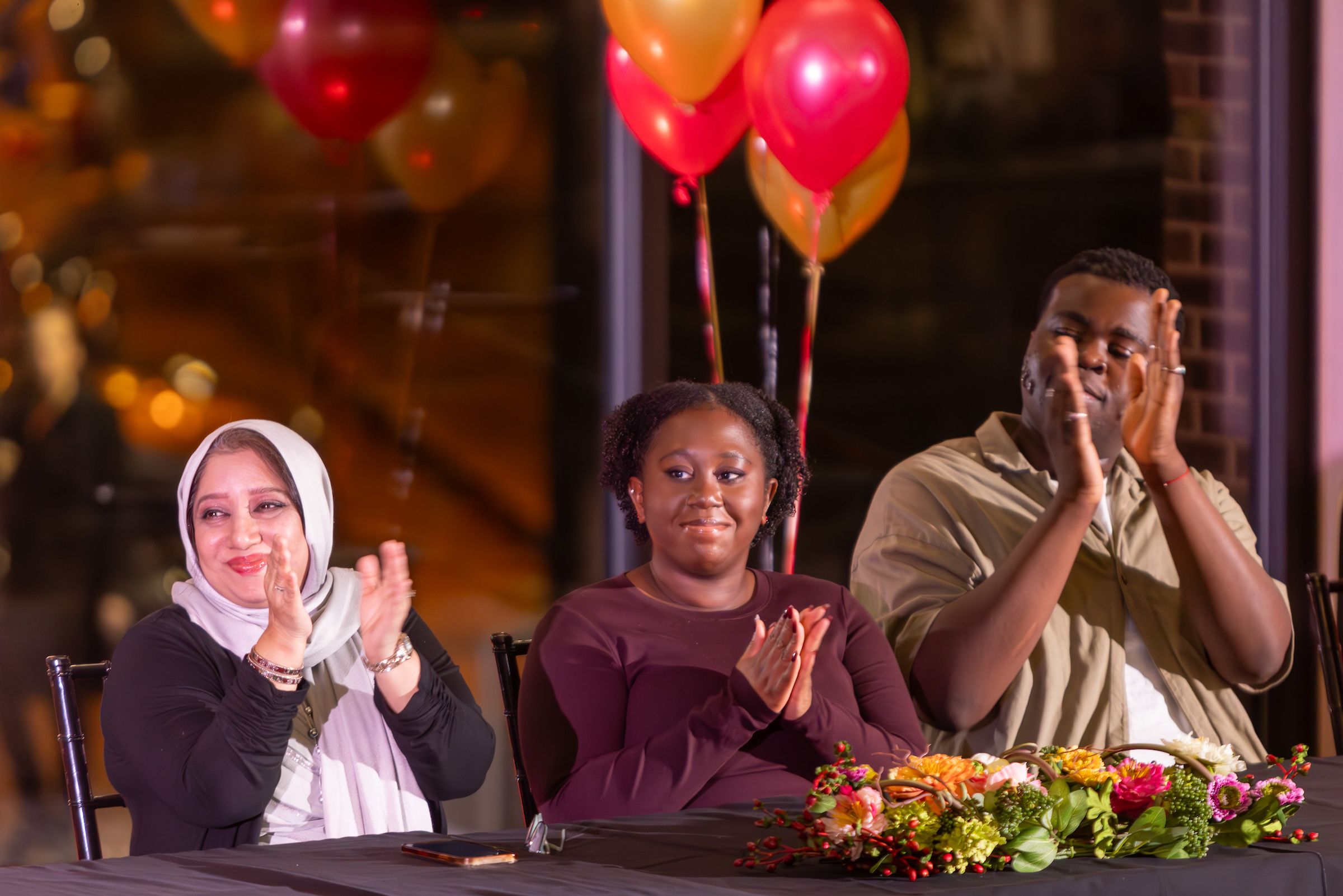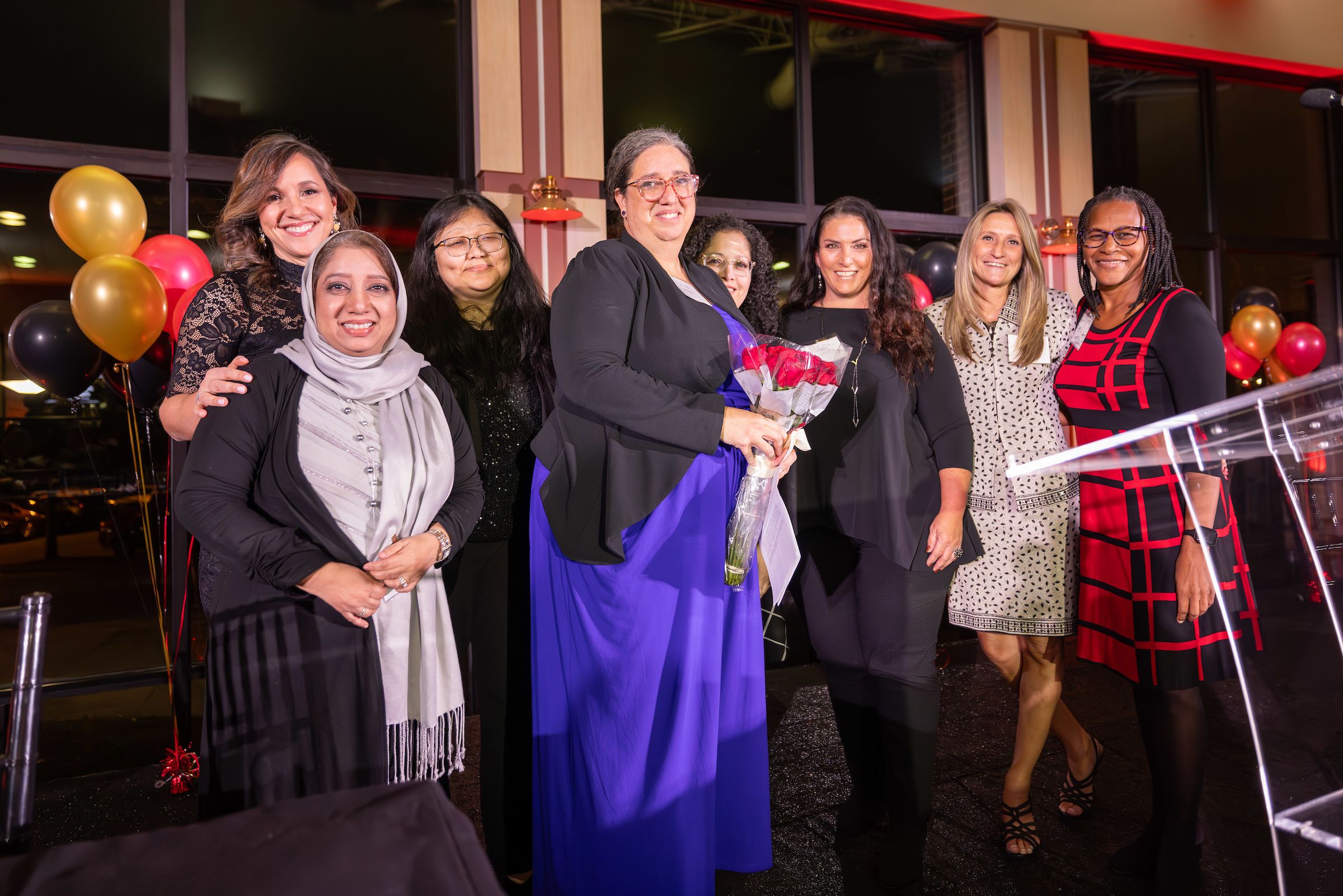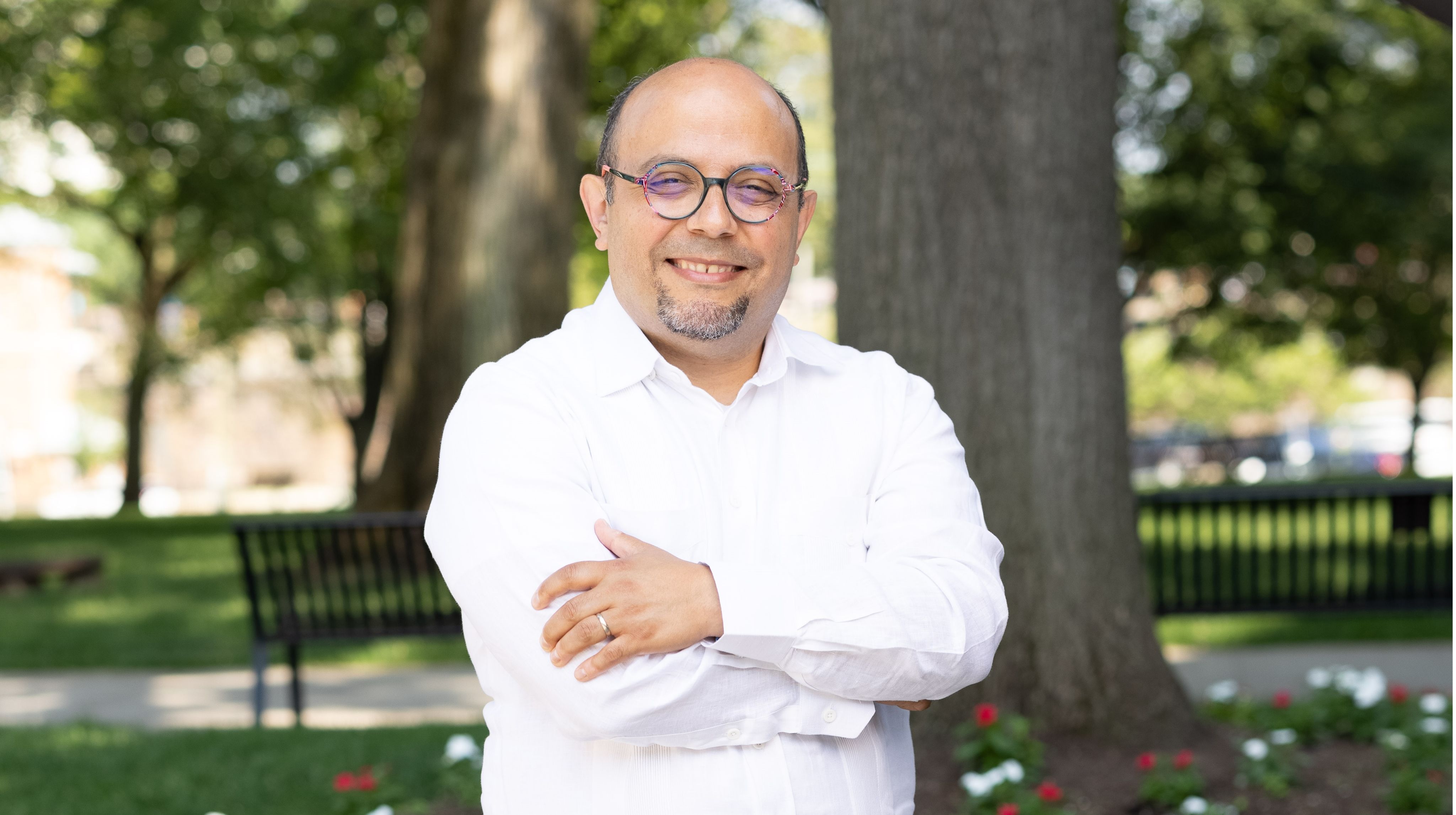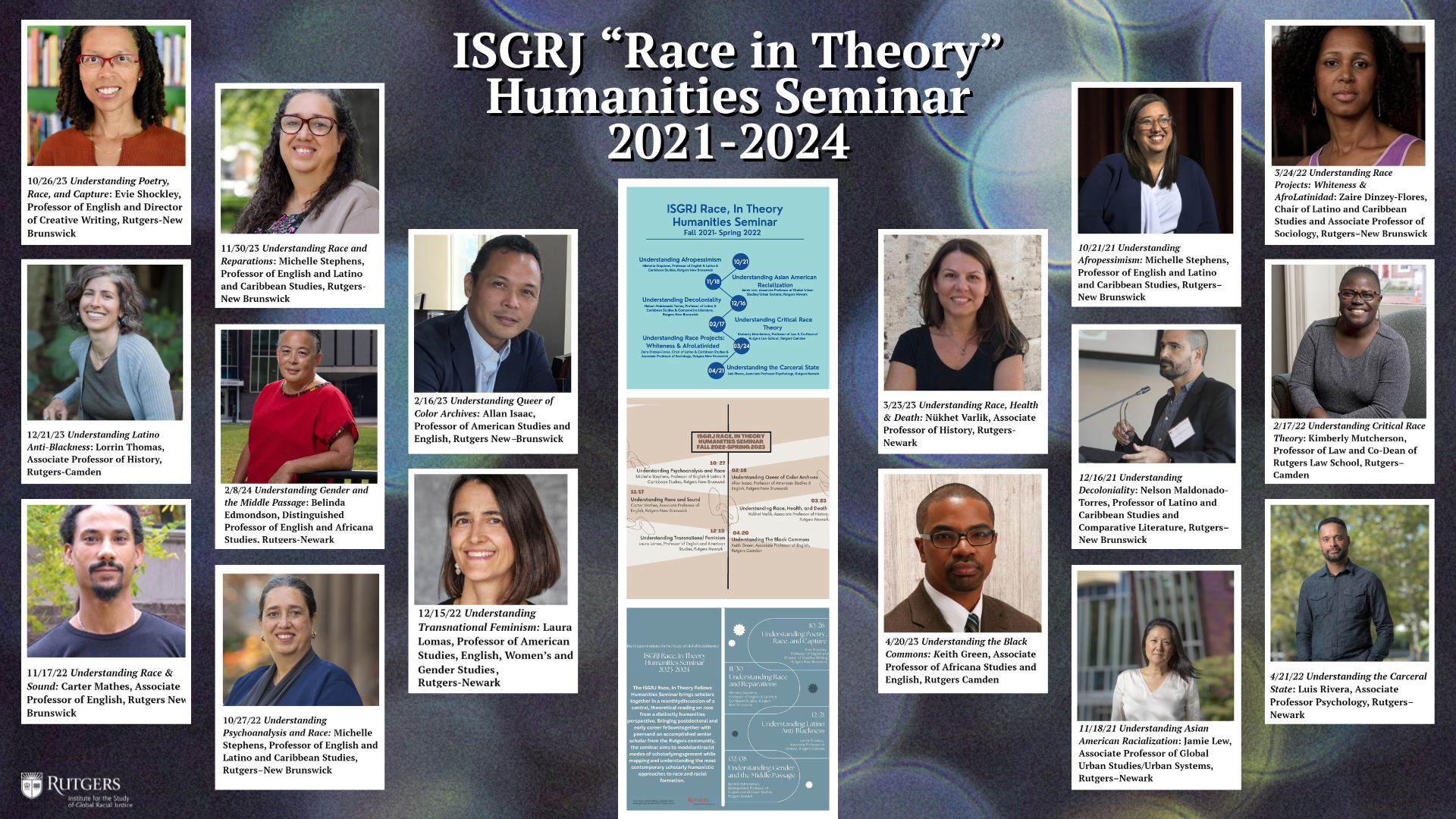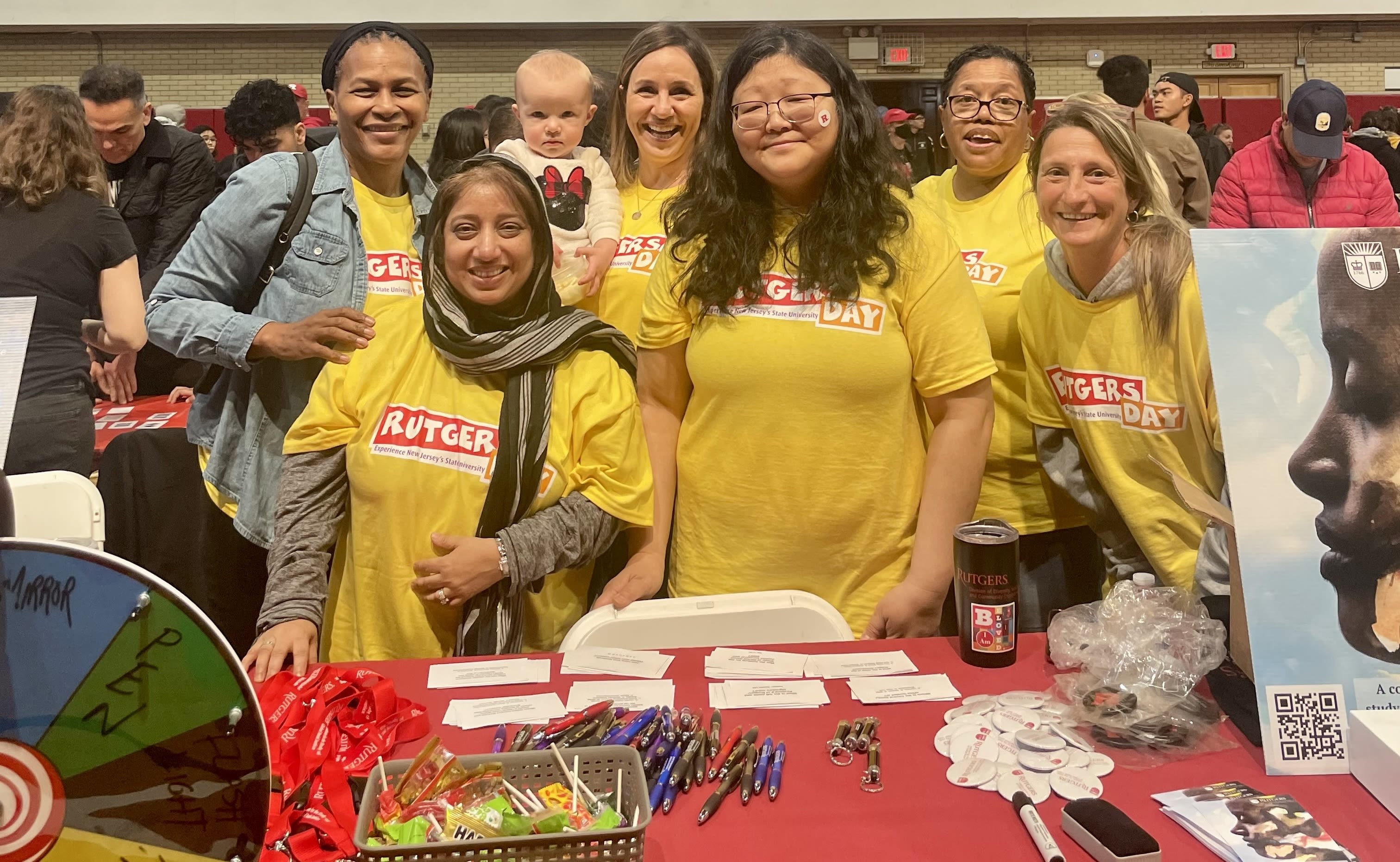Rutgers Institute for the Study of Global Racial Justice
ISGRJ: The Intellectual Corridor that brings Rutgers University Together

Dear Friends and Colleagues,
I write at the end of ISGRJ’s third year to update everyone on our past year, share our success in achieving a number of key milestones, and relate our continued efforts to demonstrate progress on important goals. I am also aware that I write at a moment in history when new visions of reparatory social and racial justice are sorely needed, ones that can gesture beyond binaristic modes of social conflict. Can we dare to imagine the impossible, in a time when, in the words of my friend, colleague and fellow Director, Patrick Rosal, we can be stewards of each others’ histories and not just our own, as we struggle with power and the challenges of being human in our contemporary worlds?
Once again I begin by thanking Rutgers’ leaders, President Holloway, Chancellor Cantor, Chancellor Conway, Chancellor Tillis and Chancellor Strom, and the generous Deans and Provosts who have worked with the members of the ISGRJ team over the course of the past three years on any number of academic initiatives and administrative challenges.
In December 2021, something very exciting happened that allowed us to think very early on about how an Institute centered around humanistic inquiry might engage in meaningful ways with the scholars and researchers at Rutgers 4th Chancellor-led unit, Rutgers Health.
The Robert Wood Johnson Foundation initiated discussions with the Institute to join a group of universities preparing a scholarly report on the racial determinants of unequal health outcomes, across the United States broadly and in New Jersey specifically.
With our humanistic focus on race as a particular draw, the Foundation awarded the Institute with a generous grant to fund a research project that would aim to answer the question, what could we learn from bringing humanists, social scientists, and biomedical researchers to the table to explore, unpack, and disrupt structural racism in service of creating equitable health outcomes? What would a just racial future require to remediate the imprints of the past in the structures of our present? This project became Black Bodies, Black Health.

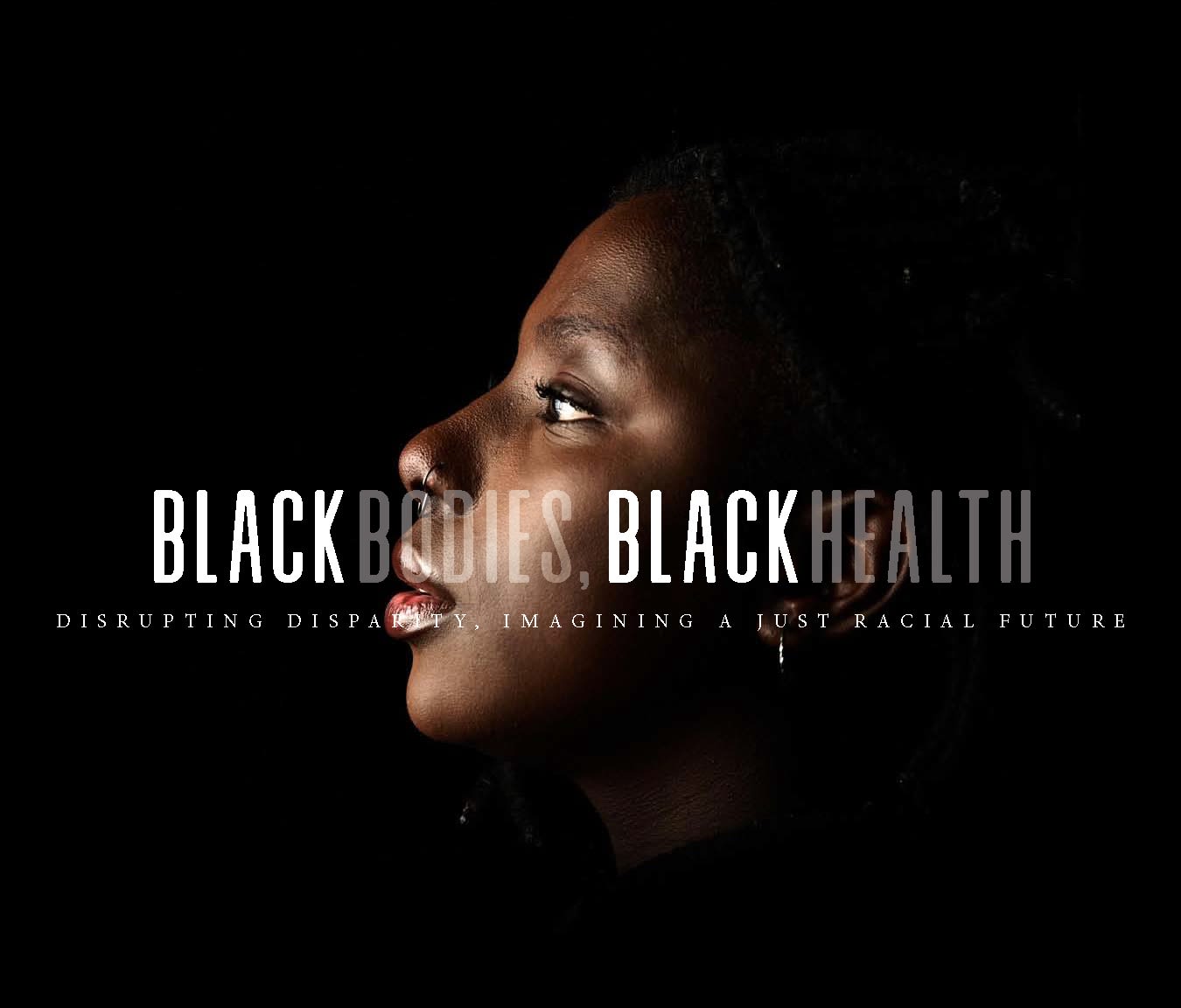
The Black Bodies, Black Health project provided seed grants in 2022 and 2023 to support a range of multi-disciplinary research projects that focused on forms of physician education; the carceral state; environmental racism; the physiological impact of racism on black bodies; and ethics and decolonial justice in global health.
The projects in the Physician Education research cluster considered the relationship between patient and practitioner. Researchers in fields as diverse as applied psychology, history, and medicine examined how socioeconomic factors, such as race, ethnicity, age, sex, and gender create compounding effects that impact the decisions patients make about their health; and how technical language barriers affect not only how Black patients understand the medical process, but also, how alienated they feel from medical personnel, creating a divide between patient and physician.
The projects in the Carceral State research cluster undertook a critical examination of the criminal justice system as a total institution, finding that it has a profound impact on the health and wellbeing of people who are incarcerated as well as their families and that the effects persist after release from institutionalization.
In addressing the stigmas and implicit bias within law enforcement, researchers connected both pre-determinants and post-effects of health from incarceration, and unearthed the longstanding effects of the criminal legal system well beyond the prison cell.
All spaces are not created equal, as studies have shown that standards of living vary by zip code, and where we live impacts how we live.
In the projects in the Environmental Racism cluster, researchers from the environmental sciences, nursing and history studied the impact of environmental racism on inequitable health outcomes and explored how the environment, including considerations of climate as well as other factors of space, impact health and wellbeing.
Similarly, researchers identified the inextricable link between community health and geographical region and considered how individual stories can help to explicate the structural roots of racial disparities and health outcomes.
In some instances, structural racism is painted as a problem that is only seen, not felt. The projects in the Black Bodies research cluster delved into the dynamics of performance and health and spoke to the physiological impact of structural health disparities on Black Bodies, clearly outlining the processes by which structural racism produces tangible harm in Black communities.
Through these seed grants, along with a number of workshops, conferences and both scholarly and public writing, Black Bodies, Black Health incentivized humanists, social scientists, and biomedical researchers to engage in interdisciplinary work to explore and unpack structural racism in service of creating equitable health outcomes. BBBH represents a first example of what this Institute can do when it draws from Rutgers’ wide-ranging and diverse research strengths to tackle one of the central ways racism shows up as a systemic issue in our present.
The work of Black Bodies, Black Health continues in the Health Humanities, Communication, and Informatics (HHCI) Working Group, originating from the Rutgers School of Communication and Information (SC&I).
Professor Charles Senteio
Professor Charles Senteio
HHCI is led by Charles Senteio, Associate Professor of Library and Information Science, whose first project will be to spend 2023-2024 exploring, researching and doing outreach for a "Data Equity Initiative" with the goal the creation of an interdisciplinary space to tackle health equity topics across Rutgers-New Brunswick.

ISGRJ also contributes significantly to the hiring and systematic mentoring of emerging scholars who study race. Three cohorts of junior scholars and writers now find at the ISGRJ robust mentorship, targeted research, writing and professional development programs, a vibrant peer intellectual community, and further engagement with humanities methodologies articulated within an intentionally interdisciplinary context.

In partnership with the Faculty Diversity Collaborative (FDC -- an aligned Presidential Initiative), our Mentorship Mosaic Program, Conversation & Connections Series, Writing Worktable, Race, In Theory Fellows Humanities Seminar, and Understanding Race Speaker series, has supported collectively across the Chancellor-led units 16 postdoctoral fellows, 7 of whom have gone on to tenure-track positions including 3 joining the Rutgers community as Presidential Postdocs and future faculty;
40 early career faculty fellows, from fields ranging widely across the arts & sciences—including, the arts, media studies, history, Africana, Jewish, Native American, and Latino and Caribbean studies, literary studies, the languages and linguistics, sociology and political science, anthropology, geography, psychology, childhood studies, education, public administration—and from schools far-ranging across the Rutgers system—including, the School of Criminal Justice in Newark, Mason Gross School of the Arts, the Graduate School of Education, the School of Management & Labor Relations, the Edward J. Bloustein School of Planning and Public Policy, Rutgers Business School, and the School of Social Work in New Brunswick, and the School of Nursing in Camden.
In just two years, our support has contributed to the publication by these young scholars of at least (9) opinion pieces and interviews, (20) peer-reviewed articles, (4) scholarly books, (17) awards and grants, and (3) compositions and performances.
Finally, our 5 Named Term Chairs, the Mellon Assistant and Associate Professors in Global Racial Justice, represent a diverse group of scholars whose funding from Mellon allows them to launch more ambitious collaborative research programs and innovative undergraduate pedagogical initiatives.
ISGRJ Named Term Chairs (L to R): Dr. Christina Knight, Dr. Melissa Valle, Dr. Melanie Hill, Dr. Vetri Nathan, Dr. J.T. Roane
ISGRJ Named Term Chairs (L to R): Dr. Christina Knight, Dr. Melissa Valle, Dr. Melanie Hill, Dr. Vetri Nathan, Dr. J.T. Roane
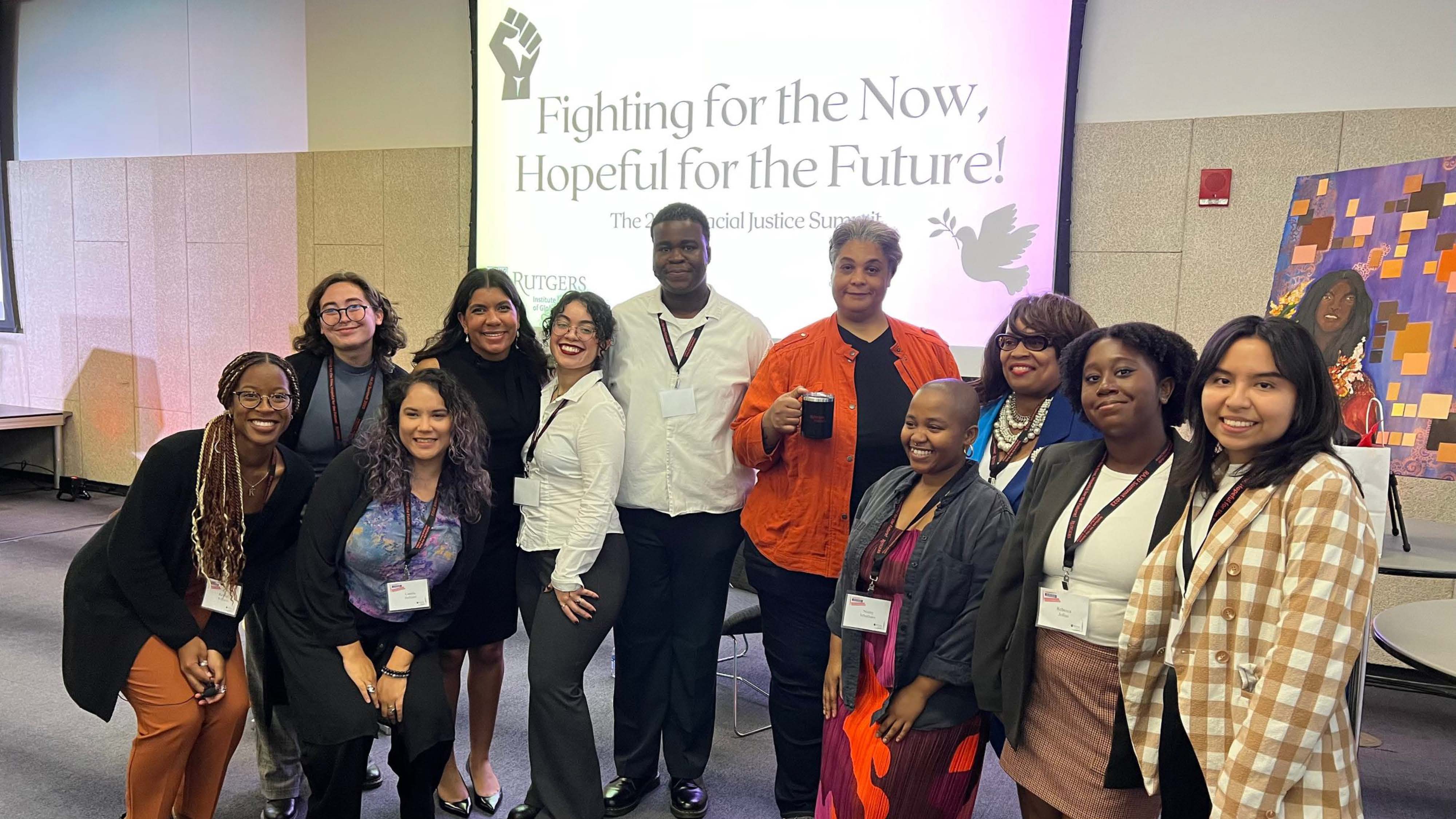
The 2023 Racial Justice Summit
One of the Institute’s most important goals is to showcase Rutgers’ teaching talent in areas related to the progress of global racial justice, making us one of the go-to places for faculty and students training in this area across multiple fields.
In the 2022-2023 school year we launched our first experiment along these lines, the Racial Justice Learning Community.
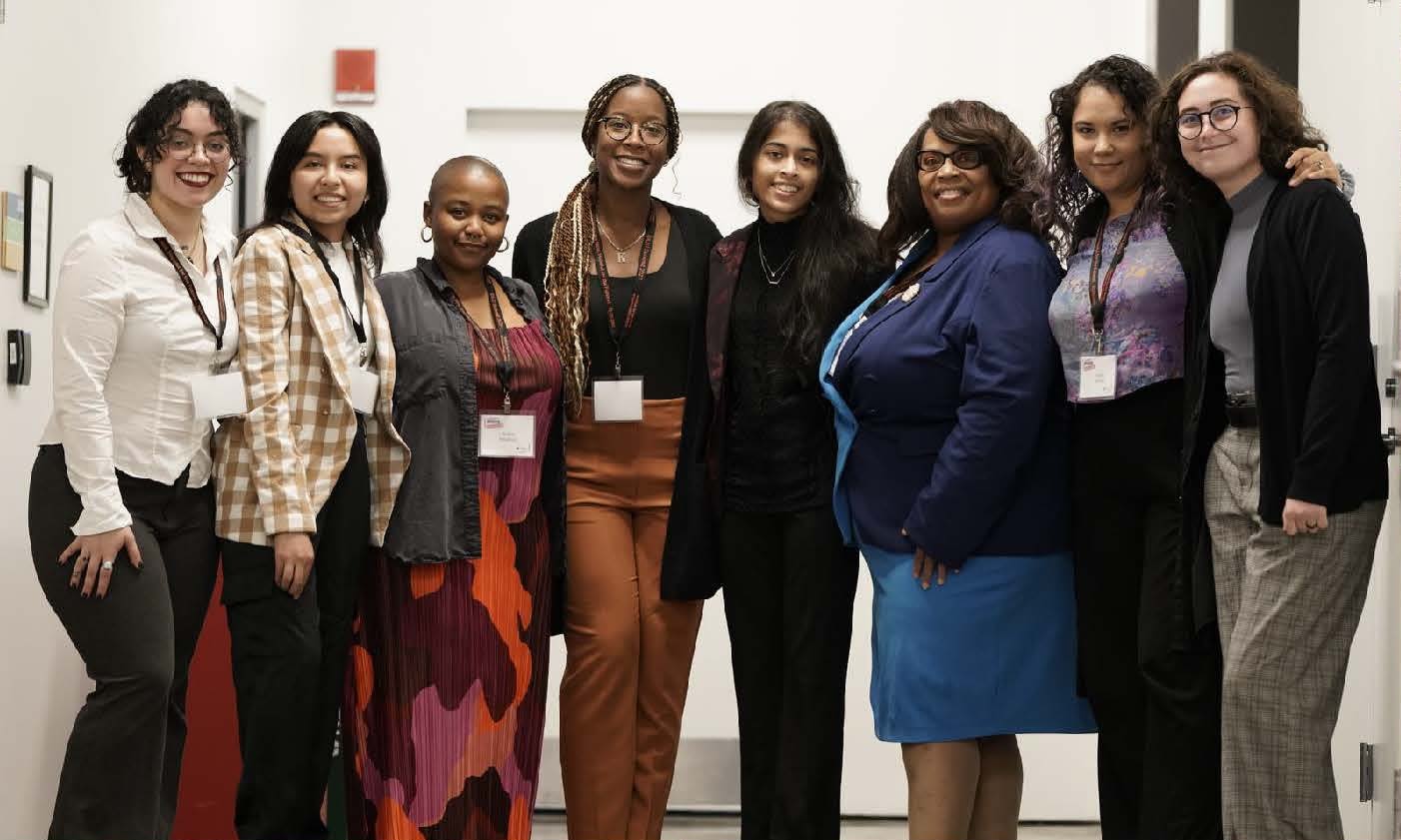
The Fellows in Racial Justice (RAJU) at the ISGRJ is a new cross-campus, intellectual learning community which aims to identify, accompany, and mentor generations of life-long undergraduate intellectual activists in racial justice. These undergraduates, throughout our Newark, New Brunswick, and Camden campuses, are selected through a rigorous screening process. They meet weekly via zoom and in 3-4 in person meetings on each campus, they get to know one another, discuss a selection of readings focused on racial justice topics, and develop a social action project as the culmination of the year of their work together.
Sponsored by the Institute’s Office of Undergraduate Intellectual Life, the brainchild of New Brunswick Professor Carlos Decena, this office serves the Rutgers system as a whole and is guided by a Student Advisory Board (SAB), a group of student leaders also identified and recruited to represent all Rutgers campuses.
They work to mentor the RAJU fellows and develop the all student-led Racial Justice Summit, held in September of each school year, as a platform for the Racial Justice Fellows to showcase their social action projects.
Designed and led by a team that includes Carlos, Marta Esquilin, Associate Dean of the Honors Living Learning Community at Rutgers University-Newark, Camila Maria Belliard, OUIL Graduate Coordinator and Cassandra Vega, OUIL Undergraduate Coordinator, the RAJU Learning Community is proving to be a very useful model to think with as we explore the possibility of designing a new program, ISGRJ Teaching Labs, where faculty, fellows, doctoral students and undergraduates, can engage in collaborative humanistic research activity.
Dr. Carlos Decena
Dr. Carlos Decena
Cassandra Vega, OUIL Undergraduate Coordinator
Cassandra Vega, OUIL Undergraduate Coordinator
Mamadee Keita, RAJU Student Advisory Board Chair
Mamadee Keita, RAJU Student Advisory Board Chair
Cassandra Vega and Camila Maria Belliard
Cassandra Vega and Camila Maria Belliard
The 2023 Racial Justice Summit, held on Friday, September 22, was the first tri-campus student-led event to explore the future of racial justice on all three Rutgers campuses, encourage personal and intellectual growth, and help bolster nuanced conversation about community, activism, and responsibility. This historic event showcased the first year of activity of our undergraduate Fellows in Racial Justice (RAJU) at the ISGRJ.
The event was created to be a space for students, faculty, administrators, and the general public to listen, learn, and be inspired. Our theme, Fighting for the Now, Hopeful for the Future!, embodied the desire of young activists to tackle the most pressing racial justice issues, while daring to imagine a better world for us, and for future generations.
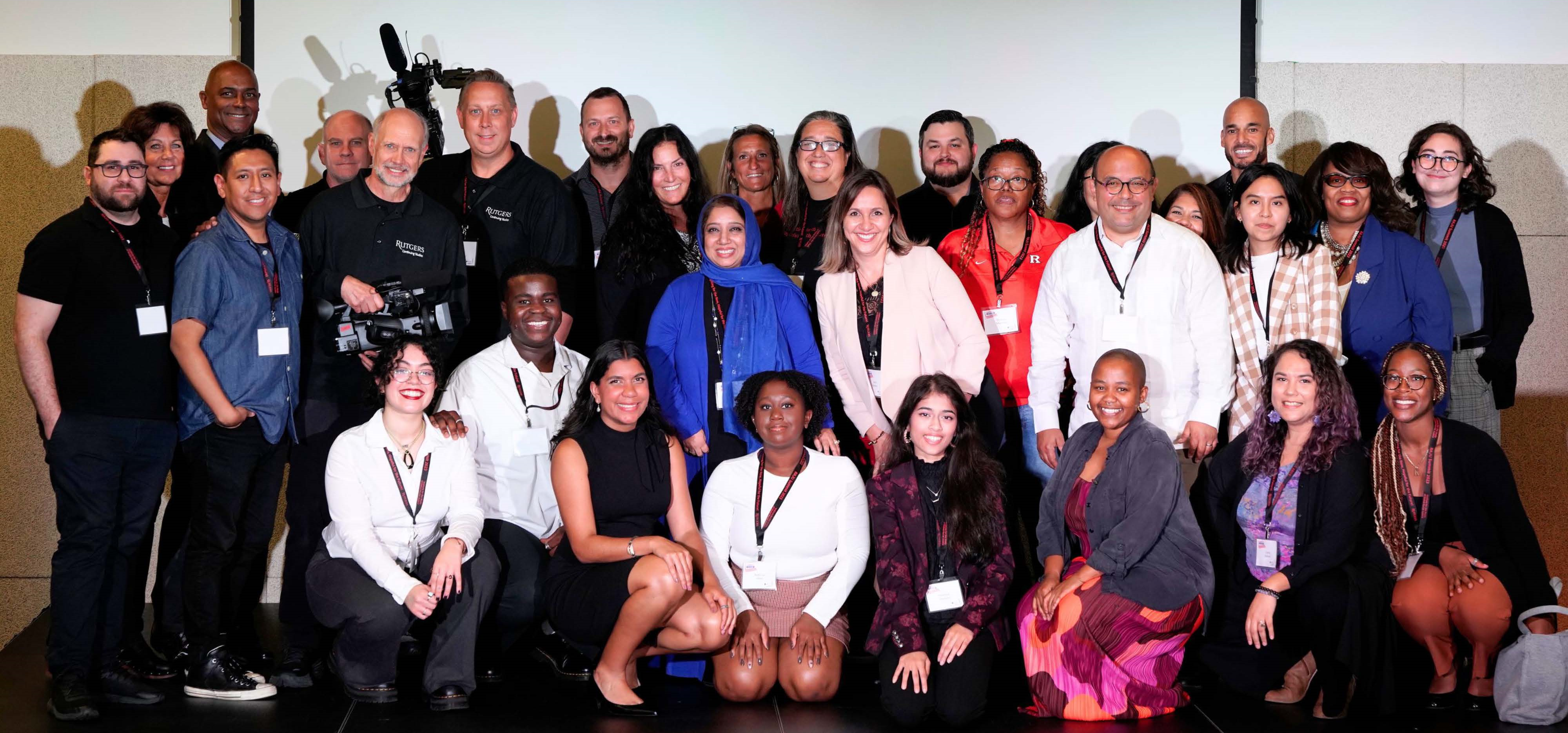
The Inaugural Racial Justice Fellows
The Inaugural Racial Justice Fellows
Intellectual Series
In academic year 2022-2023, given the amount of great programming across the campuses, the Campus Faculty Directors decided to organize “intellectual series” on topics where they felt there was a gap.
Viral/Vital Conditions: Living in a World Increasingly Shaped by Multiple Meanings of Virality
At ISGRJ-NB, Interim Director Carlos Decena hosted events under the banner of “Viral/ Vital Conditions,” a series launched on Dec 1, 2022, World AIDS Day, with a panel of students, artists and activist veterans of the AIDS, COVID-19 and Monkeypox crises who considered the long-historical dimensions and practicality of living in a world increasingly shaped by multiple meanings of virality.
The series also hosted Steven Thrasher, acclaimed author, professor and journalist who presented on his book The Viral Underclass, and Bishnupriya Ghosh, who, in her book The Virus Touch theorized “epidemic media” to show how epidemics are mediated in images, numbers, and movements through the processes of reading test results and tracking infection and mortality rates.
The series culminated in the Revisiting Corpus: A World AIDS Day Celebration special webinar on December 4, which marked the 20th anniversary of Corpus, an HIV prevention publication supported by AIDS Project, Los Angeles.
Race and Religion: Intersections of Race, Religion and Immigration
In February 2023, Mayte Green-Mercado, ISGRK-NWK Director, launched the series “Race and Religion,” the first of its kind at ISGRJ-Newark investigating the intersection of race, religion, and immigration. The series spotlighted leading experts on the racialization of Muslims in the United States by exploring issues of diversity, discrimination, inclusion and exclusion, and religious freedom.
The first event featured Professor Evelyn Alsultany, author of Broken: The Failed Promise of Muslim Inclusion, in conversation with Professor Deepa Kumar, award-winning scholar, activist and Professor of Journalism and Media Studies at Rutgers University—New Brunswick, and continued with a second signature book talk featuring Sahar Aziz, Rutgers Professor of Law, Chancellor's Social Justice Scholar, founding Director of the Center for the Security, Race, and Rights and acclaimed author of The Racial Muslim: When Racism Quashes Religious Freedom, in conversation with Deborah Amos, Ferris Professor of Journalism in Residence at Princeton University and Award-Winning International Correspondent for National Public Radio.
Our Stories Matter: Gathering to Share Reproductive Joys and Struggles
Throughout the academic year, ISGRJ-CMD Co-Director Pat Rosal hosted “Our Stories Matter: Gatherings to Share Reproductive Joys and Struggles,” a series of events and writing workshops open to writers and non-writers alike and celebrating So We Can Know, a literary anthology addressing a range of reproductive experiences—from pregnancy and childbirth to abortion and loss.
The series invited women and birthing people to four writing workshops, open to writers and non-writers alike and led by So We Can Know contributors.
The workshops featured award-winning authors, writers and experienced facilitators Mahogany L. Browne, Seema Reza, Vanessa Mártir and Dr. Maria Hamilton Abegunde.
With these gatherings, the So We Can Know Series sparked deep listening, narrative power, and the empathy necessary for a more just future.
POETS AND SCHOLARS SUMMER WRITING RETREAT
The third annual Poets and Scholars Summer Writing Retreat took place this year from July 11-21. The Retreat was hosted completely virtually, bridging gaps of geography and granting accessibility to those unable to travel.
By maintaining a community of care, we sought to affirm all kinds of creators and provide a space for the mutual support of individual projects and practices. Visual artists, performers, musicians, storytellers, theorists, dancers, filmmakers, photographers, playwrights, and non-traditional students were especially encouraged to apply this year.
Like previous years, this workshop did away with genre distinctions, encouraging mutual exchange and transdisciplinarity, and acknowledging the truth that everyone who is engaged in crafting language is concerned with the language of craft. A model designed to be inclusive, we once again convened creators at all stages of artistic development together.
This year's retreat featured the following esteemed speakers:
- Alexis Pauline Gumbs (Keynote Speaker)
- Vievee Francis (Retreat Faculty)
- Cynthia Dewi Oka (Retreat Faculty)
- Bettina Judd
- Xan Forest Phillips
- Dr. Ibrahima Seck
- Kirwyn Sutherland
Alexis Pauline Gumbs, 2023 Poets and Scholars Keynote Speaker
Alexis Pauline Gumbs, 2023 Poets and Scholars Keynote Speaker
Vivee Francis
Vivee Francis
Cynthia Dewi Oka
Cynthia Dewi Oka
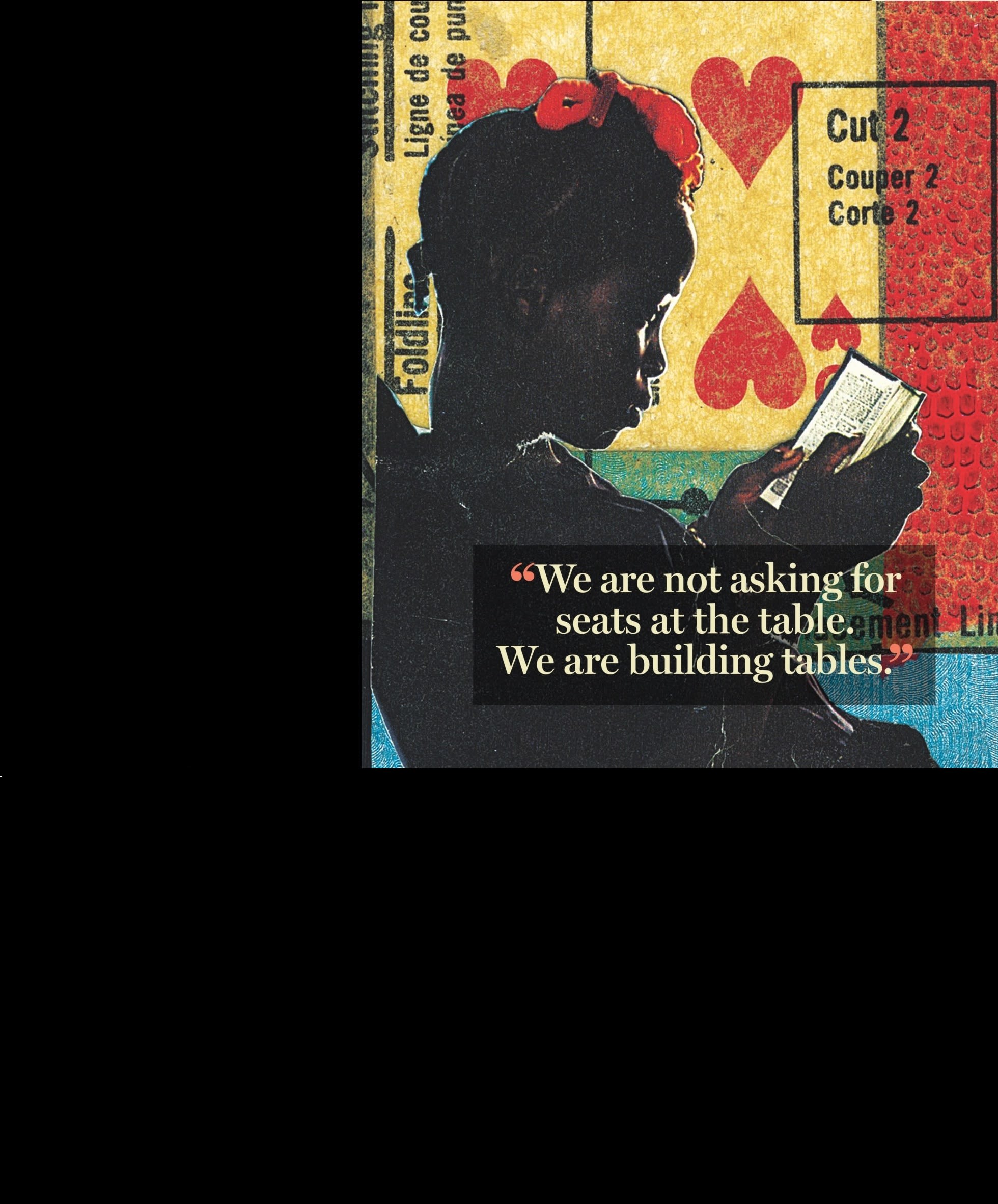
A Platform for Strong, Black, Female Scholars
Last April saw our public launch at ISGRJ-New Brunswick with our first On the Soundstage Speaker Series, a conversation with Nikole Hannah-Jones entitled "To Turn the Light of Truth Upon Them: Black Women, Justice, and the Power of the Pen."
The in-person talk reached capacity within hours of the registration link going live, and we were thrilled and honored to host our first in-person, inaugural event at Rutgers-New Brunswick in front of an audience of Rutgers University leadership, faculty, staff, students and the broader public.
Then in October, 2022, we partnered with the Rutgers Graduate School of Education to present the Critical Race Theory in Education Lecture with Dr. Gloria Ladson-Billings entitled “Debating What’s Debatable: Understanding the CRT/I Argument.”
We had an audience of 200 in-person and livestreamed the event to over 400 web viewers, and followed that up in November with our first in-person signature event at ISGRJ-Newark featuring Sheryll Cashin, Georgetown Professor of Law and acclaimed author of "White Space, Black Hood," in conversation with David Troutt, Rutgers Law School Professor and Director of the Rutgers CLiME Center for Law, Inequality and Metropolitan Equity.
The event delivered an intimate and thought-provoking discussion of the critical issues related to housing, policing, schools and transportation, and the entrenched system of American residential caste that is the linchpin of US inequality.
An organic theme began to emerge, inspired by the Nikole Hannah-Jones event the previous spring. Our Black Women Speaker Series brought a number of prominent black women academics and intellectual leaders to the different campuses: Carole Boyce Davies who delivered the AMESALL Distinguished Lecture in New Brunswick; Claudia Rankine in conversation with Salamishah Tillet in Newark for the Sawyer Seminar; Alexis Pauline Gumbs, Linda Villarosa and Deirdre Cooper Owens, all featured speakers of the Poets and Scholars Summer Retreat in Camden, and finally, Roxane Gay our Racial Justice Summit keynote speaker in Newark.
ISGRJ Black Women Speaker Series
ISGRJ Black Women Speaker Series
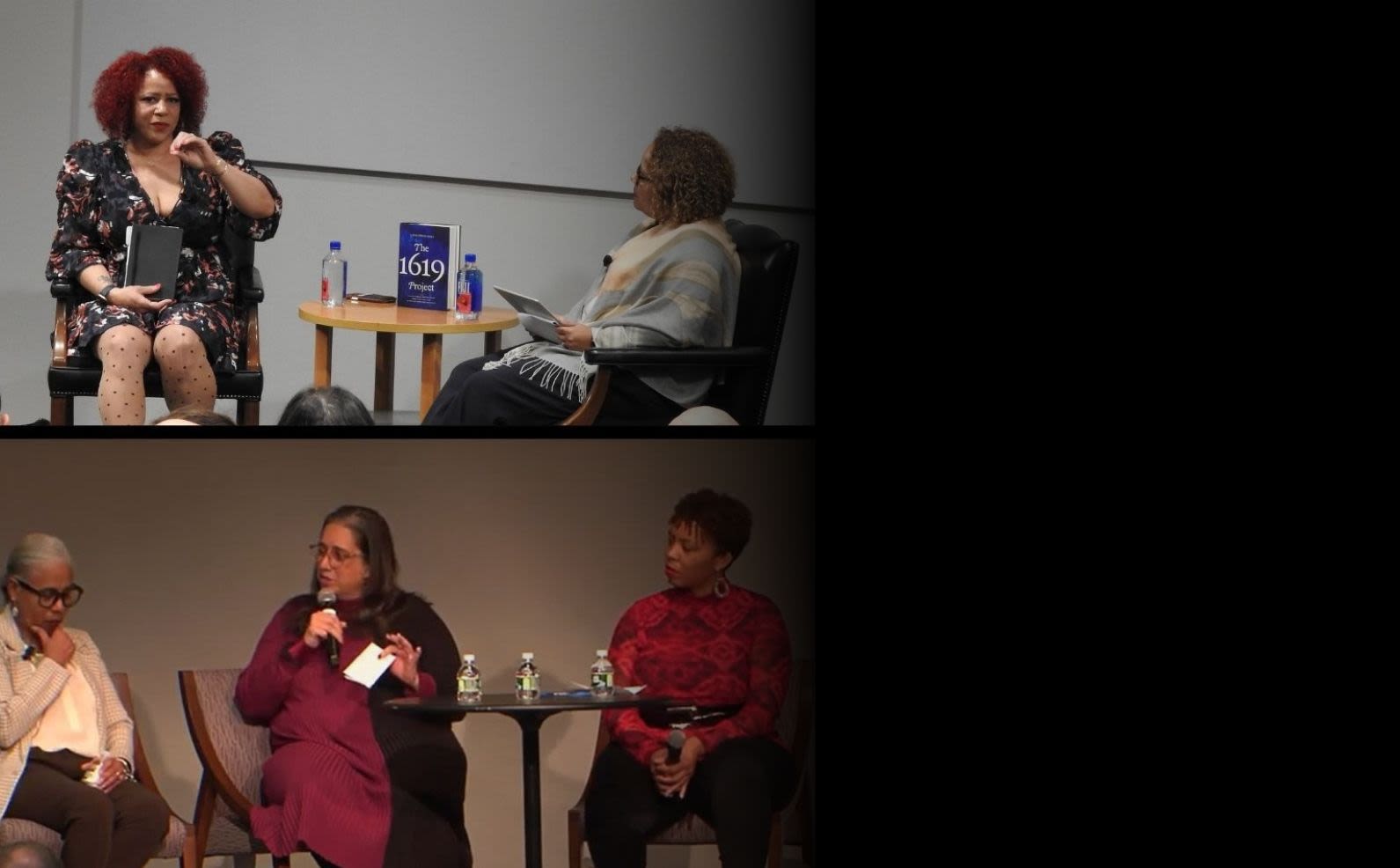
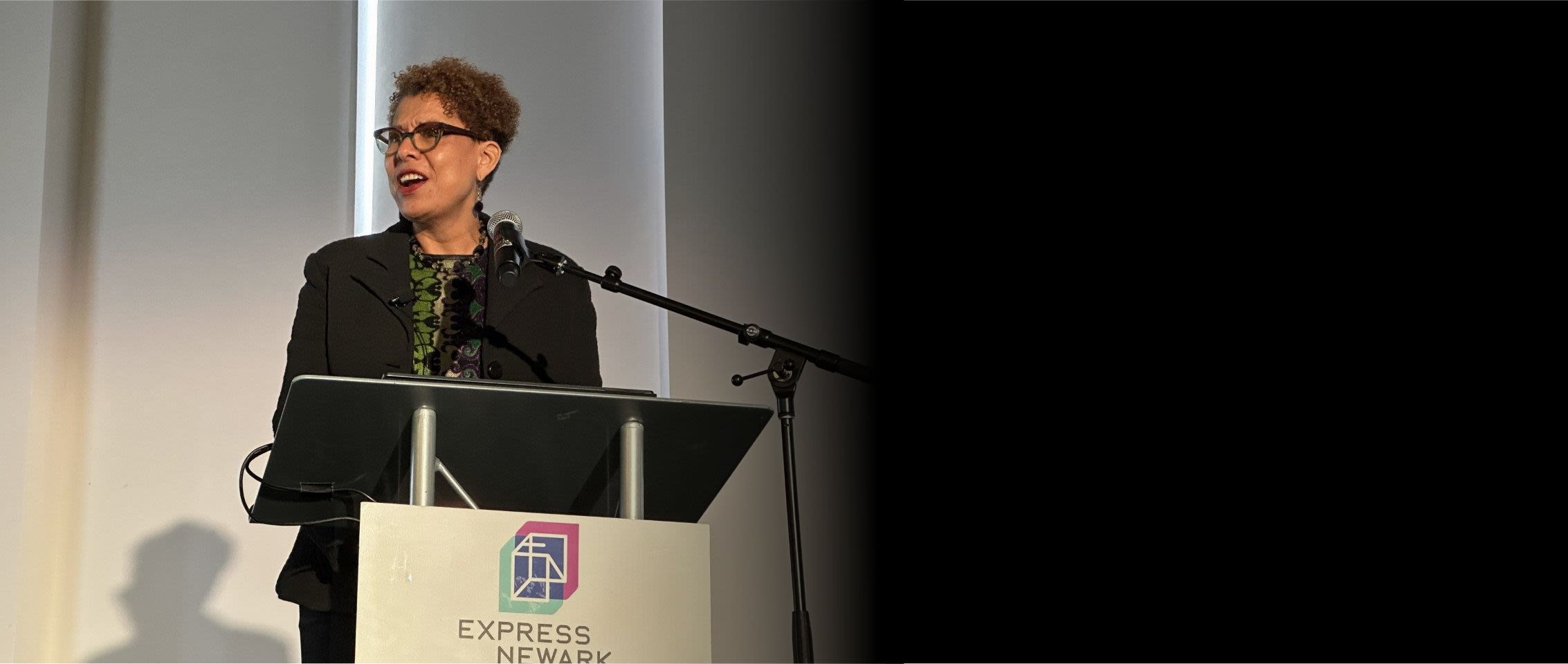
Quilting Water: Voicing Our Stories
We held a special in-person signature event and celebration of Quilting Water on Friday, November 17 at Rutgers-Camden.
Quilting Water, a five-year global public arts project which stitches together the human connection with water through quilt-making and oral histories, has gathered interviews about water - examining the intersections between art, race, and ecology - from South Africa, Senegal, Cape Verde, Japan, Puerto Rico, Belgium, the Philippines, the Atayal people of Taiwan, as well as right here in New Jersey.
The content of these water stories has been stored and made available to local Black artists who have worked on crafting quilts in dialogue with this global archive. We shared in this communal journey of witnessing the ties between our ecological realities, cultural and spiritual rituals, and the literary forms hidden within our everyday conversations.
The event featured celebrated lead artist for Quilting Water Renata Merrill, acclaimed writer and art quilter Jacqueline Johnson, and a special performance by the Resistance Revival Chorus, a collective of women and non-binary singers, led by led by musical director Abena Koomson-Davis, who joined together to breathe joy and song into the resistance, and to uplift and center women’s voices.
The Resistance Revival Chorus performs at the "Quilting Water: Voicing Our Stories" event at Rutgers-Camden on November 17, 2023
The Resistance Revival Chorus performs at the "Quilting Water: Voicing Our Stories" event at Rutgers-Camden on November 17, 2023
Acclaimed writer and art quilter Jacqueline Johnson and lead artist for Quilting Water Renata Merrill
Acclaimed writer and art quilter Jacqueline Johnson and lead artist for Quilting Water Renata Merrill
Lead artist for Quilting Water Renata Merrill presents at the "Quilting Water: Voicing Our Stories" event at Rutgers-Camden on November 17, 2023
Lead artist for Quilting Water Renata Merrill presents at the "Quilting Water: Voicing Our Stories" event at Rutgers-Camden on November 17, 2023
ISGRJ-Camden Co-Director and Quilting Water Director Patrick Rosal presents at the "Quilting Water: Voicing Our Stories" event at Rutgers-Camden on November 17, 2023
ISGRJ-Camden Co-Director and Quilting Water Director Patrick Rosal presents at the "Quilting Water: Voicing Our Stories" event at Rutgers-Camden on November 17, 2023
The Quilting Water team (L to R): Betsy Roy, Cherita Harrell, Patrick Rosal, Amy Beth Sisson, Lindsey Hoover, Mahirym Arroyo, Emma Wu
The Quilting Water team (L to R): Betsy Roy, Cherita Harrell, Patrick Rosal, Amy Beth Sisson, Lindsey Hoover, Mahirym Arroyo, Emma Wu
Quilts on display at the Quiltling Water: Voicing Our Stories celebration on November 17, 2023
Quilts on display at the Quiltling Water: Voicing Our Stories celebration on November 17, 2023
Conversation & Connections at ISGRJ-Newark
"Conversation & Connections," introduced last spring as a low-key, low-stress lunch talk series for Rutgers-Newark Faculty, to come together, share and discuss their works in progress - an effort to further expand and build faculty dialogue, collaboration and community - continued this fall with three more distinguished Rutgers-Newark faculty speakers:
Wendell Marsh, Assistant Professor of Africana Studies on "Religious Readings of a West African Sufi" on October 2; Ezgi Cakmak, ISGRJ Postdoctoral Associate and Assistant Professor of Africana Studies on "Reminders of the Imperial Nostalgia: Encounters with Blackness in the Early Turkish Republic" on November 13; and Amir Moosavi, Assistant Professor of English on "Contaminated Marshes and Headless Palms: the Environment and the Ghosts of War in Contemporary Arabic and Persian Fiction of the Iran-Iraq War" on December 4.
Professor Wendell Marsh presents "Religious Readings of a West African Sufi" as part of Conversation & Connections on October 2, 2023
Professor Wendell Marsh presents "Religious Readings of a West African Sufi" as part of Conversation & Connections on October 2, 2023
Professor Ezgi Cakmak presents" Reminders of the Imperial Nostalgia: Encounters with Blackness in the Early Turkish Republic" during Conversation & Connections on November 13, 2023.
Professor Ezgi Cakmak presents" Reminders of the Imperial Nostalgia: Encounters with Blackness in the Early Turkish Republic" during Conversation & Connections on November 13, 2023.
Amir Moosavi presents "Contaminated Marshes and Headless Palms: the Environment and the Ghosts of War in Contemporary Arabic and Persian Fiction of the Iran-Iraq War" during Conversation & Connections on December 4, 2023.
Amir Moosavi presents "Contaminated Marshes and Headless Palms: the Environment and the Ghosts of War in Contemporary Arabic and Persian Fiction of the Iran-Iraq War" during Conversation & Connections on December 4, 2023.
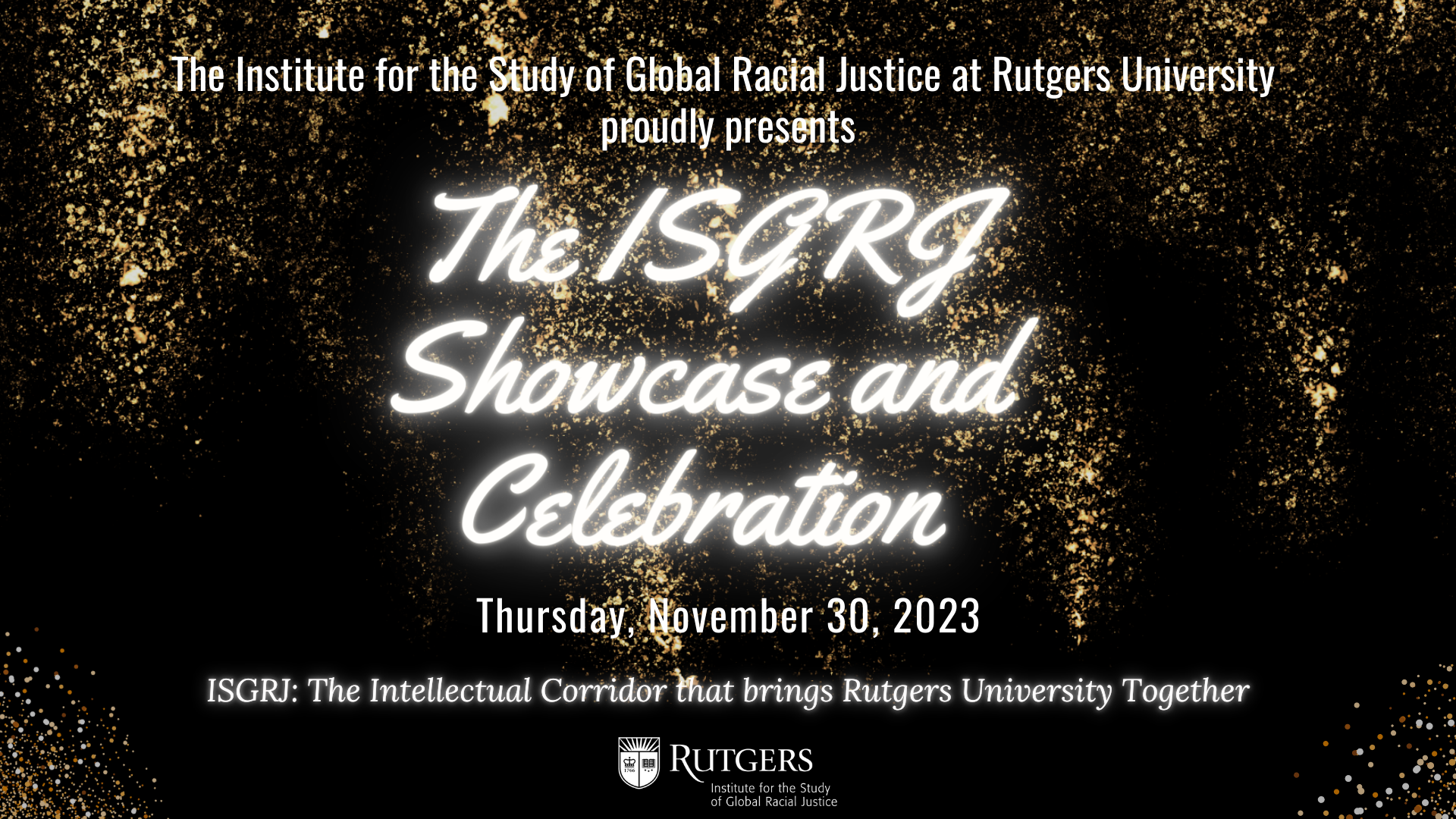
We ended 2023 with our first Institute-wide in-person membership celebration, focused on the theme: "ISGRJ—the intellectual corridor that brings Rutgers together."
Our entire constituency of student and faculty fellows across the university, along with faculty mentors, project and research leads, staff and university leadership joined us for this very special event, both a showcase of our transformative work in the three years since our founding, in bridging the high levels of research activity in global racial justice occurring in multiple classrooms, intellectual conversations, and published scholarship and research throughout the Rutgers system, and also a celebration of the unique community of care we've built.
The Timeline of ISGRJ
The Timeline of ISGRJ
The evening featured presentations on the ISGRJ Timeline, Mission and Vision, Nurturing the Future: Undergraduate Leadership and Community Engagement, the ISGRJ Campus Directors' Panel "Telling the Story of Race," and an open mic inviting attendees to come up to talk about what inspires them about ISGRJ at Rutgers.
Finally, I was pleased to announce the launch of a new initiative. With the help of my Director of Marketing and Communications Tania Bentley, and her team, our graduate research assistants from English, Comparative Literature and Computer Science in Rutgers Camden and New Brunswick—Kaitlyn Rich, Maria Rodriguez Beltran and Aditya (AJ) Jonnalagadda we launched the Rutgers Researchers on Race Database.
The R3 Database is an interdisciplinary directory of Rutgers University's scholars deeply engaged in race and ethnicity studies. This directory, reflecting our commitment to inclusive scholarship, comprises experts from such diverse fields as Cultural Studies, Sociology, History, Political Science, English Literature and Ethnic Studies. Each profile details the researcher's academic background, research interests, publications, and ongoing projects. This resource aims to facilitate collaboration, mentorship, and a broader understanding of race and ethnicity among Rutgers researchers, students, and the wider academic community.
As we close out this third year of our founding grant from the Mellon Foundation, I would like to announce the appointment of Carlos Decena as Acting Director of the ISGRJ in 2024 while I am on a partial research leave. With all my appreciation for his generosity in taking on this leadership responsibility.
Professor Carlos Decena
Professor Carlos Decena
I also want to thank everyone referenced here for making this a fabulous and productive year. A special thank you to my colleagues who have been generous with their time and insights in joining the ISGRJ “Race, In Theory Fellows Humanities Seminar”—what a thrill to engage with you and our gratitude for your role in helping us mentor and engage these young scholars.
ISGRJ "Race in Theory" Humanities Seminar
ISGRJ "Race in Theory" Humanities Seminar
A similar thank you to ALL the faculty who have signed on to mentor ISGRJ postdocs, early career faculty fellows, and our named term chairs. And of course, the biggest shout out and thank you to my ISGRJ team of faculty and staff. Our administrative team in particular exemplifies some of the most committed program directors, administrators, and federal work study students I have had the pleasure of working with at Rutgers. Their daily efforts to provide exemplary service to their campus branches, as well as across all the Chancellor-led units university-wide, are impressive. You are all the most awesome humans to work with — and all together we are delighted to share this second update of our activities and invite all in the Rutgers community to join our research conversations regarding this challenging issue of race.
Founding and Executive Director, Institute for the Study of Global Racial Justice

